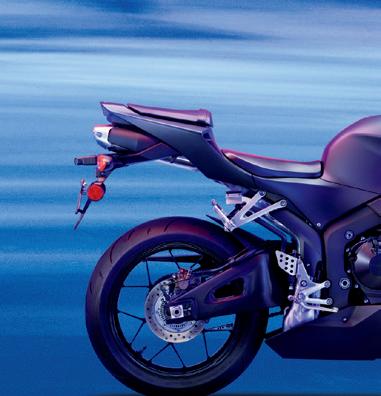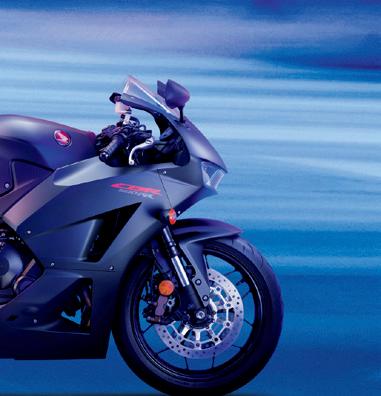

INTRODUCING THE NEW YZ®450F
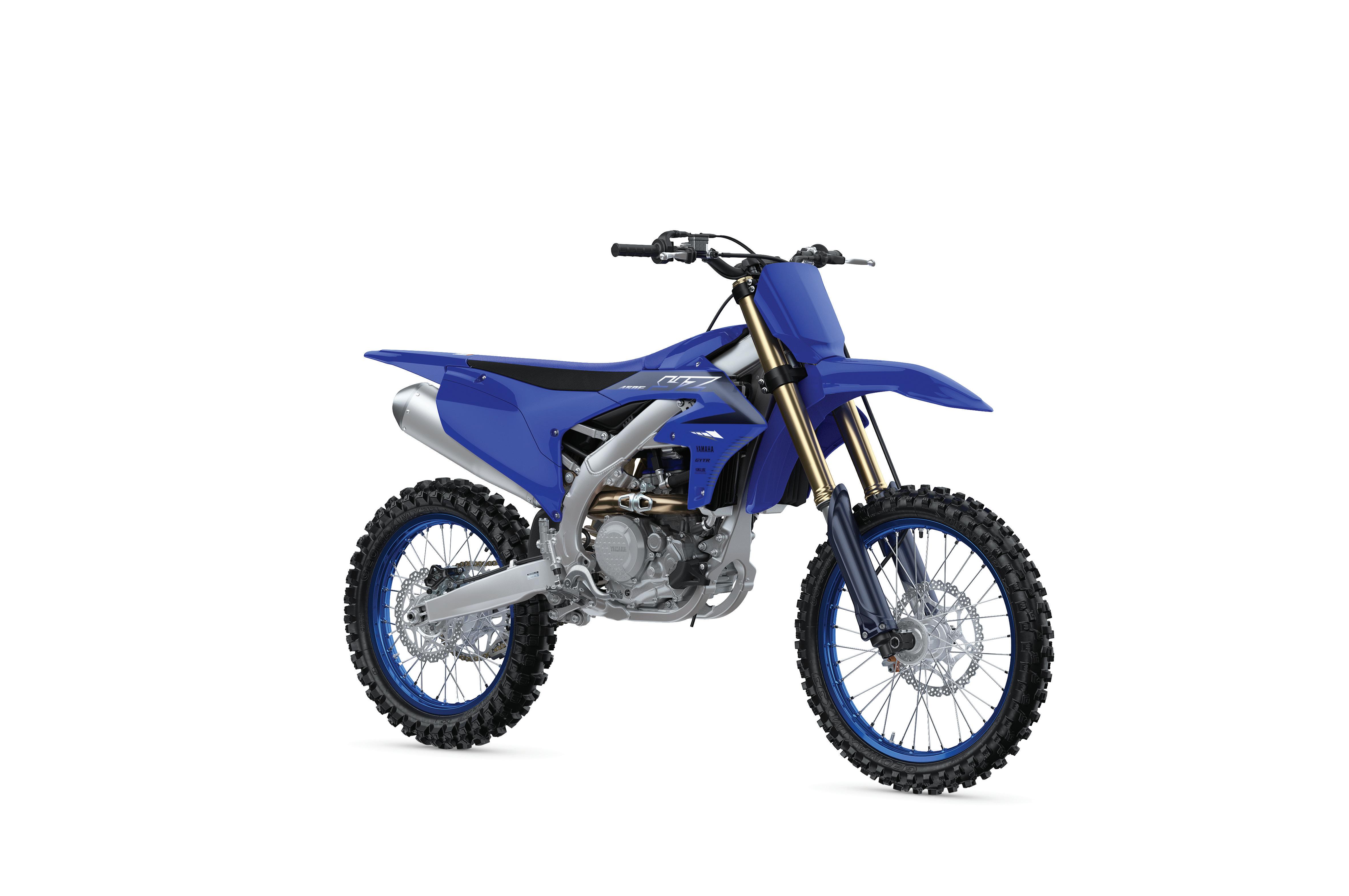
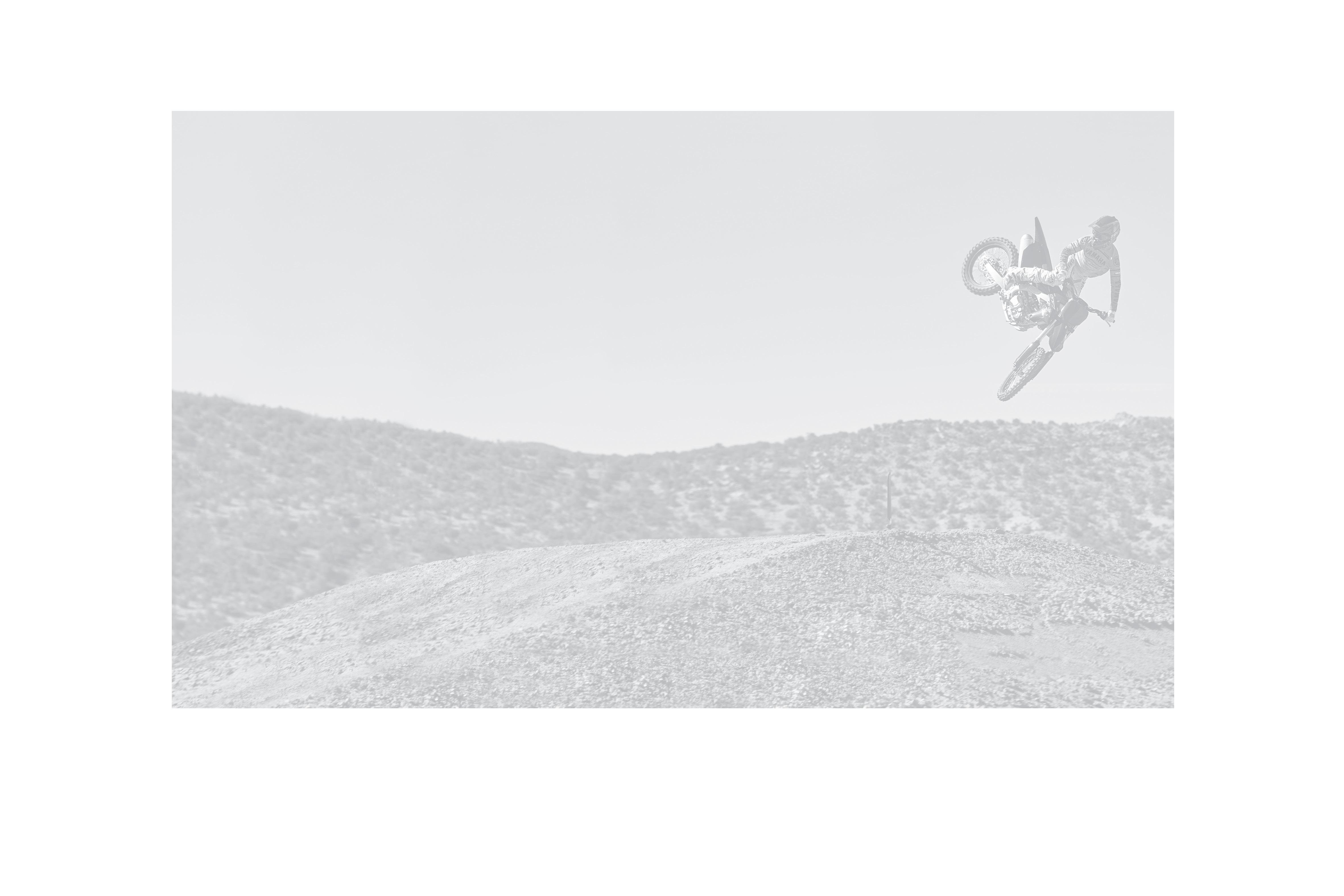
Fresh off consecutive pro Motocross & Supercross titles, Yamaha took the class leading YZ450F and made it even better—more powerful, lighter, slimmer, and more agile than ever! And with Yamaha’s updated and revolutionary Power Tuner App, the ability to dial in the perfect power delivery is right at your fingertips. Introducing the all-new 2023 Yamaha YZ450F, because the best don’t rest.


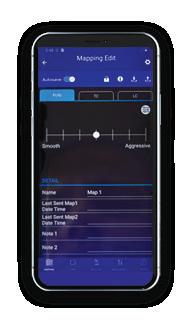


8 PERSPECTIVES
Editorial Director Mitch Boehm on being in over his head

10 ISDE INSIDER
Rachel Gutish on pro racer preseason prep
12 BACKFIRES
Membership feedback on recent issues
14 BACK IN THE DAY
Where the photos are blurry but the memories are clear!
16 NAKED AGAIN, NATURALLY
Triumph expands and improves its popular 765cc Street Triple line
26 COVER STORY:
50TH ANNIVERSARY — KAWASAKI Z1
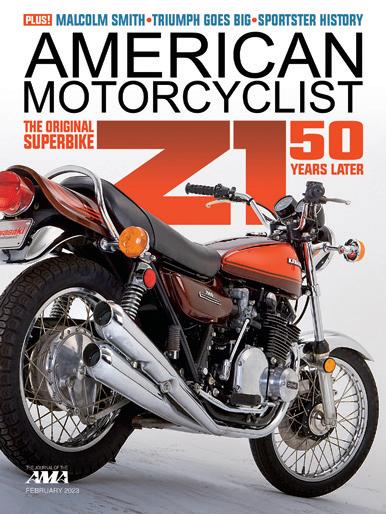
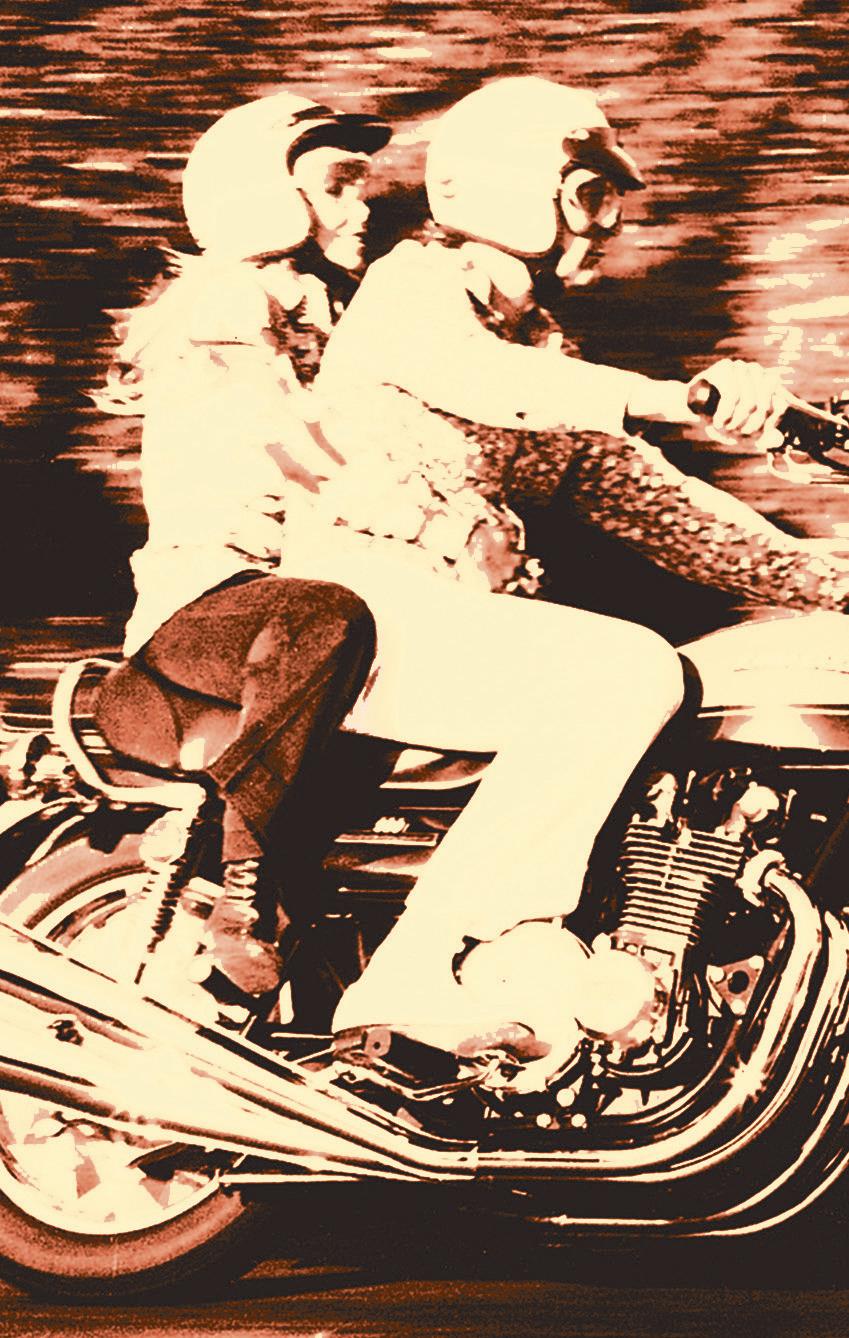
Five decades after its debut, the world’s first superbike remains “every inch a king”
40 BROTHERS IN ARMS
Steward and Grant Baylor Dominate the AMA National Enduro series
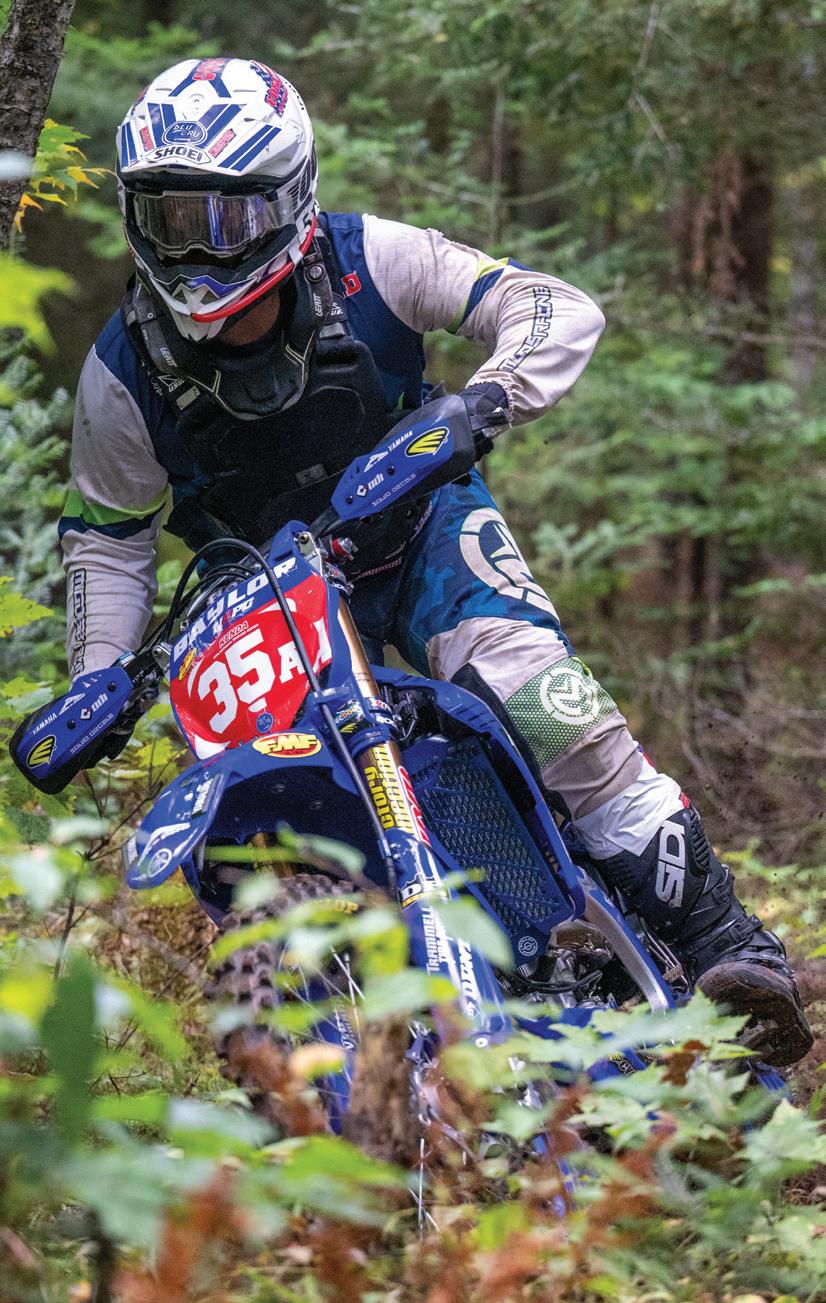
46 SPORTSTER 65
After 65 years, Harley-Davidson’s Sportster has spawned some memorable derivatives
64 AMA GARAGE
Tips, tweaks, fixes and facts: The motorcycle ownership experience, explained
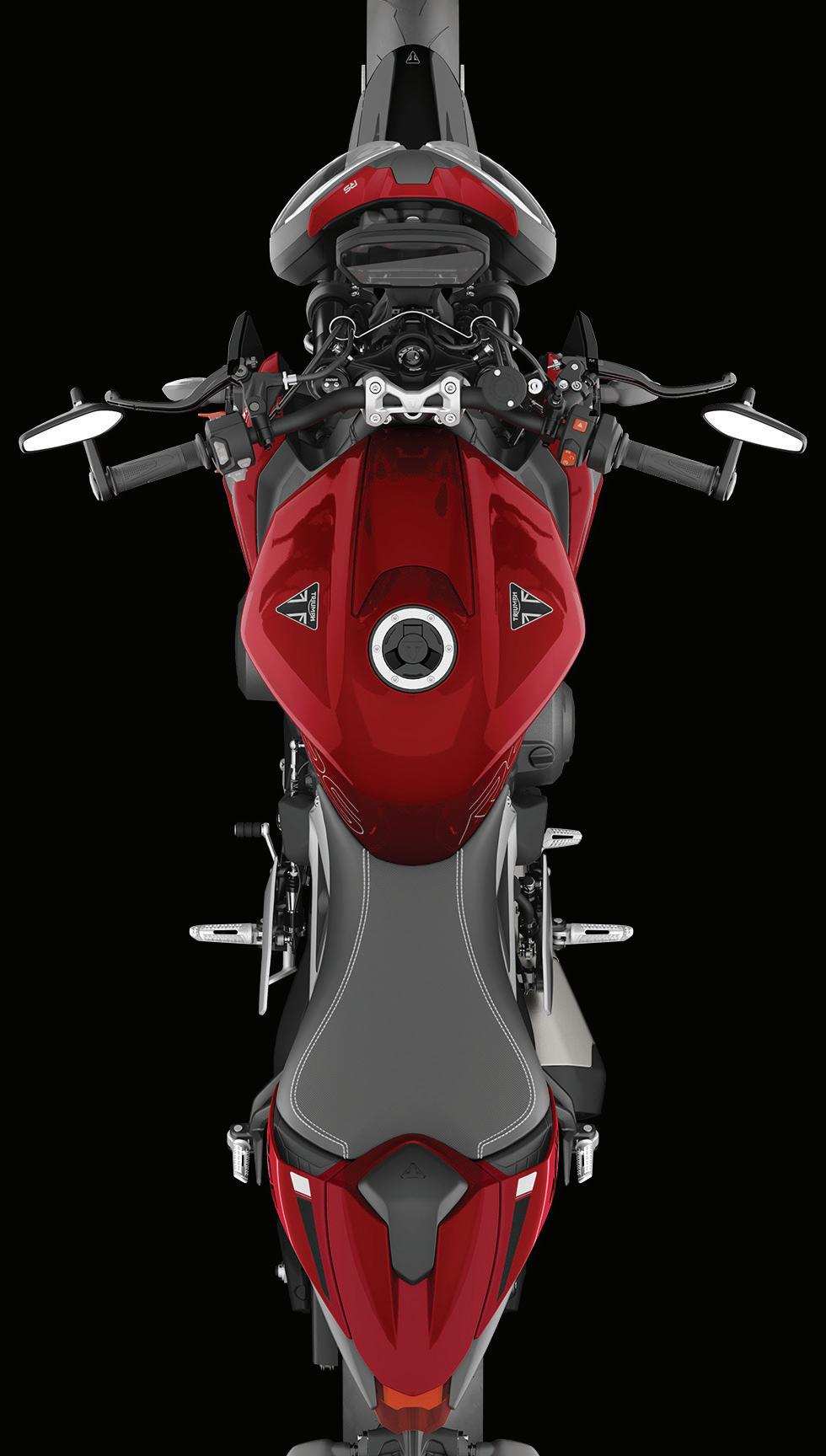
66 LAST PAGE
American Honda’s ground zero

ON THE COVER:
When talk turns to legendary motorcycles, bikes that spun the motorcycling world on its axis, Kawasaki’s 1973 Z1 sits at the top of the list, right alongside Honda’s Cub and CB750 — the latter of which actually helped create the Z1. (See page 26 for the scoop there.) Beauty shot by Kevin Wing.
EDITORIAL AND COMMUNICATIONS
Mitch Boehm Editorial Director
Todd Westover Chief Creative Consultant
Joy Burgess Managing Editor
Kerry Hardin Senior Graphic Designer
Keaton Maisano Associate Editor
Eliza Mertz Digital Content Manager
submissions@ama-cycle.org
Michael Kula Business Development Manager (949) 466-7833, mkula@ama-cycle.org
Lynette Cox Marketing Manager (614) 856-1900, ext. 1223, lcox@ama-cycle.org
All trademarks used herein (unless otherwise noted) are owned by the AMA and may only be used with the express, written permission of the AMA.
American Motorcyclist is the monthly publication of the American Motorcyclist Association, which represents motorcyclists nationwide. For information on AMA membership benefits, call (800) AMA-JOIN or visit AmericanMotorcyclist.com. Manuscripts, photos, drawings and other editorial contributions must be accompanied by return postage. No responsibility is assumed for loss or damage to unsolicited material. Copyright© American Motorcyclist Association, 2021.
AMA STAFF EXECUTIVE
Rob Dingman President/Chief Executive Officer
James Holter Chief Operating Officer
Jeff Wolens Chief Financial Officer
Donna Perry Executive Assistant to President/CEO
Danielle Smith Human Resources Manager/Assistant to COO
RACING AND ORGANIZER SERVICES
Mike Pelletier Director of Racing
Bill Cumbow Director of International Competition
Michael Burkeen Deputy Director of Racing
Ken Saillant Track Racing Manager
Alexandria Reasoner Program Manager
Connie Fleming Supercross/FIM Coordinator
Olivia Davis Sanctioned Activity Coordinator
MUSEUM
Paula Schremser Program Specialist
Ricky Shultz Museum Clerk
Kobe Stone Museum Clerk
AMA BOARD OF DIRECTORS
Contact any member of the AMA Board of Directors at americanmotorcyclist.com/ama-board-of-directors
Russ Ehnes Chair Great Falls, Mont.
Gary Pontius Vice Chair Westfield, Ind.
Byron Snider Assistant Treasurer Newbury Park, Calif.
Jerry Abboud Executive Committee Member Thornton, Colo.
Brad Baumert Louisville, Ky.
(800) AMA-JOIN (262-5646) (614) 856-1900 AmericanMotorcyclist.com @AmericanMotorcyclist @ama_riding


GOVERNMENT RELATIONS
Michael Sayre Director of Government Relations
Nick Haris Western States Representative
Tiffany Cipoletti Government Relations Manager, On-Highway
Peter Stockus Government Relations Manager, Off-Highway
Erin Reda Grassroots Coordinator
MARKETING AND MEMBER SERVICES
Amanda Donchess Director of Membership Marketing and Services
Lauren Kropf Marketing and Advertising Coordinator
Tiffany Pound Member Services Manager
Joe Bromley Program Development Manager
Pam Albright Member Fulfillment Coordinator
Bob Davis Program Volunteer Specialist
Stephanie McCormick Member Services Representative
Vickie Park Member Services Representative
Charles Moore Member Services Representative
Kelly Anders Member Services Representative
Sarah Lockhart Member Services Representative
Taylor Fluck Member Services Representative
Margret Baldwin Member Fulfillment Representative
John Bricker Mailroom Manager
INFORMATION TECHNOLOGY DEPARTMENT
Shaun Holloway Director of Information Technology
Joey Brown Application Developer
Ed Madden Systems and Database Analyst
Rob Baughman Support Technician
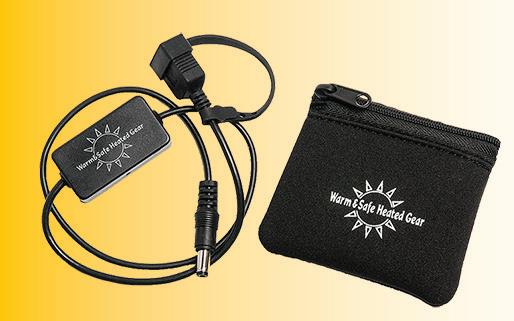



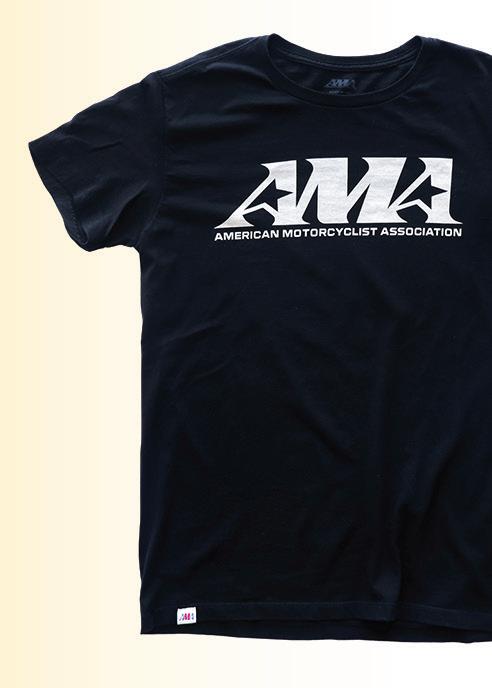





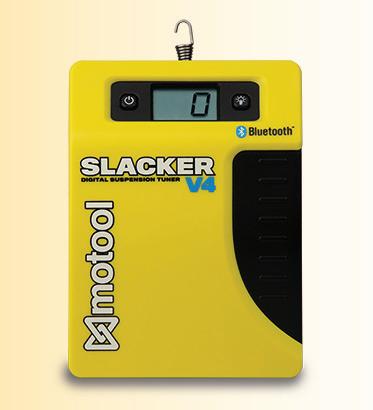


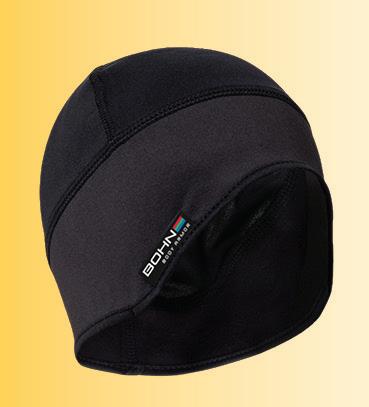


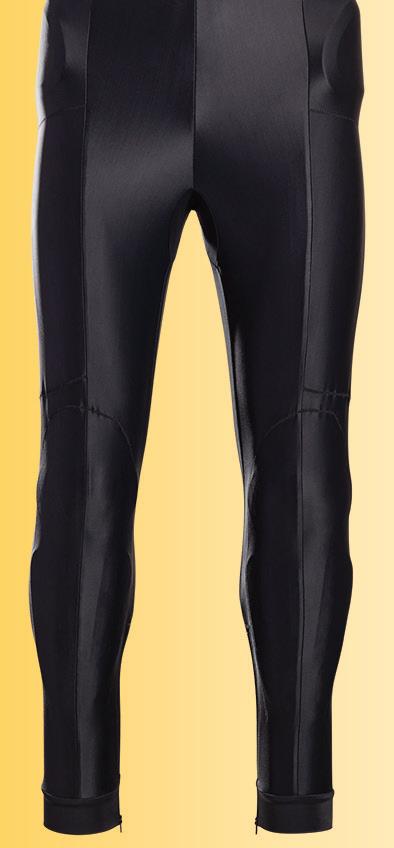
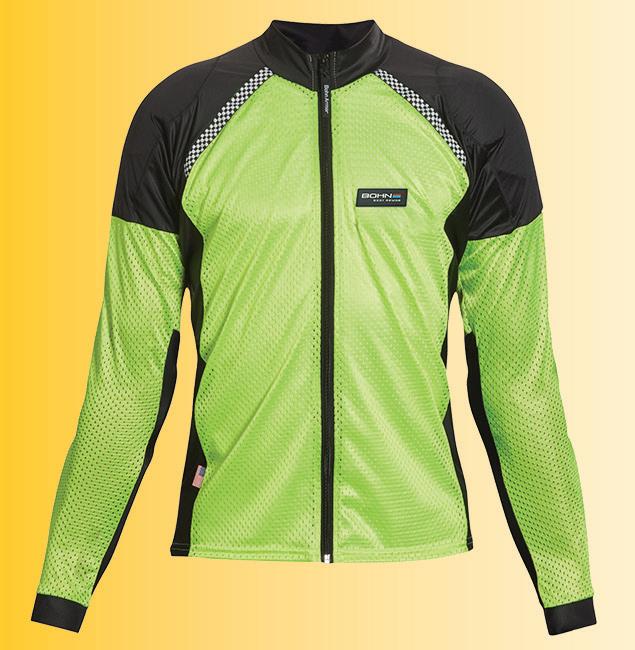

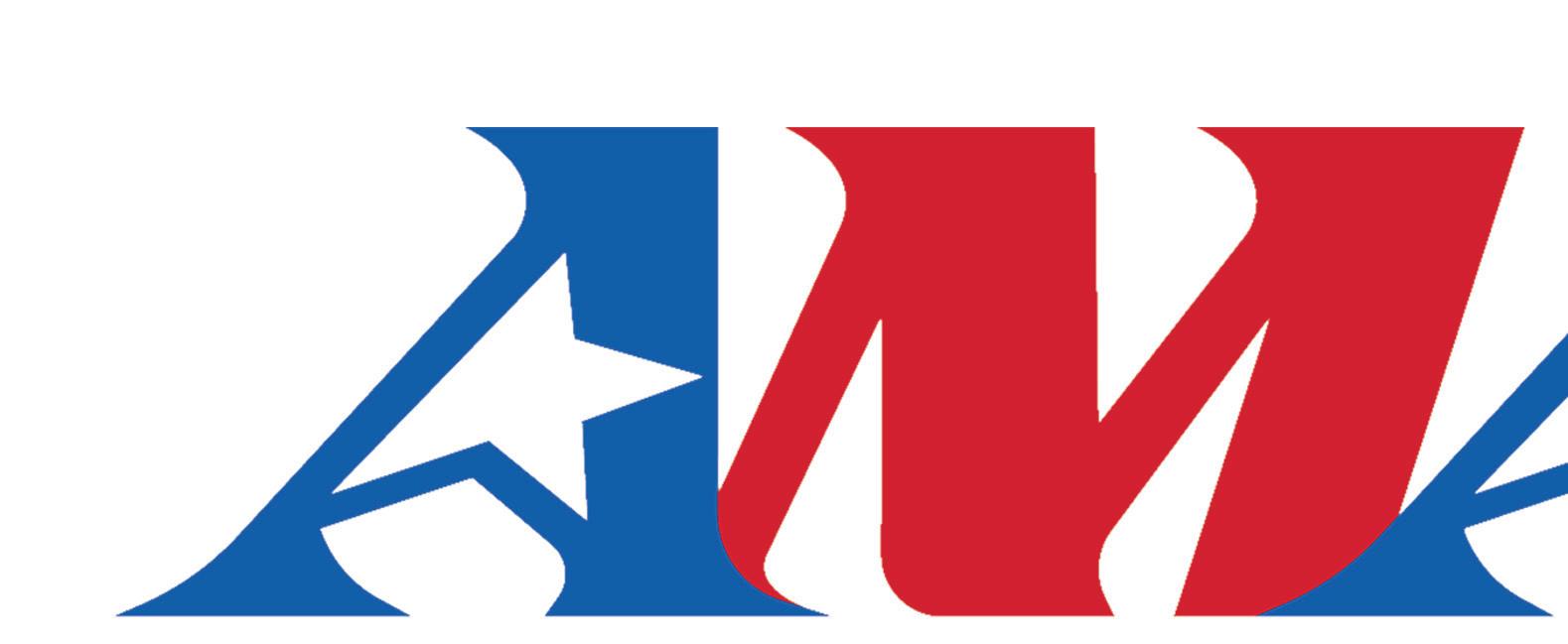








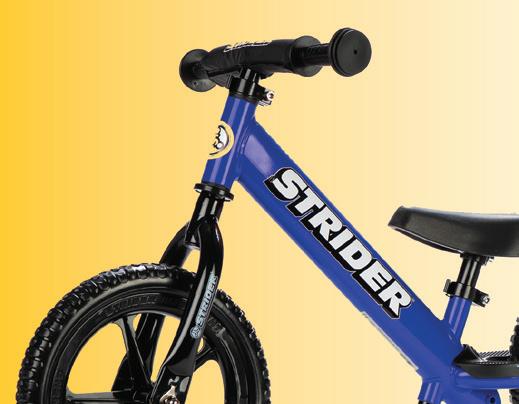
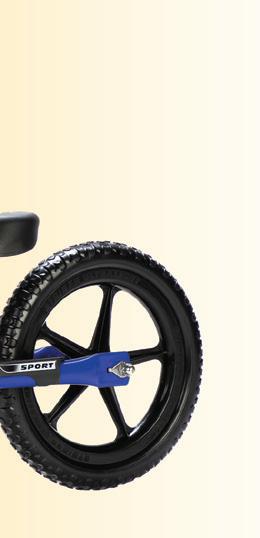




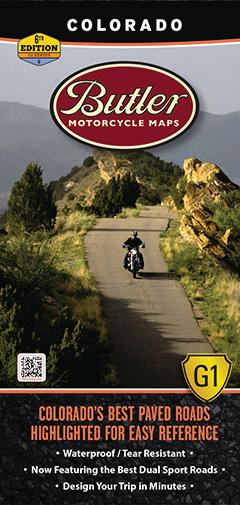
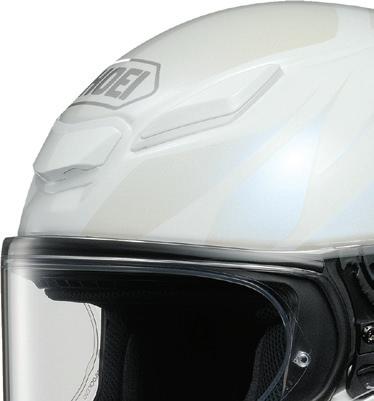
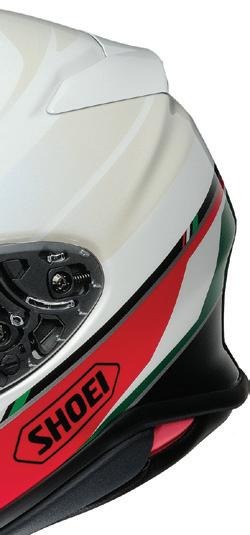
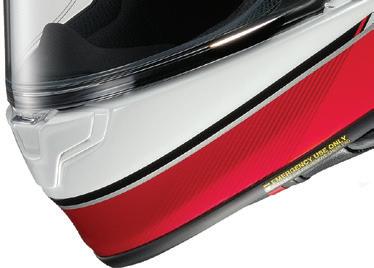

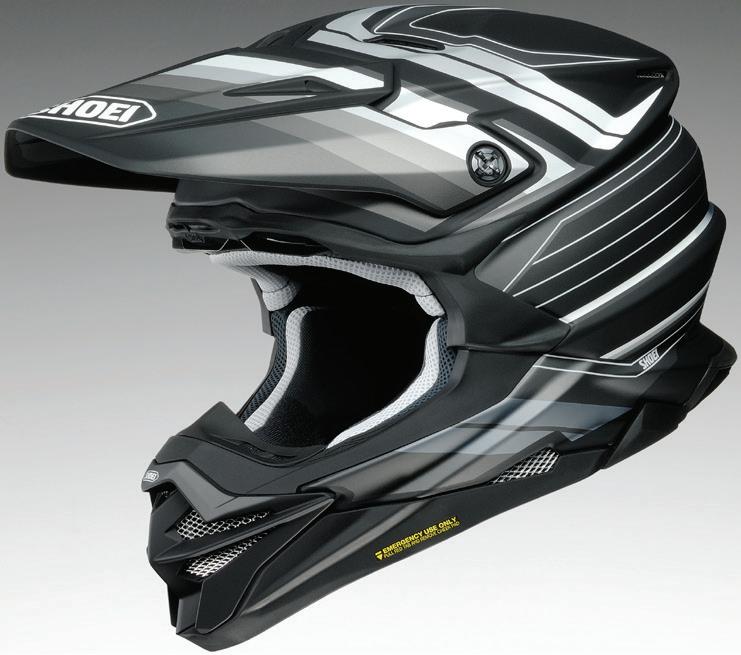
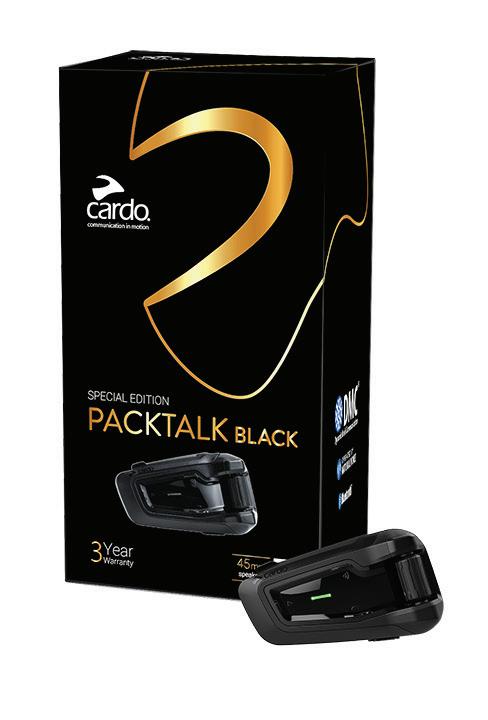

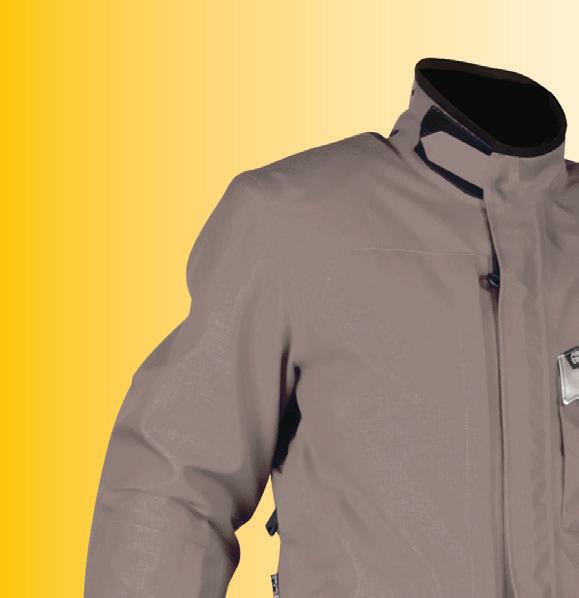


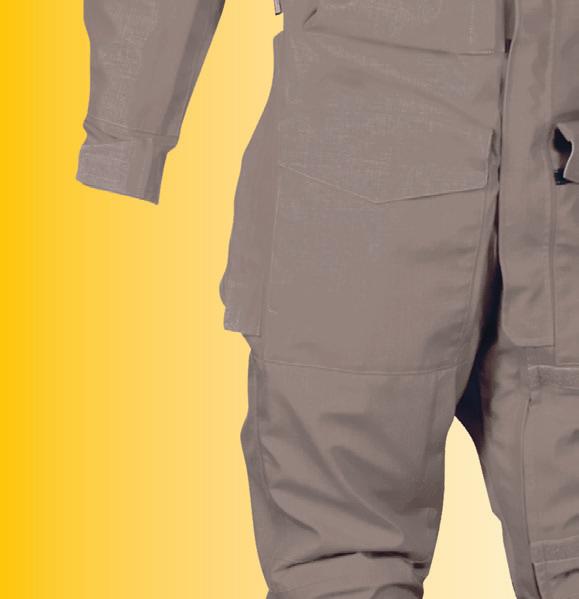
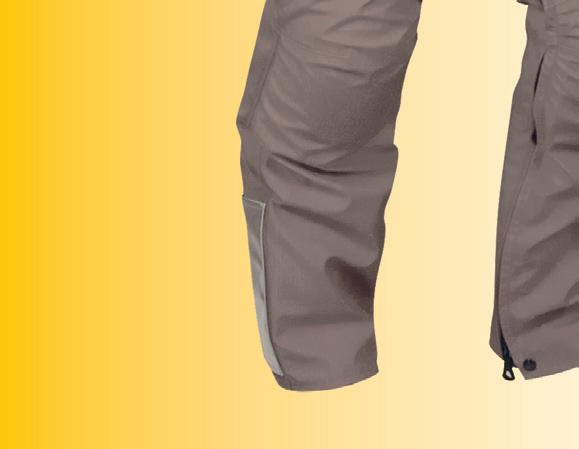


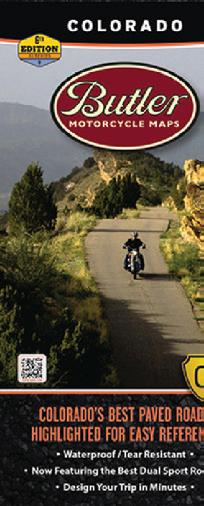



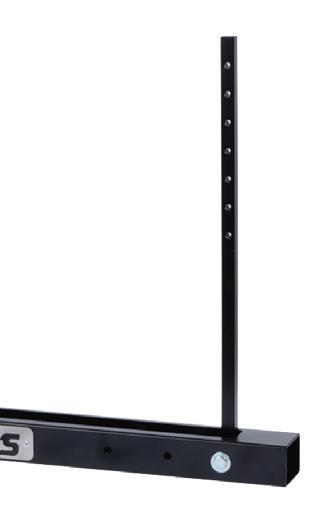
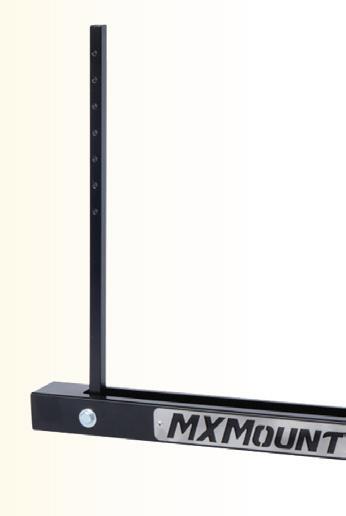




PERSPECTIVES OVER MY HEAD
BY MITCH BOEHMIt’s nearly Christmas along Utah’s Wasatch front as I type this, and since we’ve gotten a ton of early snow in the local mountains, ski season has started early — which makes me happy.
Motorcycles, for the most part, go into hibernation here during the winter months, and for me, at least, skiing is a darn good replacement. The hobbies are obviously different, but as I rode the Snowbird tram to the top of the mountain the other day (11,000 feet) trying to rest my out-of-shape and suddenly-in-shock quad muscles, all while realizing once again that Snowbird seemed a lot steeper and deeper than when I skied (and worked) here during college, I flashed on some common elements:
One, just as on a motorcycle, you can go really fast on skis if you want (and if you’re new to the sport, you can go really fast even when you don’t want to). Two, it’s easy to get in way over your head on a big ski mountain. And three, you can get really hurt. I know all about that last bit, having broken more than a dozen bones on the slopes (and the bikes) over the years.
I have skied for nearly 50 of those years, almost as long as I’ve been riding motorcycles, so I’m pretty decent at it, even on mostly-expert mountains such as Snowbird or Alta, which do not suffer fools or newbies gladly. Steep and deep isn’t just ad copy here in Utah. It’s real.
But as I looked at all the black-diamond runs through the tram car’s windows, and then considered my general rustiness and still-weak quads (this was only my second day on the mountain), I got the distinct feeling I was in a little over my head on this section of mountain.
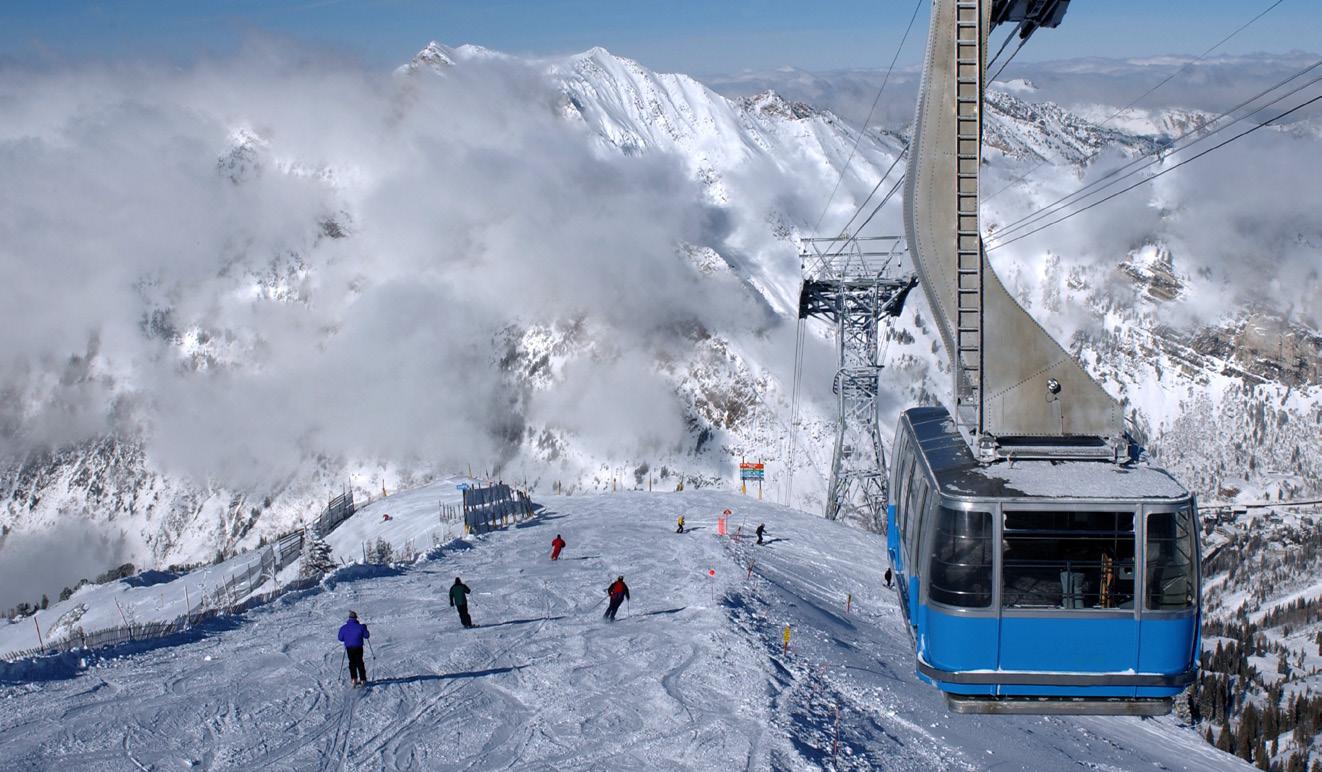
Funny thing is, this in over your head thing had bitten me before in this very
canyon, not just at Snowbird (broken wrist and clavicle) and Alta (broken fibula), but also on a motorcycle, and just a mile or so down the road.
It was 1982 and I was coming down the canyon on my then-new (to me) Suzuki GS1000S. At the time I had very little streetbike experience, but I was cocky as hell and had been a decent motocrosser for almost a decade by that point, so hey, riding a 600-pound streetbike with weak brakes and worn tires at high speeds through all sorts of downhill corners is easy, right? Right.
Somehow I survived death or dismemberment when I got into a downhill left-hander way too fast, grabbed the brakes and ran off the road into some boulders, but I can’t say the same for my poor GS, which was totaled. It’s a painful lesson still.
Reliving that sad experience as I looked down toward that very corner from way up high in the tram car had me thinking about all the riding I’ll be doing in just a couple of months, or all the riding many of you will be doing — or doing right now if you live in the lower tier.
The amount of on-road exposure
I’ve had to the aforementioned D&D (don’t say it!) during my nearly 40-year career as a road tester and magazine editor in So Cal is staggering, so this seems like a good opportunity to share some of the hard-learned lessons I’ve learned over the decades.
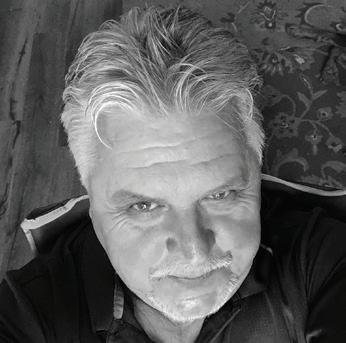
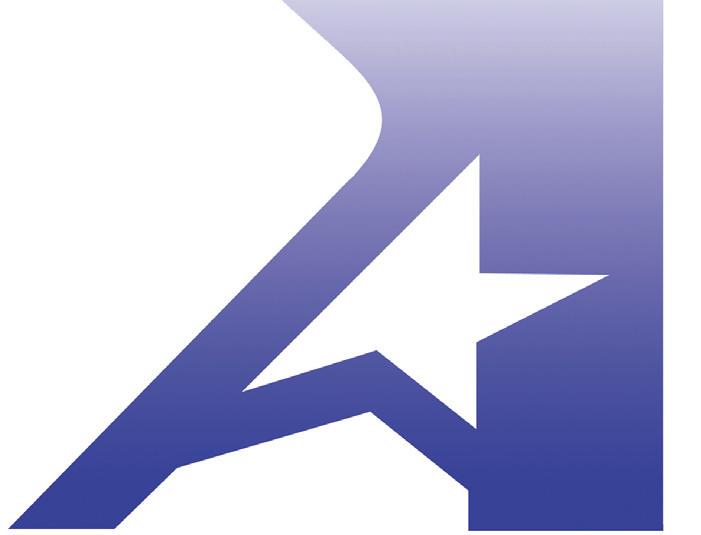

Be wary on roads you don’t know, or don’t know well. Get yourself to a comfortable speed before the corner. Don’t let ego drive you to keep up with faster riders in your group. If you do get in hot, brake lightly and try to steer through the corner. (Easier said than done.) Wear All The Gear All The Time. (Cuz you never know.) And most of all, don’t let overconfidence or ego run (or ruin) your ride, as I did back in ’82.
The late and wonderful Christine McVie of Fleetwood Mac wrote this for the Mac’s 1975 “White” album: “I’m over my head, oh, but it sure feels nice.”
Be sure you’re around to enjoy that feeling, eh?
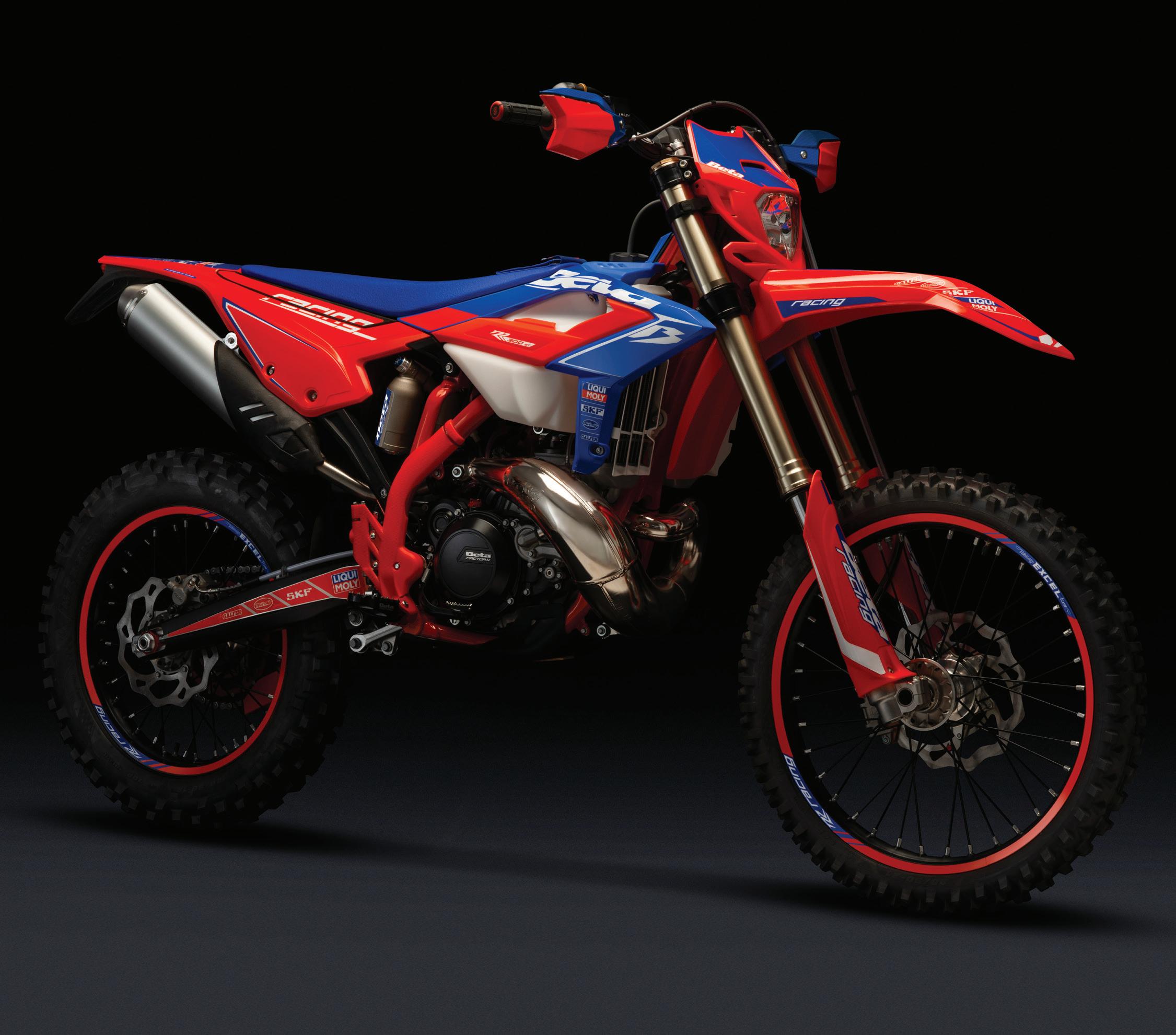











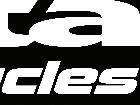

With each mile, the icy farm fields and harsh winter winds of my Indiana home fall farther behind me. I’m headed south toward warm, Florida sunshine — but don’t mistake this for a vacation. It’s far from it.
Every pro racer is different, and all approach their off seasons differently, but the common denominator for those living north of the Mason-Dixon and east of the Mississippi is that you head south for preseason prep. Usually this means Florida, though sometimes it’s the Carolinas or Georgia.
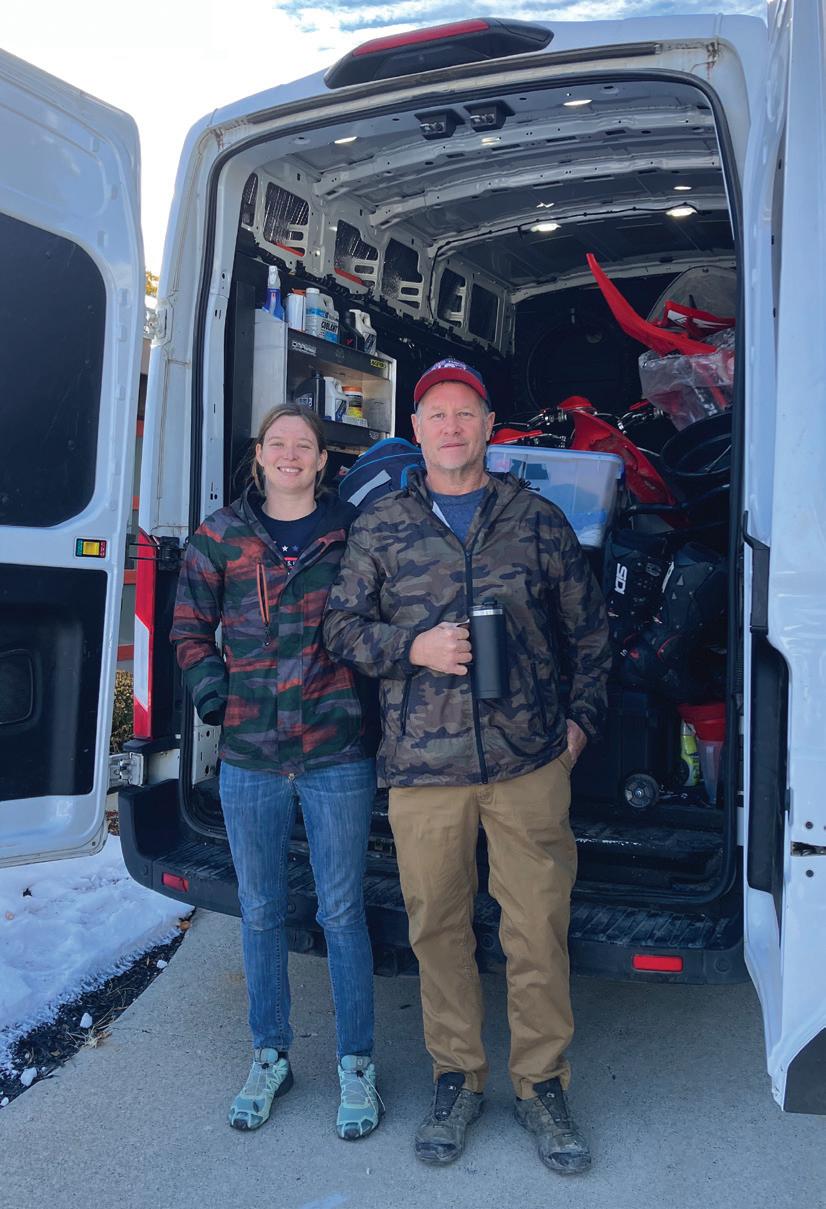
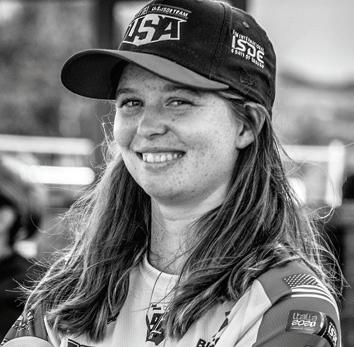
Back in college, thoughts of this annual southern migration would drive me to distraction…sitting in a not-in-Florida library trying to study while trying not to imagine all my competitors pounding out training motos in the Sunshine State sand. Ironically, the two things had a common theme — suffer now for a greater payoff later. Still…
My training days in Florida look like this: Wake up around 6 a.m., shower, and then do yoga. I make breakfast and pack a lunch for myself and my dad/mechanic/roommate, and then we head for the trails. We stay in Tallahassee, and there’s a big OHV area just south of the airport in the Apalachicola National Forest. After three years wintering there (thanks to some very helpful locals) I know the place like the back of my hand. There are hundreds of miles of trails, from single-track to something you could drive a truck down. In places the whoops are so deep a small child could hide in them.
I aim for two to three hours of ride time each day, and aside from my once-annual “three-hour-race-simulation-of-doom,” putting two or three hours on the bike will take most of the morning and afternoon.
After riding I go for a road bicycle
ISDE INSIDER


NO REST FOR THE WICKED
RACHEL GUTISH
ride or lift weights, while my Dad — the absolute saint that he is — uses this time to do most of the mechanical work. Then we drive back to the house (or cabin, or shed, or camper, or parking spot for the van) we’ve rented for the month. We eat dinner, and as a reward I get to read a book in bed for an hour or so, though I usually only get a few pages deep before I’m dead to the world. I take weekends off because public riding areas tend to become zoos filled with side-by-sides and chaos, and that’s when I’ll shop for groceries and do laundry…the usual work of just being alive.
The beginning of the training month is brutal, as going from basically not touching a motorcycle since November, to hours of riding and training, can be pretty painful. But by the end of January my body will have adjusted to the demands I’ve placed on it, and I’ll be ready just in time for the first rounds of the U.S. Sprint Enduro and NEPG series in early February. As Cage the Elephant puts it, “Ain’t no rest for the wicked.”
I suppose…But to be honest, I’m happier once the “off” (non-Florida) part of the off season is over. You’d think it’d be the opposite…just chill and rest for what’s always a grueling season. But down there my only job, and the only thing in my life that really matters, is training. Being a pro racer means living on a thin margin, and I work seasonal jobs for extra money (40 hours a week at an Amazon warehouse last year, and a hodgepodge of pizza delivery, general labor and substitute teaching this year), but once in Florida I don’t worry about much beyond the next 30-minute training moto. I find my Zen in physical suffering and intense focus. This is the time of year I’m most at peace.
The best part, though, is the optimism I feel crossing the Florida state line. The season is so fresh and full of promise that I can almost taste it in the air and see it in the sunrise on day one of my southern trek.
Everyone starts out with zero points. Lady Luck and my own shortcomings have yet to kick me in the teeth. Every year as I steer the van south I truly believe that maybe, just maybe, this will finally be my year.
AN EXCLUSIVE DESIGN WITH A MEANINGFUL MESSAGE OF PATRIOTISM AND FAITH
God bless America! The U.S. flag is a strong symbol of American identity and national pride, and for centuries, camouflage has been used as a symbol of protection. The cross is a source of strength, reminding us of God’s sacrifice and His presence in our lives. Now, these celebrated symbols come together in a powerful new jewelry creation available only from The Bradford Exchange—the “My Country, My Faith” Men’s Dog Tag.
Hand-crafted of durable solid stainless steel, the dog tag-style pendant features a distinctive background that boldly showcases the U.S. flag before a camouflage pattern. A fully dimensional cross in raised relief stands out in rich ion-plated 18K gold, and is hand-set with a genuine diamond at the center. The reverse side of the dog tag is
LIMITED-TIME OFFER
Reservations will be accepted on a first‑come, first served basis
Respond as soon as possible to reserve your “My Country, My Faith” Men’s Dog Tag.
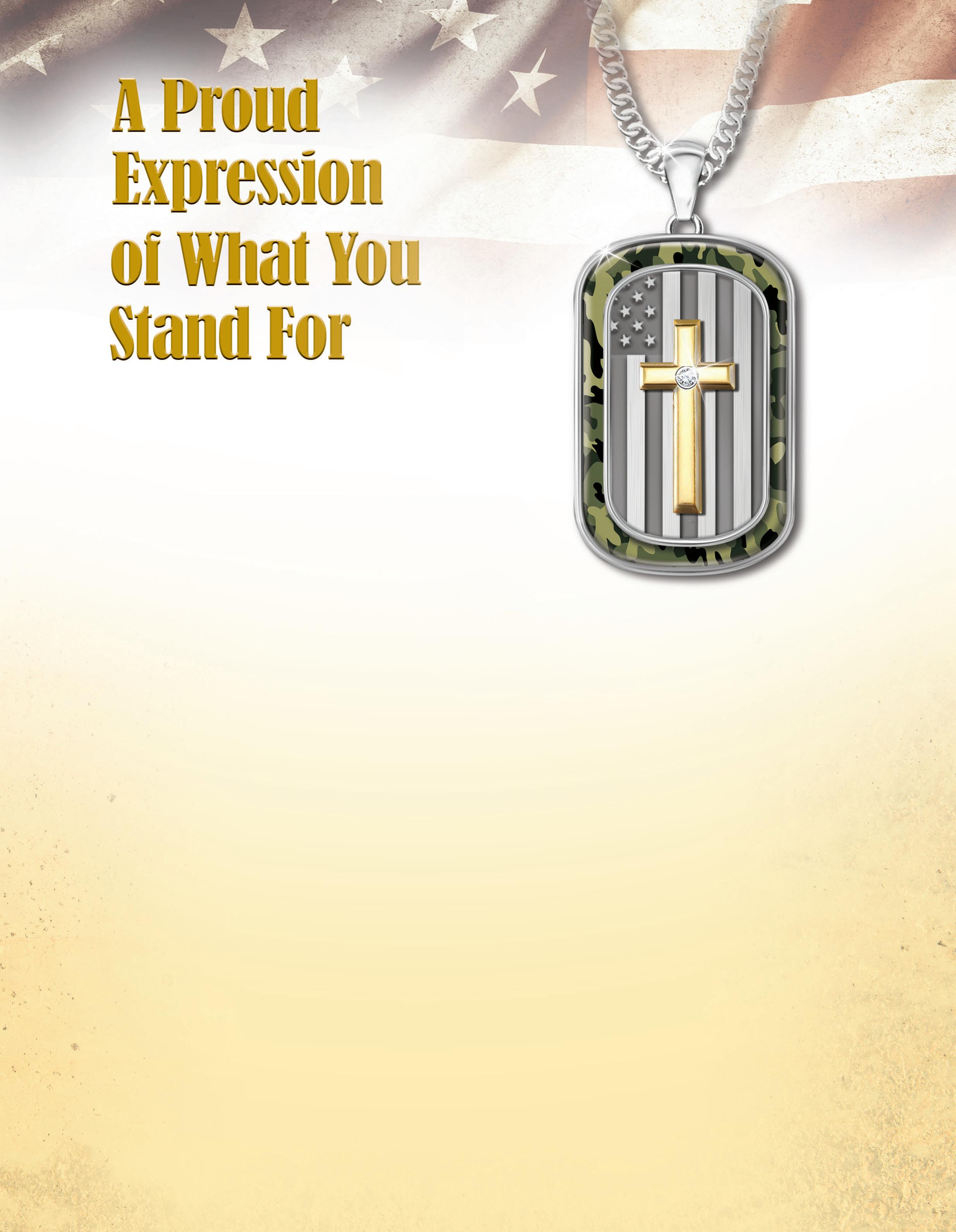
*Plus a total of $10.98 shipping and service (see bradfordexchange. com). Please allow 4-6 weeks after initial payment for shipment of your jewelry. Sales subject to product availability and order acceptance.
finely etched with the sentiment, “ALWAYS KNEEL FOR THE CROSS AND STAND FOR THE FLAG.” A 24" stainless steel chain completes the look.
SUPERIOR CRAFTSMANSHIP... EXCEPTIONAL VALUE
A unique way to show your faith and American pride, this exclusively designed dog tag is a remarkable value at $89.99*, payable in 3 convenient installments of just $30.00 and backed by our unconditional 120-day guarantee. Each hand-crafted dog tag arrives in a velvet jewelry pouch along with a Certificate of Authenticity. To reserve yours, send no money now; just mail the Priority Reservation. This limited-time offer is only available from The Bradford Exchange, so order today!
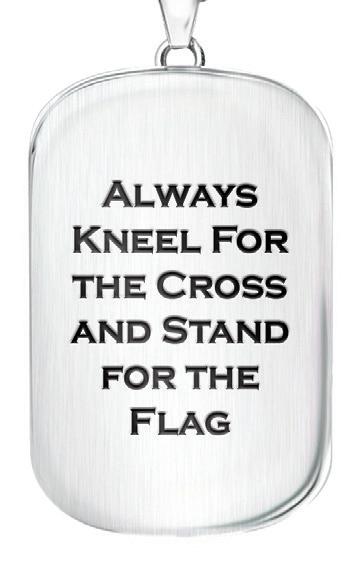
PRIORITY RESERVATION SEND NO MONEY NOW
9345 Milwaukee Avenue Niles, IL 60714-1393
YES. Please reserve the “My Country, My Faith” Men’s Dog Tag for me as described in this announcement.
Signature Mrs. Mr. Ms.
Name (Please Print Clearly)
BACKFIRES
SALLY STEVENS

Thanks to Joe Zimmerman (and the AMA staff) for writing and publishing the On Any Sunday Songbird piece on Sally Stevens in the December 2022 issue of American Motorcyclist. Recently, two high school buds and I (class of ‘72), watched Dana Brown’s movie On Any Sunday: The Next Chapter. At the end, that iconic theme song played, and we all wondered who the vocalist was. We combed through the credits to no avail, but thanks to your article, we now know it was Sally Stevens! Although she wasn’t grounded in motorcycling, I love that she asked her brother for that ride to get her into the mindset. It sure turned out wonderful!
Sean Clancy AMA #43864650 and winding our way through the spring runoff trying to make sign up and tech inspection, all while listening to the On Any Sunday soundtrack from a cassette we made just before our departure for the 20-hour road
trip. Life did not get any better for a young racer about to see the biggest racing event in his life. So thank you for putting a face and introducing us to Sally Stevens after all of these years.
Gerry FostvedtLETTER OF THE MONTH
AURAL PLEASURES
What a fantastic backstory to the iconic times of On Any Sunday and its soundtrack! Everything about the movie brings back such special memories of the golden era that was motorcycling in America during the 1960s and ’70s. To this very day I can tell you where the songs of this soundtrack were branded into my mind: On our way to Hangtown in 1978, a cross-country road trip through all kinds of late-spring weather; we ended up going into the Nevada/California Sierra mountain passes with 10-foot high snowbanks on either side of the road, and then coming down into the lush green hillsides on the other side. Driving onto highway
really enjoyed the The Kids Are Alright piece about KTM’s e-bike program in the November 2022 issue. Reminiscing about the days of my youth when we’d go watch the motocross races, one key element was the sound of the 2-strokes; they were a big part of the visceral experience that was so intoxicating to a young motorcyclist. I can still remember the deep, throaty sound of the first 4-strokes racing among the 2-strokes back in the late 1990s, too. (Yes, I know 4-strokes were dominant in the old days.) While reading your article I wondered how much of that experience would be lost if e-bikes were to become the only bikes racing? Don’t get me wrong; I’m not opposed to e-bikes. In fact, I’d love to have an electric street bike. But the thought of going to see a motocross race and only hearing the near silence of all the e-bikes racing around the track is unfathomable.
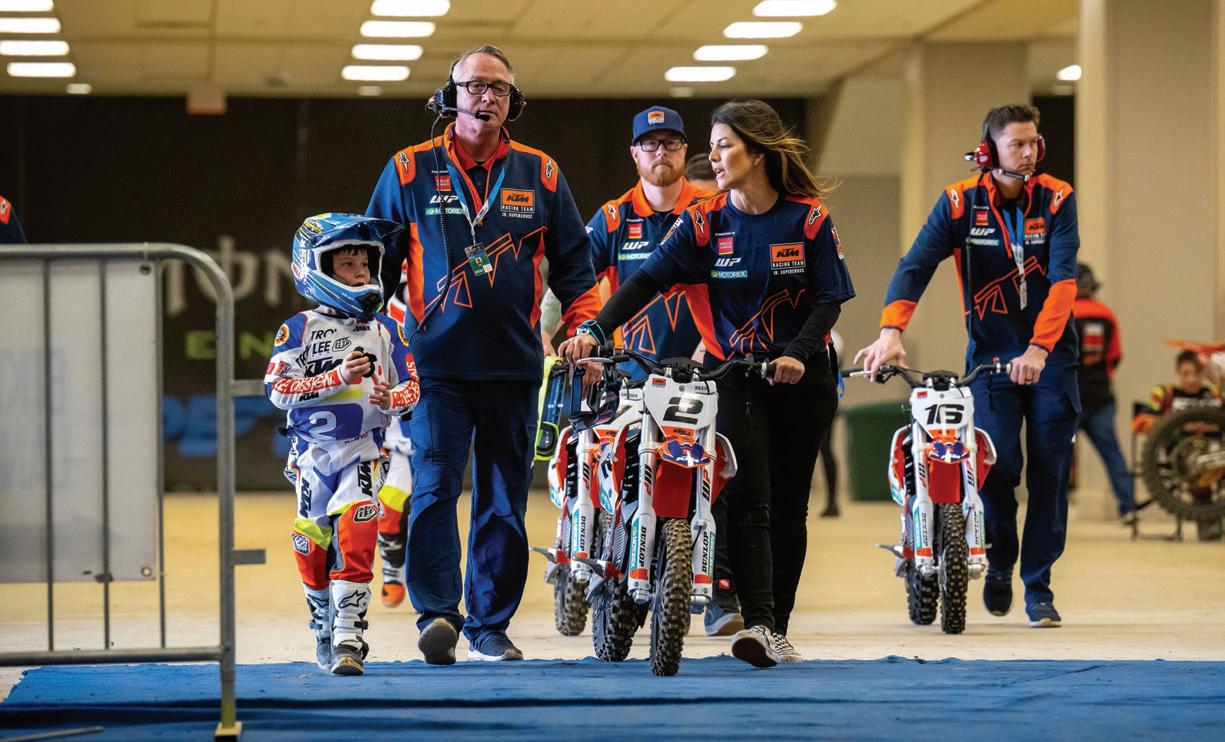 Roy Jerome Poplarville, Miss.
Roy Jerome Poplarville, Miss.
We suspect it’ll be unfathomable to many, Roy, but to the younger generation, who are now growing up with a lot of e-powered two wheelers (and 4-wheelers), it probably won’t be as much of a stretch. It’ll be interesting to see how it all shakes out in the coming years, because the e-bike thing is already here. —Ed.
Letters to the editor are the opinions of the AMA members who write them. Inclusion here does not imply they reflect the positions of the AMA, its staff or board. Agree? Disagree? Let us know. Send letters to submissions@ama-cycle.org or mail to American Motorcyclist Association, 13515 Yarmouth Drive, Pickerington, OH 43147. Letters may be edited for clarity and brevity.
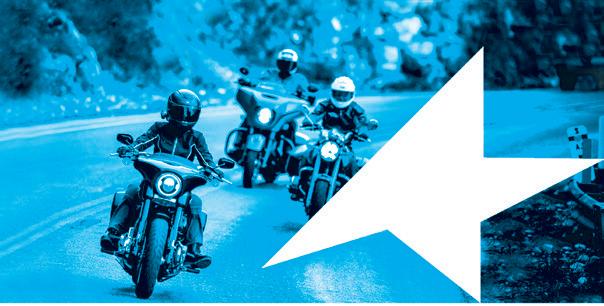
I
SORRY, DALTON!
In the January 2023 issue, the rider pictured on page 18 in Up To Speed is not Dalton Shirey. Obviously, Dalton deserves his image associated with his hard-fought championship, which hopefully you can publish in a future issue.
Jeff Morrison
You’re right, Jeff! That was the Youth division’s Big Wheel title winner Jason Harris pictured, not Shirey. Sorry about the slipup, and here’s a photo of the real Dalton Shirey surrounded by his team after clinching the 2022 AMA National Hare & Hound Championship last year. —Ed.
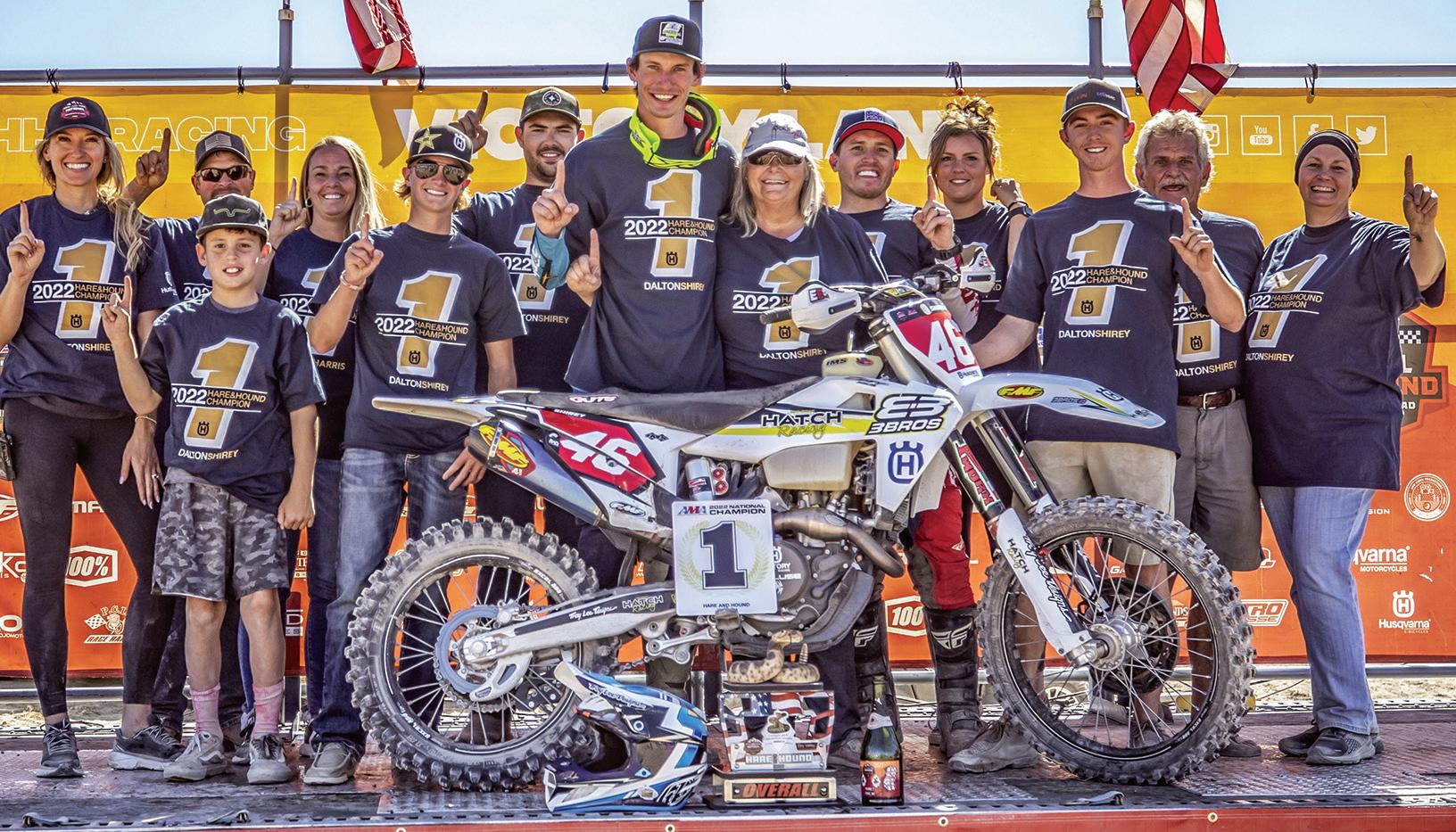
MONTANA BOUND
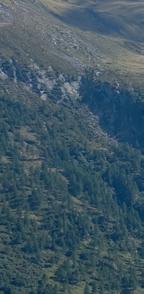

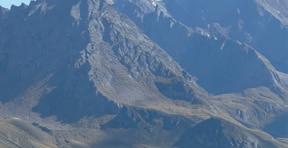
Just wanted to express my appreciation for the Moto Meritocracy column from B. Jan Montana in the November 2022 issue. Self-determination regardless of “education” or perceived intelligence is not something that is often written about, at least in my experience. I have known folks that thought they were “dumb” because they could not do well in school, yet in fact they were some of the smartest and capable people I have ever known in practical skills and observation, and highly successful in their chosen vocations and life in general. Great article, proper article. Thanks!
 Glen Romriell Englewood, Colo.
Glen Romriell Englewood, Colo.

Really enjoyed Moto Meritocracy by B. Jan Montana about Lonnie Manybears. Great story and great writing! I suggest you get B. Jan Montana to do more columns.
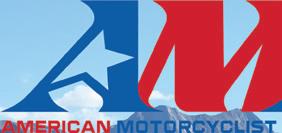 Ron Glaum Livermore, Calif.
Ron Glaum Livermore, Calif.
Working on that, Ron! —Ed.
KUDALSKI CORRECTION







In my haste to update you quickly on Don Kudalski’s reunion with his factory Harley-Davidson mechanic Tom Volin (Letter of the Month, December 2022), I incorrectly stated that Kudalski was “never a champion.”
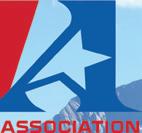





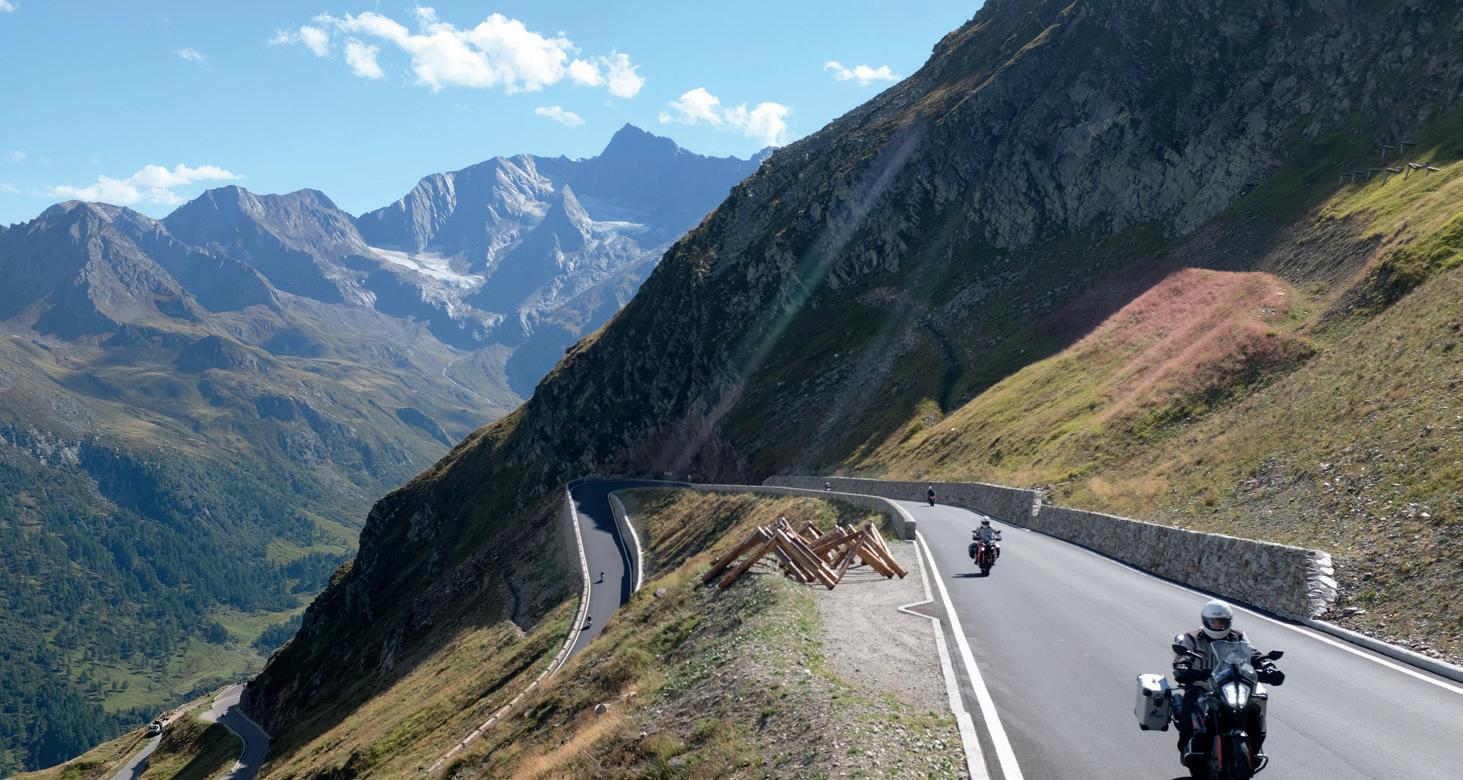
While technically true for his time with the Harley-Davidson factory team, it’s not representative of his riding career. Besides winning a handful of amateur championships in the early and middle 1970s, Kudalski earned Open-Class Championship honors in the 1978 Florida Winter-AMA Series (though on a Yamaha, not a Harley-Davidson). Thanks for allowing me to correct my error.
Keith Geisner St. Genevieve, Mo.Consider it done, Keith. —Ed.
REV MATCHING
I read your recent article on rev matching (December 2022) and discovered to my surprise that I had been doing this (or at least a workable version of it) for years and years, and didn’t even realize it! Pretty sure it came from all the dirt bike riding I did as a kid back in Ohio. Anyway, thanks for the piece and all the recent Street Savvy articles you’ve published on riding skills; it often takes years of experience to learn some of this stuff but reading about it can substantially quicken the learning curve, and that will undoubtedly help keep folks on two wheels.





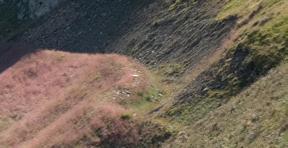
 Jeff Schmitz Tucson, Ariz.
Jeff Schmitz Tucson, Ariz.
BACK IN THE DAY
Where the photos are blurry but the memories are clear!
As a lifelong rider I was totally overjoyed to find that my work as a young economic development officer during four years in rural Cameroon, West Africa, in the early 1980s required me to reach extremely iso-
lated mountain villages and farms by motorcycle. After years of street riding, I had to learn some pretty rough trail riding the hard way just to get to work. Quite a shock for the local folks seeing me show up at their door. In the end I was also training new Cameroonian field officers how to ride their newly issued motorcycles. Ever since in every country I’ve worked in I’ve had a motorcycle. These days I stay on the roads on my Goldwing or my Zero.
Adam Koons3Just out of the Navy in 1946, here’s my 22-year-old father-in-law Jerry Huberth and his Harley-Davidson Knucklehead. Jerry was a devoted family man, motorcyclist and life-long union carpenter who worked in Rochester, N.Y. Jerry was a great guy and is missed by the whole family.
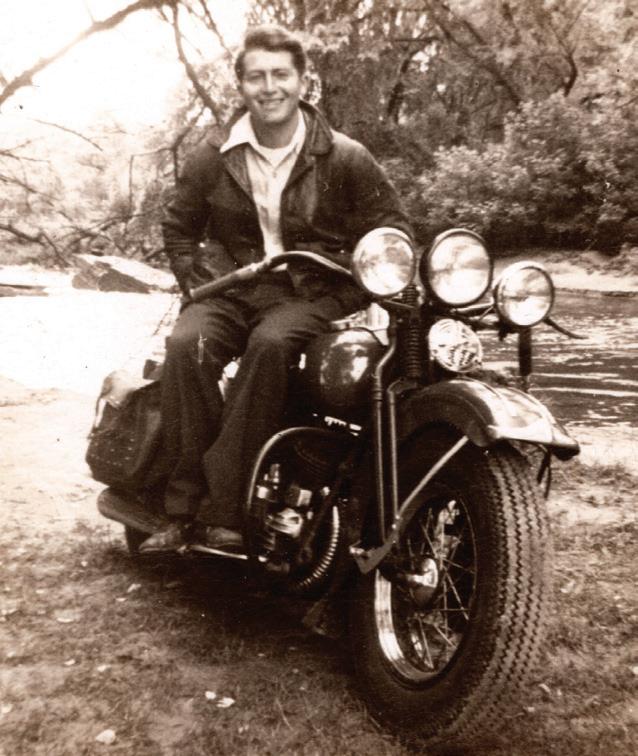 Dave Christof
Dave Christof
5It was 1969 in San Francisco and my dad had just bought us my first “real” motorcycle, a 1970 Yamaha HT-1 90cc Enduro. Never mind that my friends all had 250 DT-1s and Huskies, but it was a start. As much as I regretted being on the smallest bike in the group, in hindsight it made me a far better rider, as I had to work harder on hills, trails, and sand, flogging that poor little bike for all it was worth. And there were plenty of places to ride around the city in those days…you just had to know where! I am still riding 52 years later (I finally retired from racing) and loving it. Now I have nine bikes in the collection (including my ’71 Kawasaki Mach III) and have no intention of quitting. Shiny side up! Keep up the great work; I really look forward to receiving the magazine!
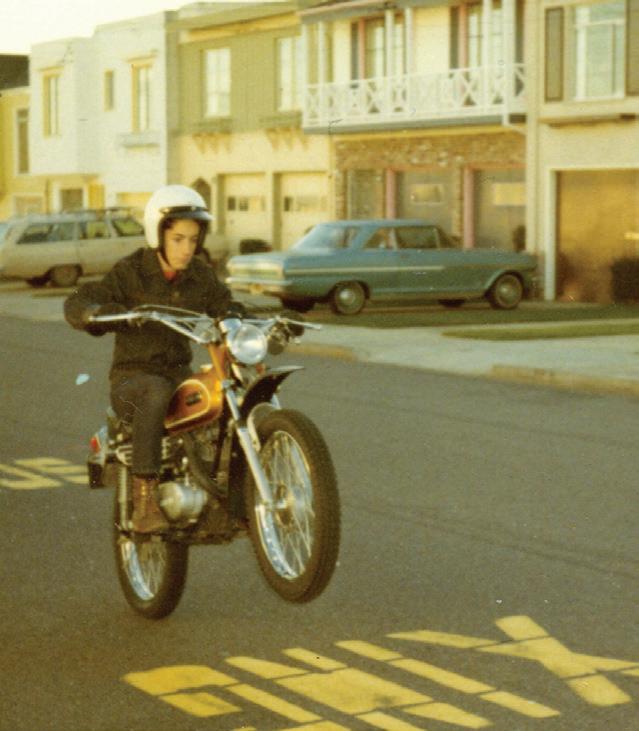
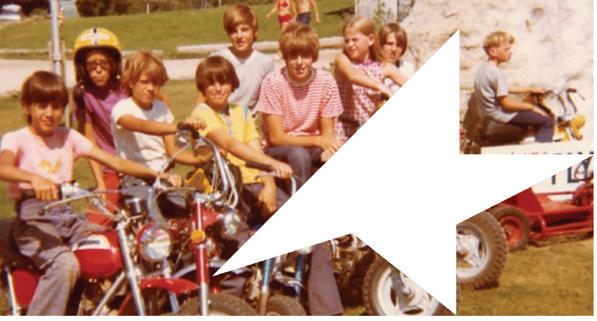 Eric Bickel
Eric Bickel
Regarding your article about the Yamaha DT-1 in the August, 2022 issue. Here’s mine…taken in 1973 or ’74 (those were really hazy days). I bought it new; I think it was $750.00. Ten years ago I graduated to three wheels. My wife and granddaughter rode in the Montclair, N.J., July 4th parade. The 2006 Ural is just as much fun, and my feet never touch the ground!
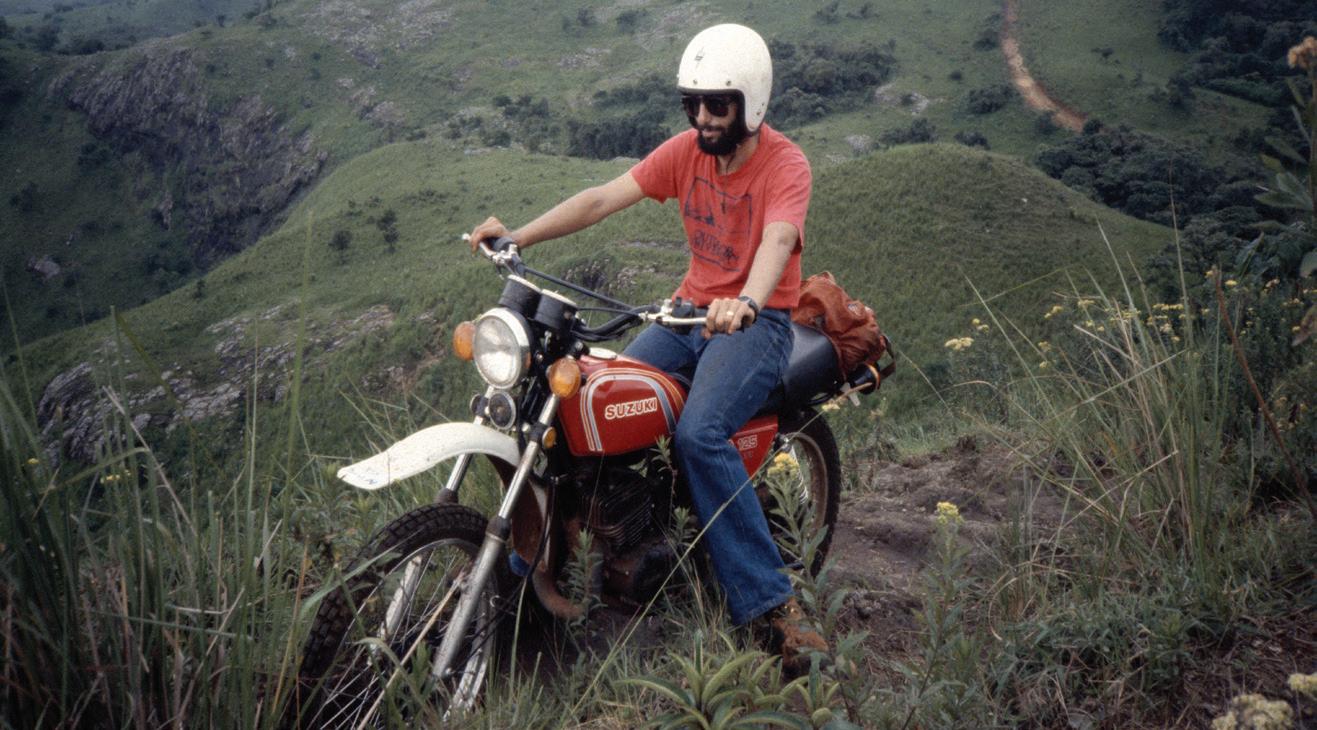
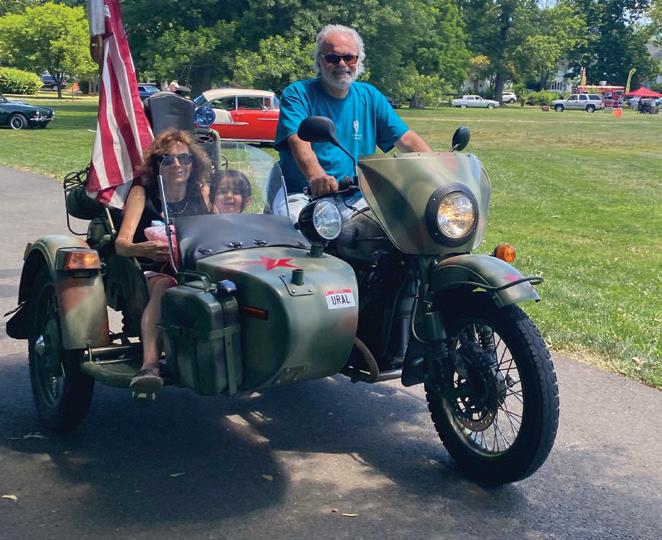
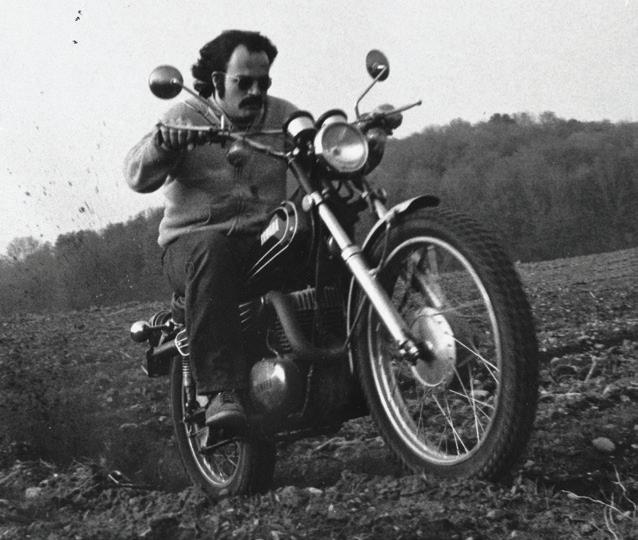 Jack Pignatello
Jack Pignatello

My parents were part of a group of motorcycle enthusiasts from Northern California’s central valley prior to World War II, riding Harleys (that’s them pictured on the Harley) and Indians. They were involved with the founding of the Lodi, Calif., Motorcycle Club in 1938, which is still in existence. During the war the motorcycles were set aside as my father served
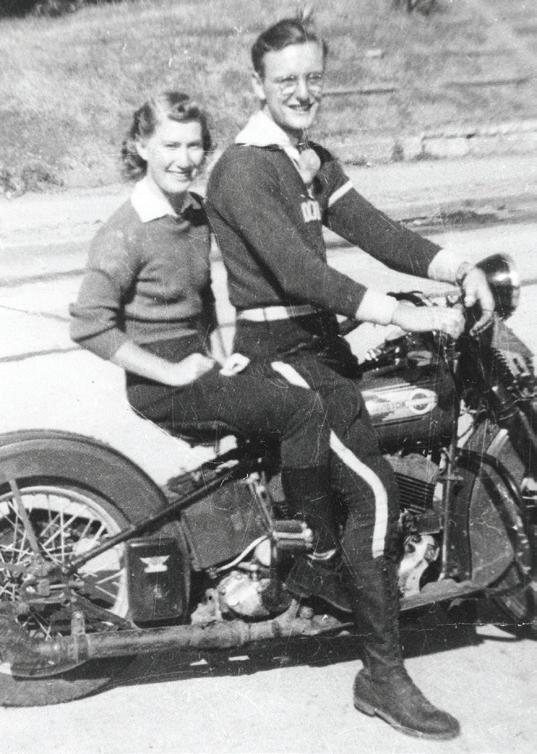
in the U.S. Navy. After the war my parents focused on raising a family — I was born in 1944 — and earning a living, but the motorcycle bug bit again 25 years later and my father purchased a Honda CB77, followed a short time later by a Triumph TR6.
Up to this point I’d focused on school and other activities but seeing how much my parents enjoyed riding,
it piqued my interest. As a college student I was a late comer to motorcycles when I bought my first bike, a Honda 250 Scrambler, which I rode to classes and on weekends. A friend of my parents introduced them to trail riding, which led to the purchase of a pair of Yamahas, a DT-1 and AT-1, and a short time later I sold my Scrambler and bought a Yamaha CT-1 (second photo), which I rode on the street and off-road before modifying it to compete in English Trials.
My interest in riding continued for many years thereafter, riding a mostly street and off-road bikes. I took a 15-year hiatus to race sports cars but always knew I would resume my motorcycle riding, which I did post 2012 on bikes ranging from 500 to 1200cc, which I rode quite often with my wife as passenger. Recently, I acquired a Ducati SCR 800, which I enjoy riding the many back roads near my home. Ride on!
Gary HorstkortaI learned to ride on a 1969 Carabela Mini 100 (made in Mexico) that my oldest brother purchased, and I rode it more than he did. That got me started, and I bought my first bike in 1970 (without my parents knowing) — a 1969 BSA 441 Victor. This is me outside of Mexico City in the mountains. This was a fun bike on- and off-road, but wasn’t much fun in the rain. I met my wife, who was visiting from Michigan, in 1970 on this bike, and I invited her to go for a ride around a few blocks of Mexico City…and she accepted. The rest is history. After several different bikes we celebrated our 50th anniversary in July and we still ride, now on a more comfortable 2014 H-D Ultra Limited. We now live in East Tennessee.
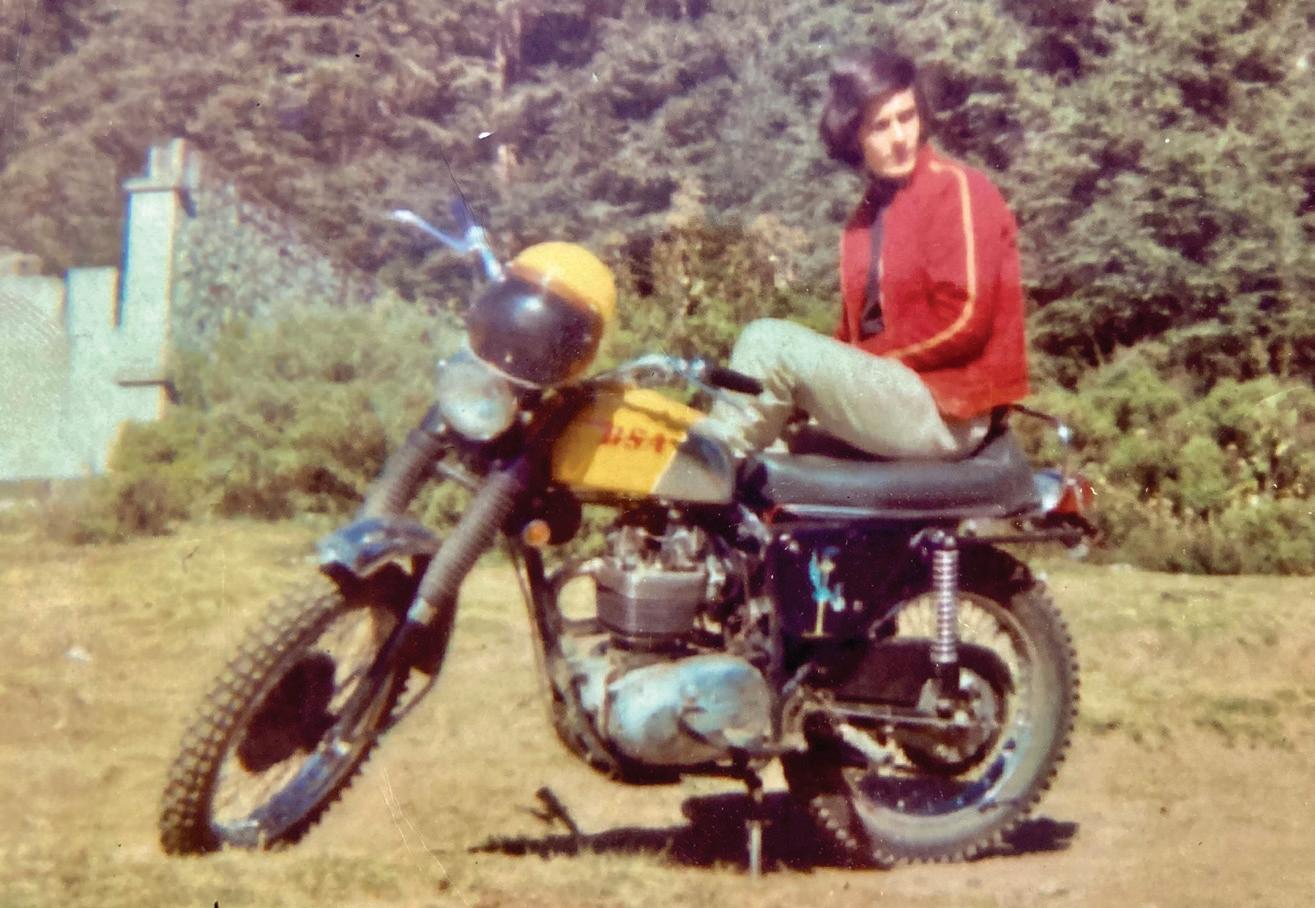 Jose Sanchez
Jose Sanchez

This is me in 1967 on my Suzuki X6 Scrambler riding the hills west of Denver. Nowadays, this part of Lakewood is all homes. That Suzuki never let me down, and I was pretty hard on it. I have owned many motorcycles, and I have to say that this one holds the most fun memories. After the tach hit 5 grand the 250cc two-stroke just screamed! I’m 78 years old and still riding on another Suzuki, a TU250X.
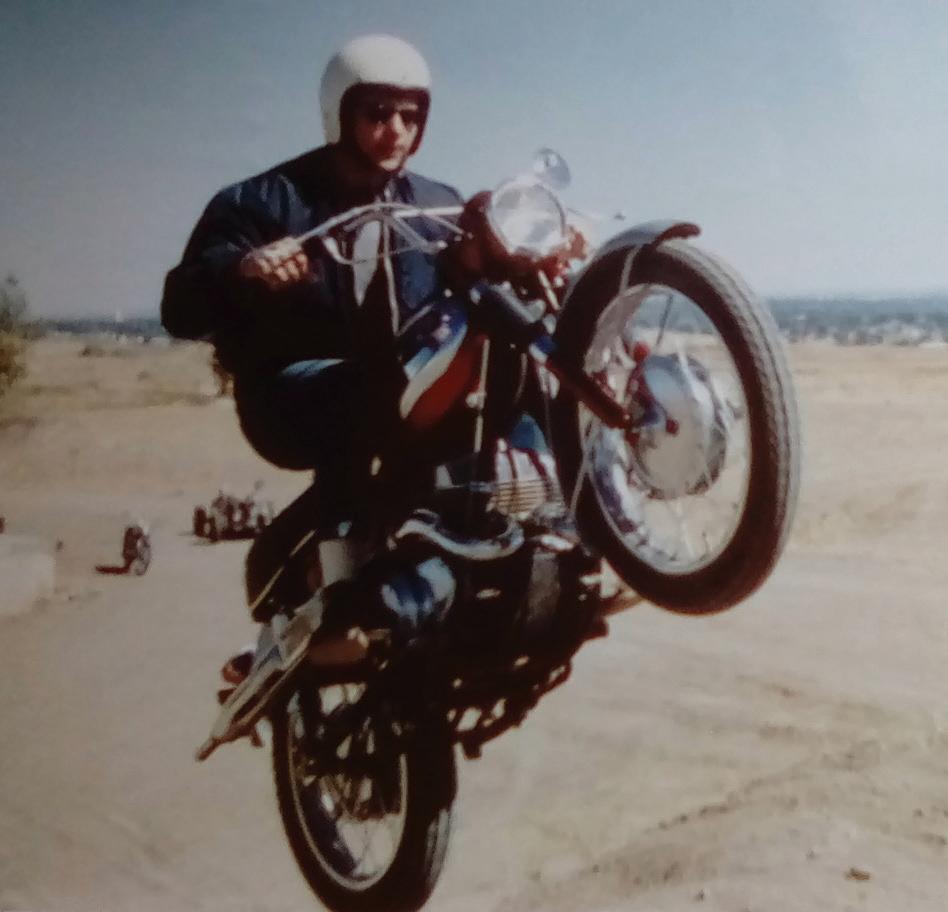
 David Voss
David Voss
up to speed
News, notes, insight and more from the motorcycling universe
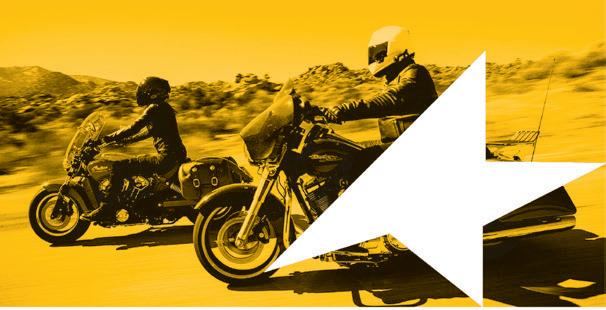

Naked Again, Naturally
Triumph expands and improves its popular 765cc Street Triple line with top-shelf tech — and a little help from Moto2
BY REED WRIGHTIt’s humorous, and a little bit ironic, too. From the early 1900s to the very early 1980s — call it a full century — all motorcycles were “naked bikes,” the exceptions being some early touring and sport-touring rigs, and most road-racing and speed-record machines looking for an aerodynamic advantage.
But that didn’t stop many motorcyclists (editors of this magazine included) from showing surprise (and some delight) during the last few decades at the resurgence of the so-called “naked bike”…as if an unclothed motorcycle were some sort of new and different thing on the motorcycling landscape.
Of course, many of today’s naked bikes are far different than yesterday’s Suzuki GSs or HarleyDavidson Sportsters, or even an early 1990s-spec Ducati Monster or mid-2000s Kawasaki ZRX1200R; mid- or higher-spec examples (non-entry-level machines, in other words) are typically pretty current in a tech sense, and often as fast and functional as the pure sportbikes parked in the same showroom. That was not the case back in the day.
More and more with changing
demographics and tastes, naked bikes are serious performance motorcycles, with some companies offering them as their top-shelf performance bikes. Triumph is one such company, as its thoroughly updated Street Triple lineup — recently unveiled at the final MotoGP event of 2022 in Valencia, Spain — clearly shows.
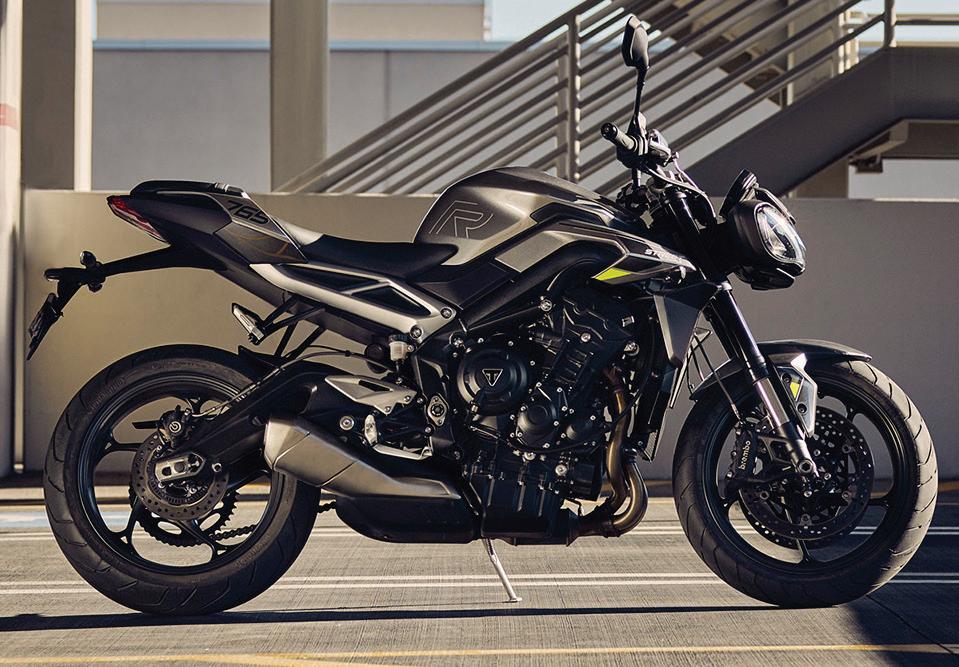
Flying a handful of journalists to Spain for the new Street Triple’s debut was far from random. Triumph is not only the official engine supplier
for Dorna’s Moto2 division, but the Hinckley firm has used the lessons learned from that world-class competition to significantly upgrade its production-spec 765cc triple — which now powers all three iterations of the 2024 Street Triple line: Street Triple R (base model, at $9,995),
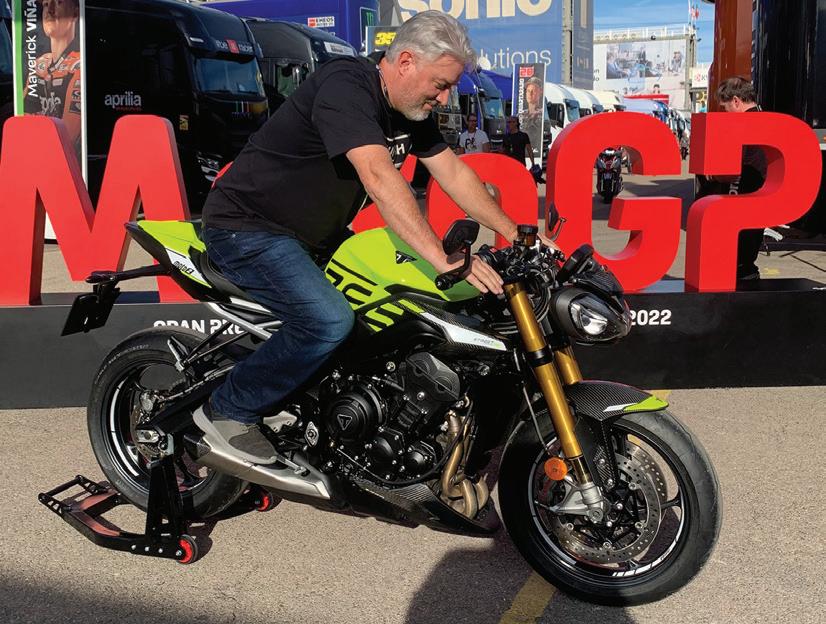
Street Triple RS ($12,595), and the limited-edition Street Triple 765 Moto2 Edition ($15,395).
Changes to the updated triple include new pistons and revised combustion chambers for 5 percent more compression. Updated valves and more aggressive cams add to the mix for peak horsepower numbers of 118 (for the base R model) and 128 for the RS and Moto2 Edition.
New bodywork and a smallercapacity fuel tank surround an as-before alloy frame featuring a mix of Showa and Öhlins suspension
componentry; Showa exclusively on the R, an Öhlins shock and Showa Big Piston fork on the RS, and Öhlins all around on the Moto2 Edition. The RS and Moto2 Edition feature slightly upgraded Brembo calipers and master cylinders vs. the R, too. Where the Moto2 Edition really stands out is with its carbon-fiber bodywork, top-spec Öhlins NIX30 fork, lower clip-ons and exquisitely machined top triple clamp, which displays the bike’s Moto2 designation and build number.
In person, the Moto2 Edition is an aesthetic stunner, so much so that after hopping off one of the display bikes at Valencia I asked one of the Triumph folks if I could order one that very day — and got an affirmative nod. I’ve been looking for a new trackday bike recently, and it looks as if I’ll soon have one!
Aside from its upgraded naked bikes, Triumph is definitely a company on the move these days. Look for more on that in next month’s edition.
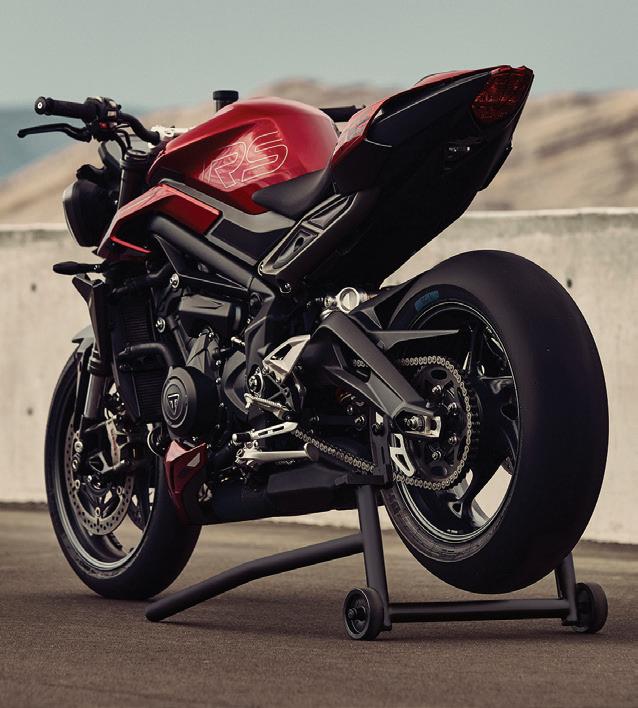
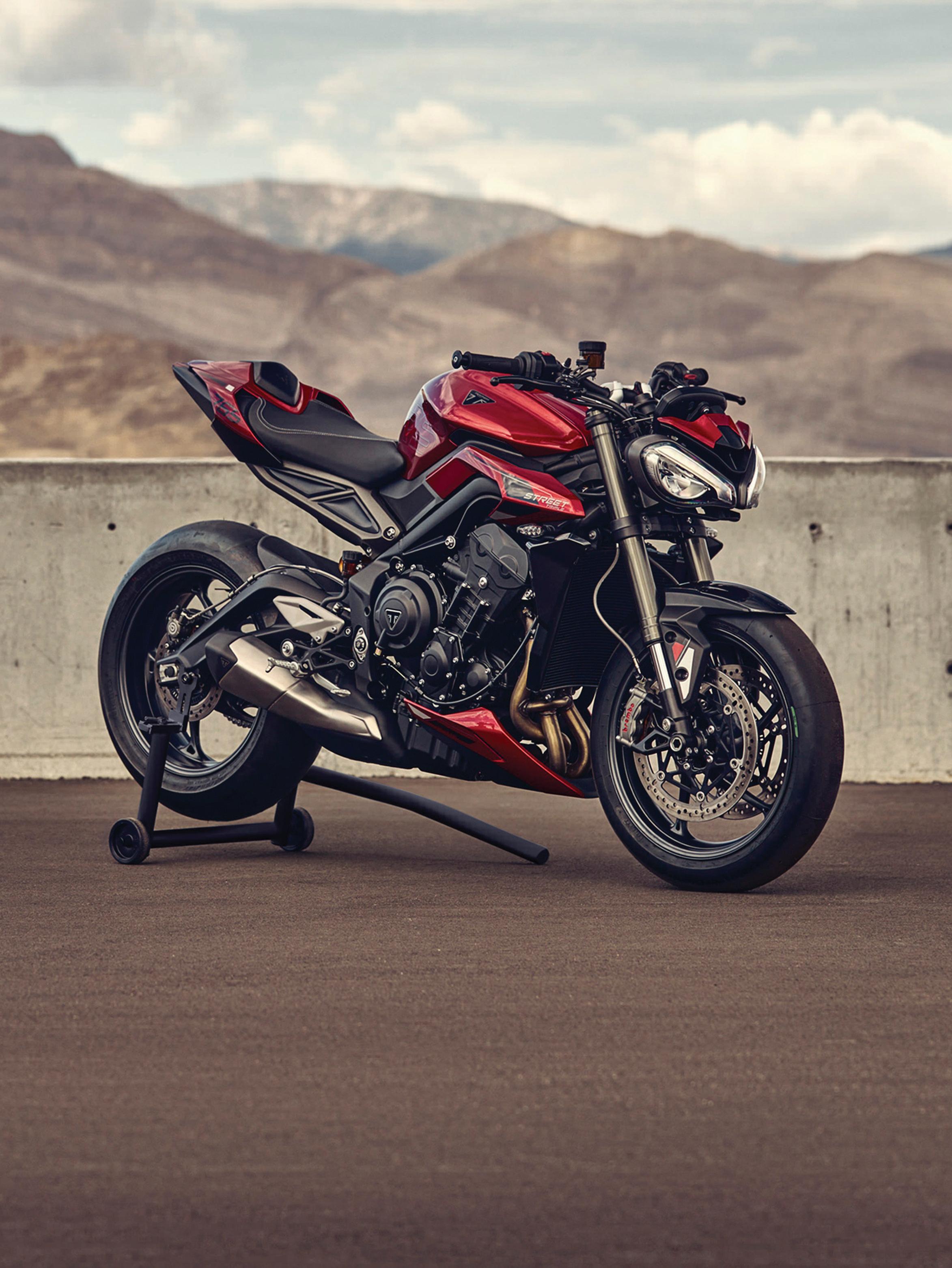
More and more with changing demographics and tastes, naked bikes are serious performance motorcycles, with some companies offering them as their top-shelf performance bikes.
up to speed
RIGHTS Roundup
What’s trending in government relations and legislative affairs BY AMA GOV. RELATIONS TEAM
BY AMA GOV. RELATIONS TEAM
OUTDOOR REC DRIVES ECONOMIC GROWTH
The Outdoor Recreation Roundtable, a coalition of recreation trade associations and organizations, recently analyzed the U.S. Department of Commerce’s Bureau of Economic Analysis report on the 2021 outdoor recreation economy. During the 2021 calendar year, the outdoor recreation economy accounted for 1.9 percent ($862 billion in economic output) of gross domestic product (GDP) across the nation. This is a record-breaking figure, with the inflation-adjusted GDP for the outdoor recreation economy increasing by 18.9 percent in 2021, compared with a 5.9 percent increase for the overall U.S. economy.

As the outdoor recreation industry continues to grow, largely as an unexpected result of COVID-19, there were over 4.5 million jobs within the outdoor recreation economy in 2021, which accounted for 3 percent of all U.S. employees. These substantial economic reports quantify the positive impact the outdoor and riding community has across our nation and will help in our continued efforts
to support and expand responsible motorized recreation.
OIL INDUSTRY BACKS YEAR-ROUND E15 SALES
Late in the session of the 117th Congress, Sen. Deb Fischer (R-Neb) introduced the “Consumer and Fuel Retailer Choice Act of 2022” (S. 5145), which would allow for year-round sales of E15. While this is far from the first time that legislation with the goal of expanding E15 in the marketplace has been introduced, it is the first time the oil industry as represented by the American Petroleum Institute has supported such legislation.
“By allowing for the year-round sale of E15 nationwide while also preserving access to lower ethanol gasoline blends, this bipartisan legislation strengthens the reliability of the fuel supply chain,” said Will Hupman, API Vice President of Downstream Policy, in Sen. Fischer’s press release.

For several reasons, not least of which is that E15 fuels are illegal in motorcycles, boat engines, lawn mowers, chainsaws and other outdoor power equipment products, the
AMA strongly opposes the expansion of E15 in the marketplace and has long demanded better labeling and consumer education where it is available. The AMA’s Government Relations team will monitor similar legislation sure to be introduced in the new 118th Congress, and work to secure access to safe fuel for the nation’s motorcyclists.

UTAH TO REQUIRE OHV EDUCATION
Beginning Jan. 1, 2023, the state of Utah will require all OHV operators to complete the Utah Off-Highway Vehicle Education Course. Operators under the age of 18 shall possess a youth OHV education certificate to operate an OHV on public land, road or trail. Operators 18 years of age

or older may operate an OHV if they possess an approved adult OHV education certificate. The adult test will be available on Jan. 1, 2023.
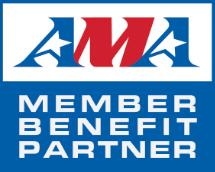
To help ensure the safety of all riders, Utah law allows anyone under 18 years of age to operate an OHV on public land under the following conditions:

• The rider can reach and operate each control necessary to safely operate the off-highway vehicle





• They have in their possession an OHV education certificate or a valid
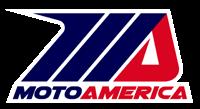
Driver’s License
• There is direct adult supervision
The online youth education course fee is $30 per student, and you only need to pass it once. Once you pass, you can print out a temporary operator license that will be valid immediately until you receive your permanent license in the mail. The OHV certification covers all-terrain vehicles (ATVs), off-highway motorcycles (OHMs), and side-by-side ATVs (type II ATVs or UTVs). The snowmobile certification covers only snowmobiles. These education classes teach essential safety skills such as:

• Safe riding
• Proper machine sizing
• Weight distribution
• Responsible and ethical riding
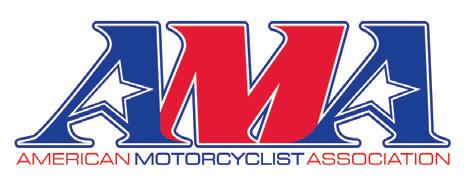
• Proper handling and shifting



• Riding within your ability
Visit recreation.utah.gov for updates and on-line class information.

RIDING ROUNDUP up to speed
Saddlebags and Paperbacks
AMA-sanctioned motorcycle club spreads stuttering awareness through Nina’s Ride
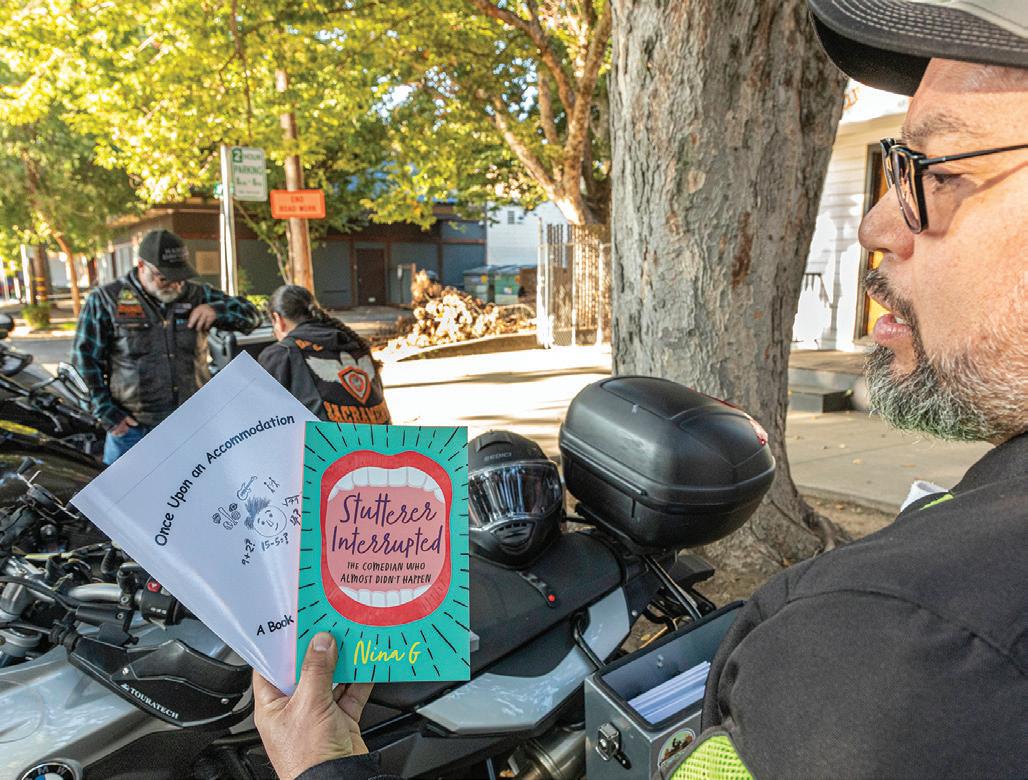
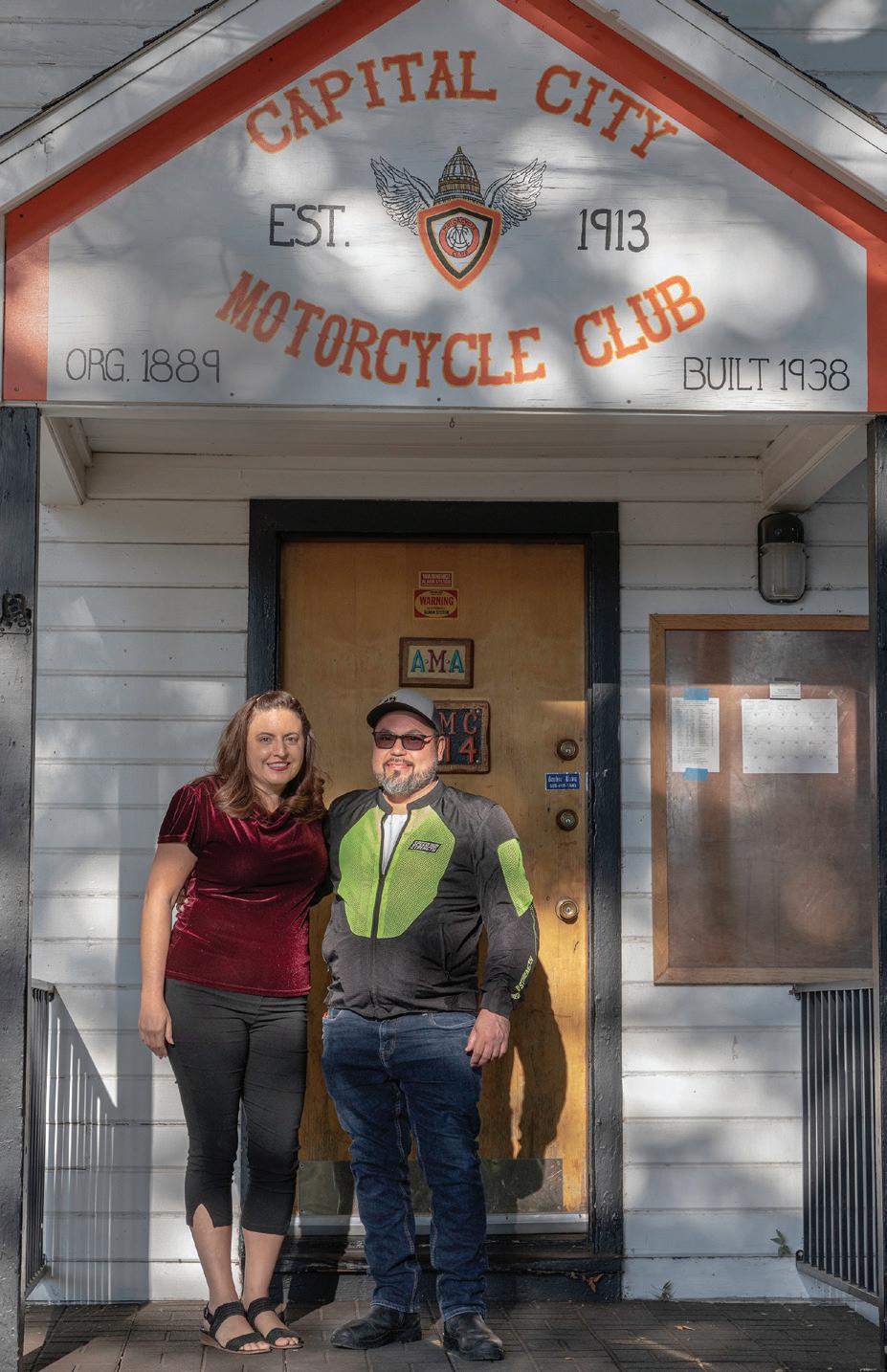
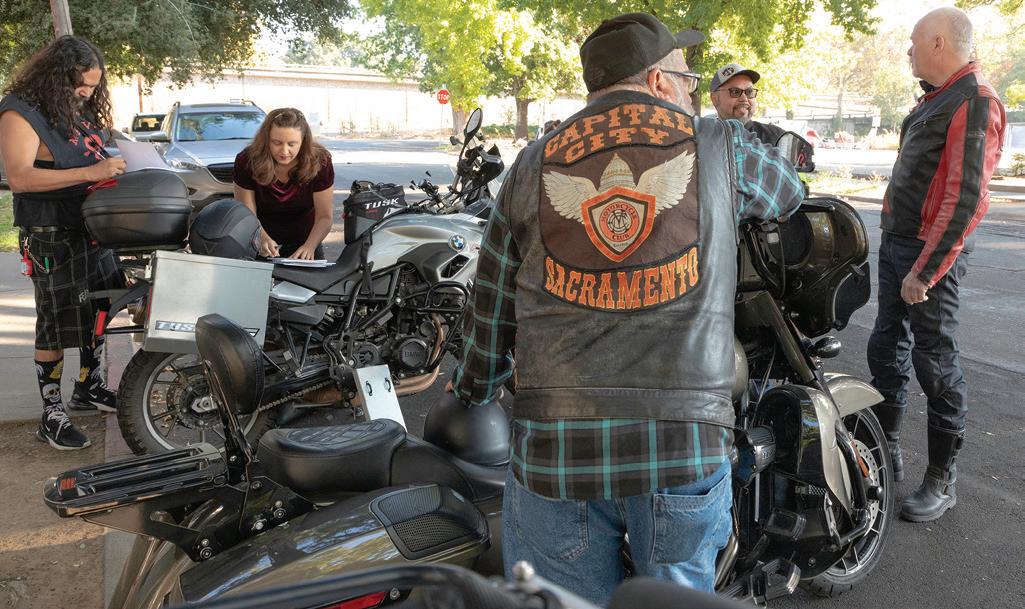 BY JOE PERFECTO
BY JOE PERFECTO
n a Saturday morning in mid-October, some rather uncommon delivery vehicles rumbled through Sacramento-area neighborhoods, bearing cargo bound for some equally uncommon destinations.
Leaving from the Capital City Motorcycle Club’s clubhouse and covering nearly 100 miles, three motorcyclists traveled to 15 Little Free Library book-sharing boxes to deliver books as part of the inaugural running of Nina’s Ride — named after San Francisco Bay Area comedian, author and public speaker Nina G, who has attained much success despite possessing a stutter.
“Earlier this year I went to a comedy show,” said Capital City Motorcycle club member Joe de Leon, “and Nina was one of the comedians, and after

her show she was selling a couple of her books. One was a memoir about her experience as a stuttering woman who experienced stigma and all kinds of other difficult barriers to being a comedian. I read that book and was super inspired.”
“I bought 20 of her books, and I thought I could get them to 20 different libraries around town to get the word out — we could spread awareness about stuttering,” he said. “[Then] I learned that Nina also had written a children’s book about disability accommodations, and I bought 20 of those.”
The books by Nina G that de Leon and crew delivered just in time for International Stuttering Awareness Day (Oct. 22) are Stutterer Interrupted: The Comedian Who Almost Didn’t
Happen and Once Upon an Accommodation: A Book About Learning Disabilities.
Stuttering, an incurable but often manageable condition, affects about one in 100 people around the world, and about 3 million in the United States alone.

“What a Little Free Library does is amplifies a local voice,” de Leon said. “When you take [a book] to your little library, then your neighbors can read that same story and maybe have the same experience. I love the idea of [book] sharing. It’s a way to connect with the community.”
“We received a warm welcome from several little libraries — a couple even gave us snacks,” de Leon continued. “We definitely plan to do it again next year!”
The Perfect Time to Hit the Highway!
Ride Hard, Live Free Thermometer
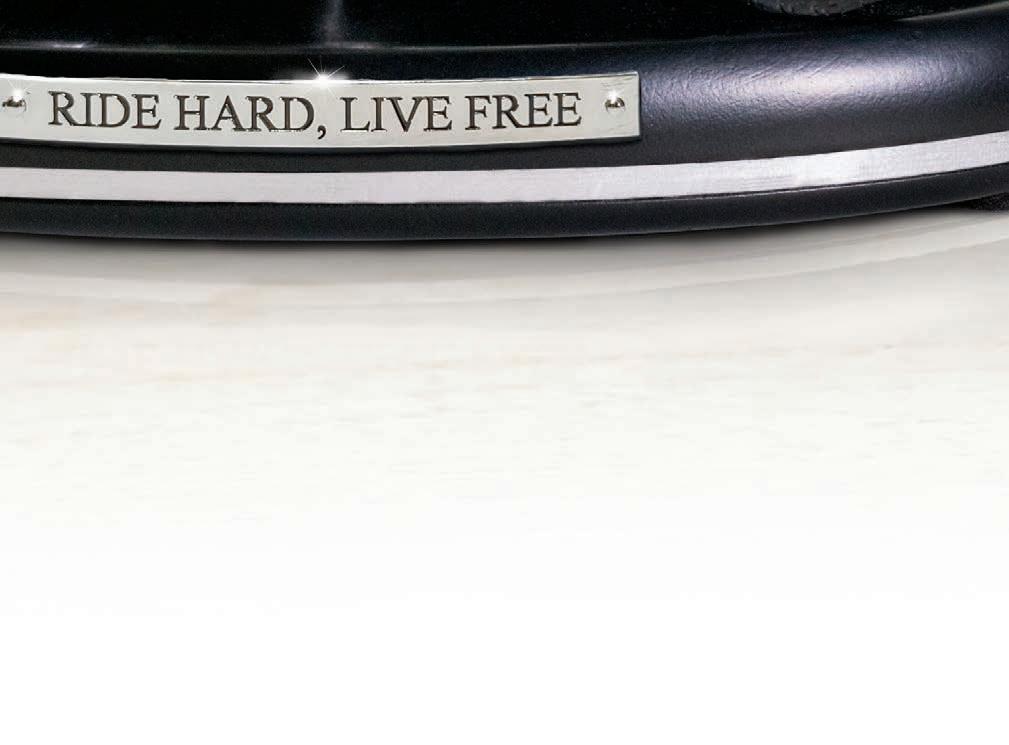
Silvery sculpted handlebars and headlight create a unique statement atop the design
Quartz-accurate desk clock paired with indoor thermometer recaptures the look of the speedometer and gauges of a motorcycle

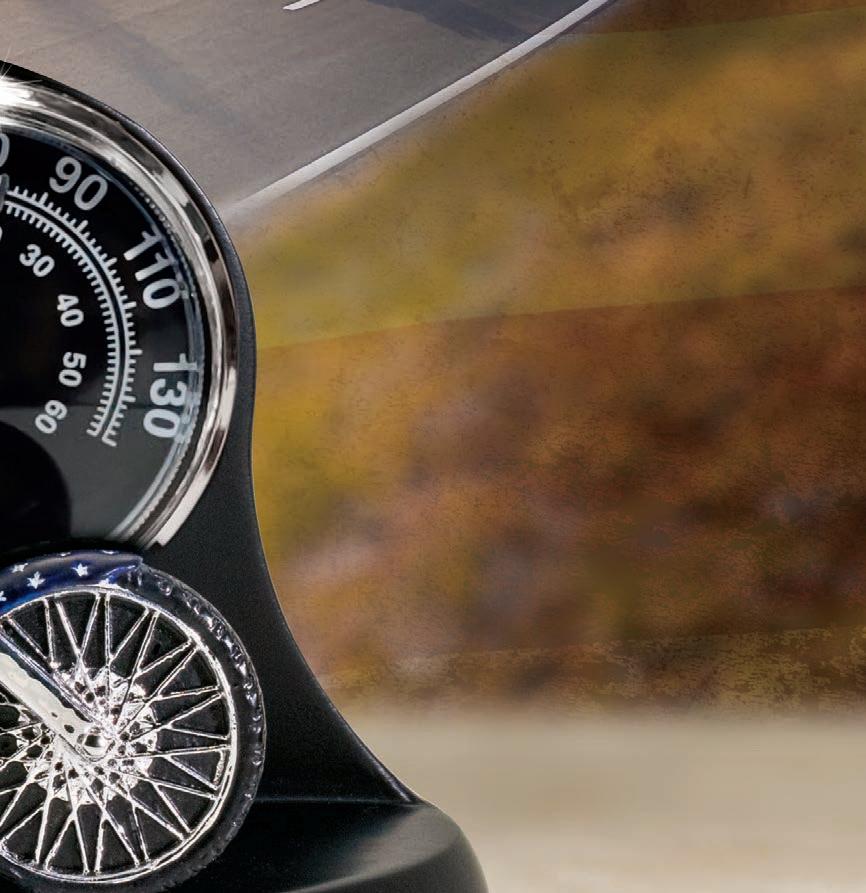
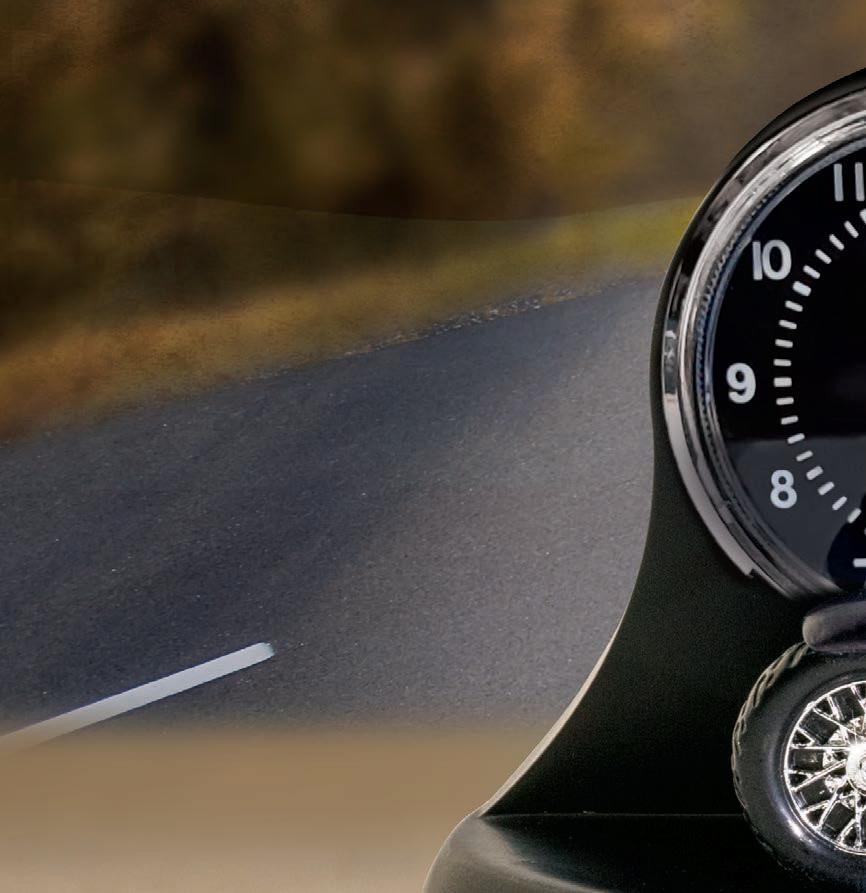
Sleek black nish goes with any decor
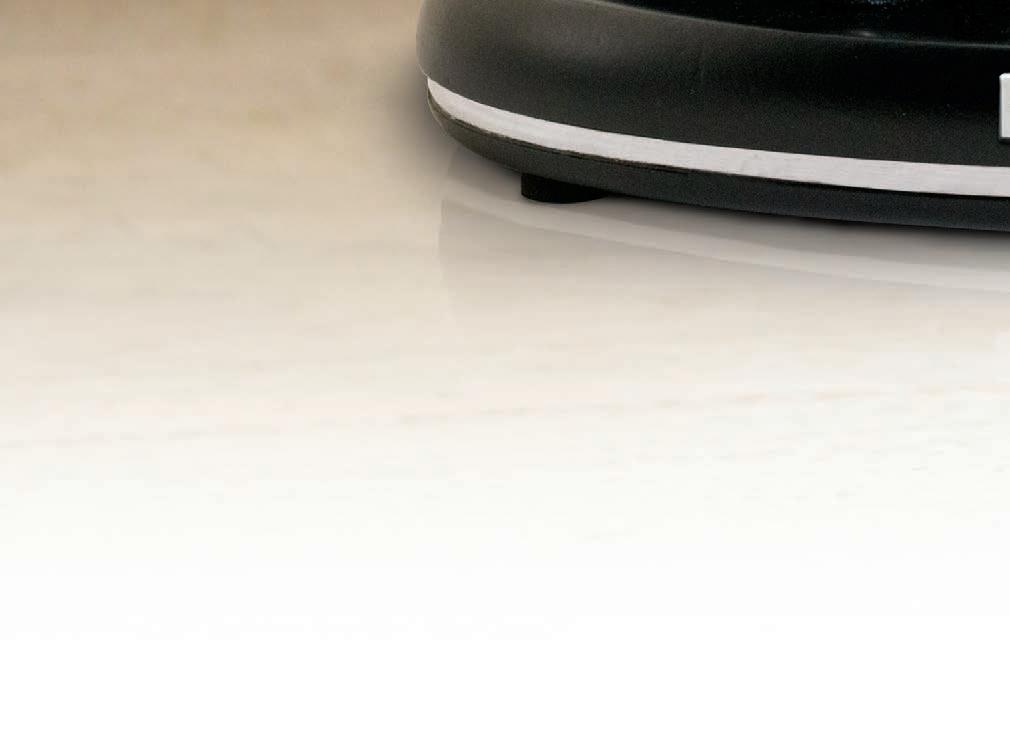
Fully sculpted red, white and blue chopper salutes the highways of America

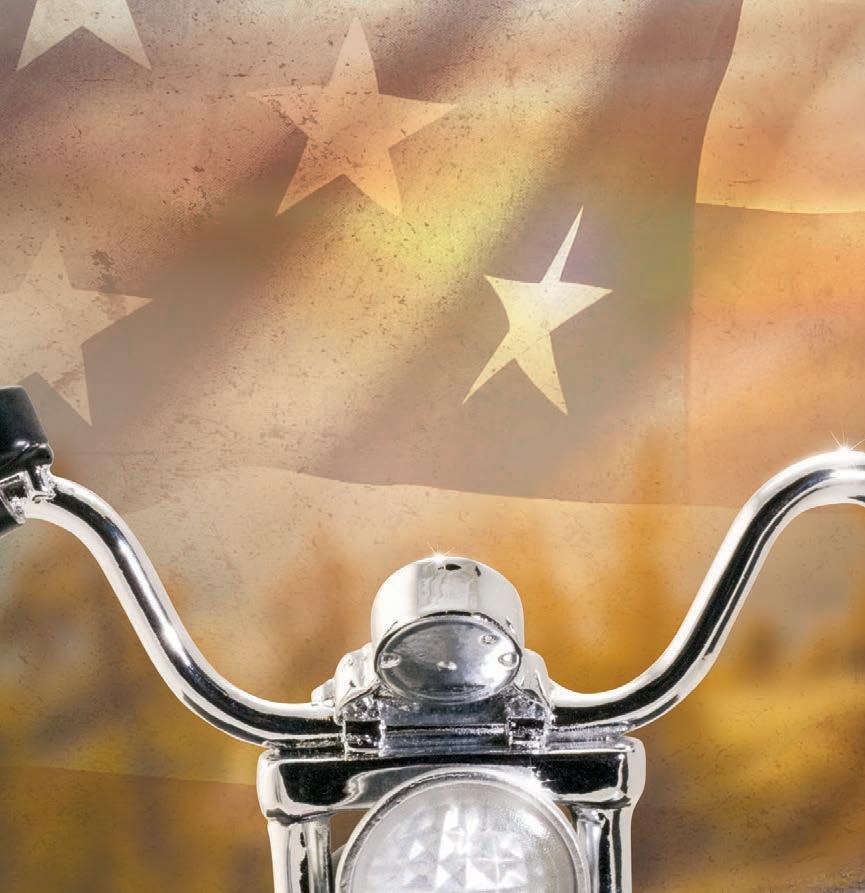
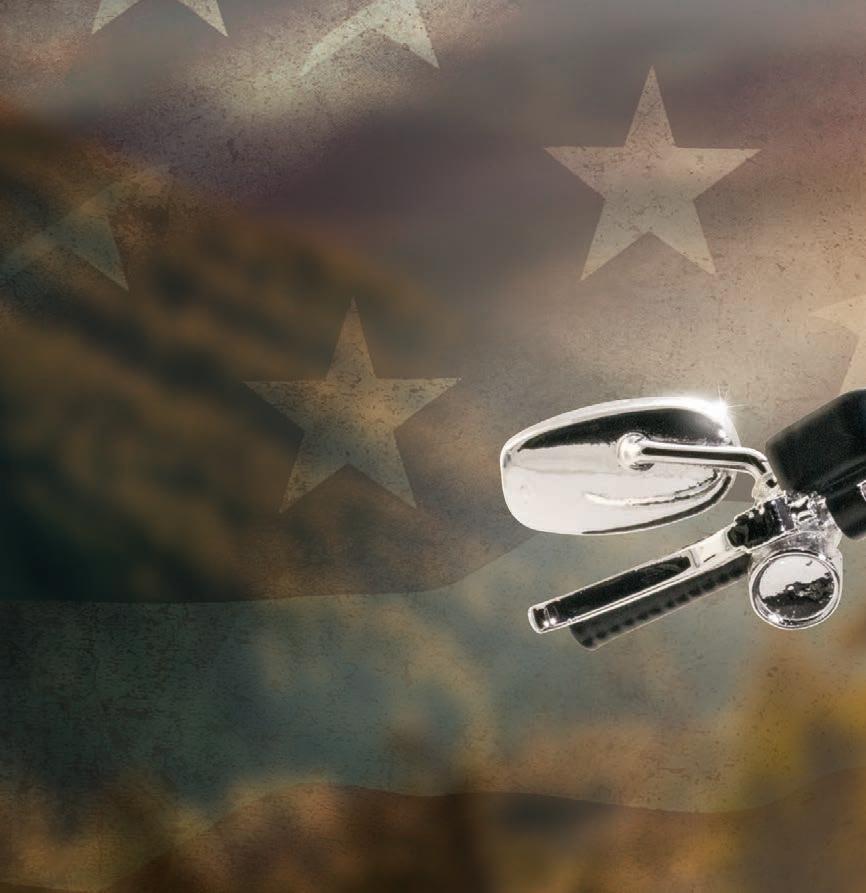
Celebrate the Open Road!

Now you can take a little bit of the highway to any room with the Ride Hard, Live Free Thermometer Clock, exclusively from The Bradford Exchange. This sleek black- nished desk clock features an ever-faithful quartz-accurate analog timepiece and matching indoor thermometer designed to recall a classic chopper’s odometer and temperature gauge. Rising powerfully above the instrument set is a hand-sculpted, three-dimensional set of handlebars and headlight in a sleek metallic nish. A fully sculpted chopper with a gas tank in red, white and blue salutes the highways of America and all the bikers who make them their own. The silver plaque on the bottom bears the edition title and biker’s motto.
Act now to get yours in four installments of only $34.99 each, for a total of $139.99*. Our 365Day Guarantee assures your complete satisfaction. To order, send no money now. Just complete and return the Reservation Application!
Racing ROUNDUP up to speed

Lone American
Fred Hoess put up a golden performance in Portugal while representing the Red, White and Blue
BY KEATON MAISANO PHOTOS BY PH24, NB3 DESIGN & FIM-PHOTOSWhen Fred Hoess arrived in Portugal at the end of September to participate in the 2022 FIM Enduro Vintage Trophy (EVT), he did so as the lone bannerman for the United States.

A 19-time gold medalist at the FIM International Six Days Enduro, and the gold medalist at the inaugural EVT in 2016, Hoess has proudly represented his country time and time again. However, his experience this past fall stands above the rest as he and his Husqvarna WR250 took the top individual spot following the four-
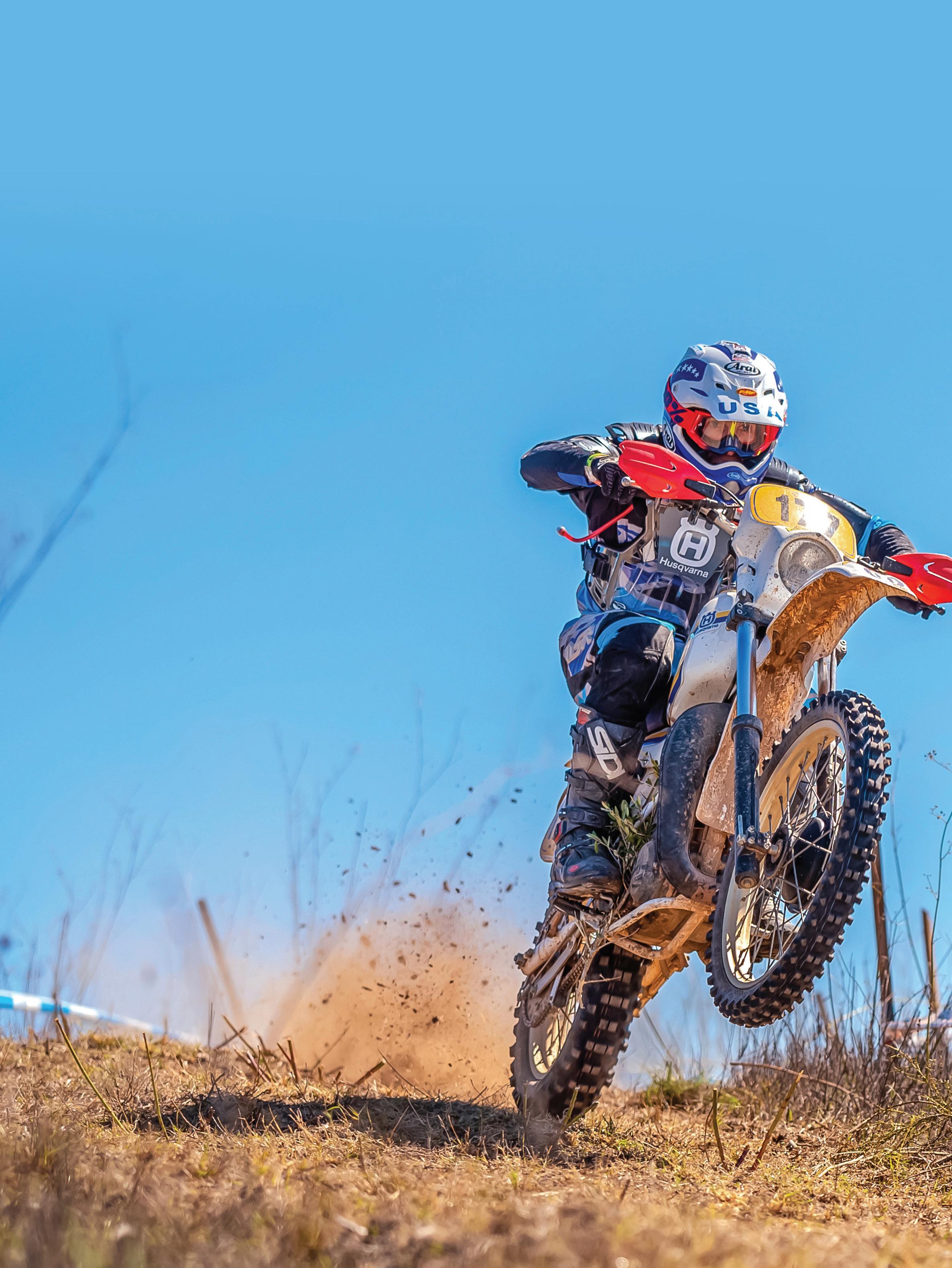
day competition.

“It’s hard to articulate the feeling of having a great result as the only American rider,” Hoess said, “but to also feel supported by the other riders there and by those back home. Even if I won the next 10 events, this one couldn’t be topped.”
Hoess participated in his first ISDE in 1984 — his first gold coming a year later. Hoess said he was drawn to the newly formed vintage
Spread: Fred Hoess tearing up Portuguese soil on his vintage Husky. Left: Hoess (left) and German rider Stefan Hau (right) displaying their FIM EVT gold medals.competition in 2016 as it presented him a chance to compete on the same model bike — a 1986 Husqvarna WR250 — that he claimed his gold on in ’85.

“I just thought this would be phenomenal to be in Spain and to ride the same motorcycle I rode 31 years ago in Spain,” Hoess said. “I thought that would just be magical, and it was.”
Six years later the vintage scene delivered another unforgettable moment for the 56-year-old rider, as he finished atop the overall standings.

Despite being the only rider representing the United States — a position Hoess described as both awesome and daunting — Hoess said the vintage community made him feel anything but lonely.
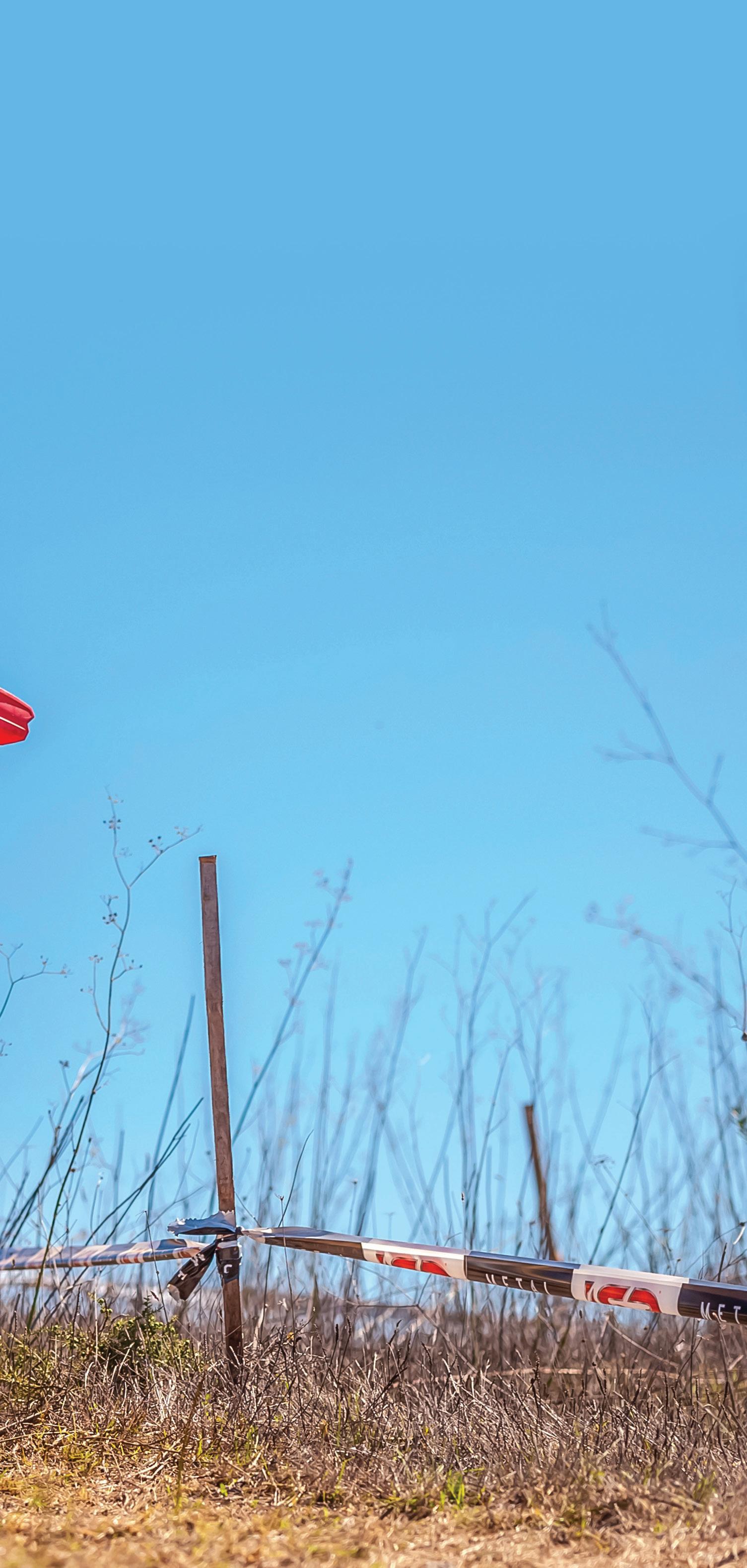
“It’s the experience you are going for,” Hoess said. “You can race with these guys now and we can talk after the event. Even if you didn’t win racing-wise, you won with the experience. That’s what makes vintage racing cool.”

“I just thought this would be phenomenal to be in Spain and to ride the same motorcycle I rode 31 years ago in Spain. I thought that would just be magical, and it was.”
FRED HOESS
bessie Stringfield
The AMA Bessie Stringfield Award is bestowed by the AMA Board of Directors upon an individual — or in this case individuals — who has been instrumental in bringing emerging markets into the world of motorcycling.


Brian Schaffran and Molly Vaughan have done just that by helping local schoolkids increase both their confidence and knowledge by revitalizing an old classic.
“We’re essentially bringing shop class back,” Schaffran said. “It used to exist in all the schools until recently, except instead of doing lawnmowers and birdhouses, we’re doing motorcycles, so that’s the hook.”
The husband-and-wife duo are five years into a program they call Motogo, a nonprofit 501(c)(3) that
serves as the educational wing of their Skidmark Garage — a community garage where members pay a fee to have access to tools, equipment and a workshop bay — that is designed to teach middle school and high school students to solve problems through working on motorcycles.
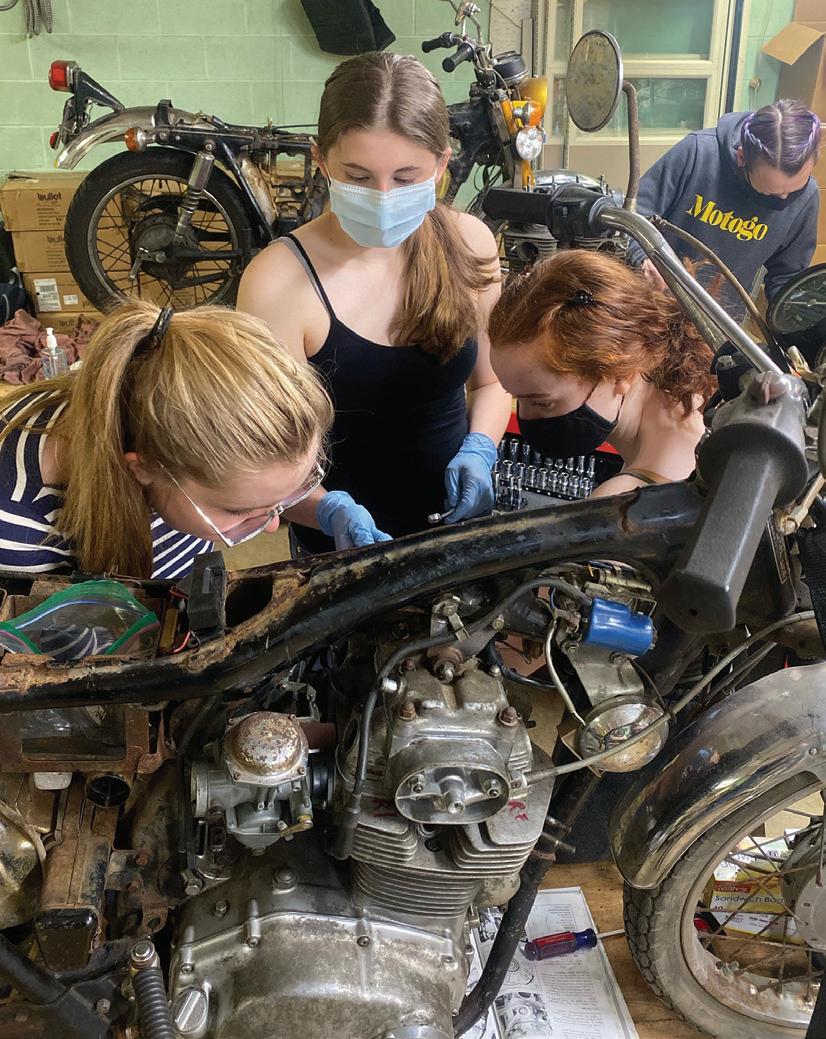
“Our mission is really to redefine failure,” Vaughan said. “People often think failure is a steppingstone to success, but we’re trying to teach that sometimes failure is the success.”
Working with more than a dozen schools in the Cleveland area and built on the pillars of working with your hands, self-confidence, authenticity, equity and community, Motogo offers schoolkids the chance to rebuild 1970s Honda CB350
Dud Perkins Lifetime Achievement
While it was her singing voice that made the late Loretta Lynn famous, it was her charm and welcoming nature that endeared her to not only her fans, but to the motocross community. It is that unlikely impact and relationship with our sport that posthumously earned Lynn the AMA Dud Perkins Lifetime Achievement Award.
For the last four decades, Lynn’s Hurricane Mills ranch has hosted the largest amateur motocross event in the world. Impacting approximately 60,000 riders who have participated in the event over the years, the AMA Amateur National Motocross Championship at Loretta Lynn Ranch
has forever changed the amateur motocross landscape.
“The event has grown because of Loretta, and the facility is unparalleled,” MX Sports Director Tim Cotter said. “Not many people allow you to come put a motorbike track in their front yard, but she [and late husband Mooney Lynn] did.”
Lynn, who passed away Oct. 4, 2022, at age 90, was named the AMA Dud Perkins Lifetime Achievement Award recipient by the AMA Board of Directors. The honor, which comes a little over a year after Lynn was inducted into the AMA Motorcycle Hall of Fame, acknowledges the highest level of service to the AMA.
And Lynn’s service to the motorcycling community is evident in how it’s changed amateur motocross for those involved.
“[The event] is the glue that holds amateur racing — amateur motocross, in particular — together,” Cotter said. “People have confidence that when they go there, they’re going to be treated fairly. They’re going to have a safe environment. It’s a family-oriented (event), there’s something for everyone there.”
It was Lynn’s talent in the music industry that helped her rise from a childhood dominated by poverty to become a country music icon. Lynn was inducted into the Country Music
engines in one program and the entire motorcycle in another, with the objective of sparking a newfound confidence in each student.
In terms of being honored with the award, Schaffran and Vaughan are very grateful but also quite aware of what it represents.
“It’s exciting to be acknowledged and thought of as important enough in our industry to get an award,” Schaffran said. “I am super thrilled that what we are doing is perceived to be making a good difference.”
“I feel really lucky to be representing nearly a thousand kids who have gone through the Motogo program in the last five years,” Vaughan said. “While it’s totally an honor to get this award, I recognize it really isn’t about me, it isn’t about Brian. It’s a real gift that the AMA recognizes the value of bringing shop class back for kids. I’m super grateful this motorcycle riding community understands the value of learning to work with your hands.”
—Keaton MaisanoHall of Fame in 1988.

Despite not growing up on her music, generations of motocross riders have heard “Coal Miner’s Daughter” ringing out through the ranch’s PA system at 7 a.m. every day as they prepared to pursue their dreams. Since the race’s inception, nearly every AMA Pro Supercross and Motocross champion — including Hall of Famers Jeremy McGrath and Ricky Carmichael — has navigated the ranch’s track.
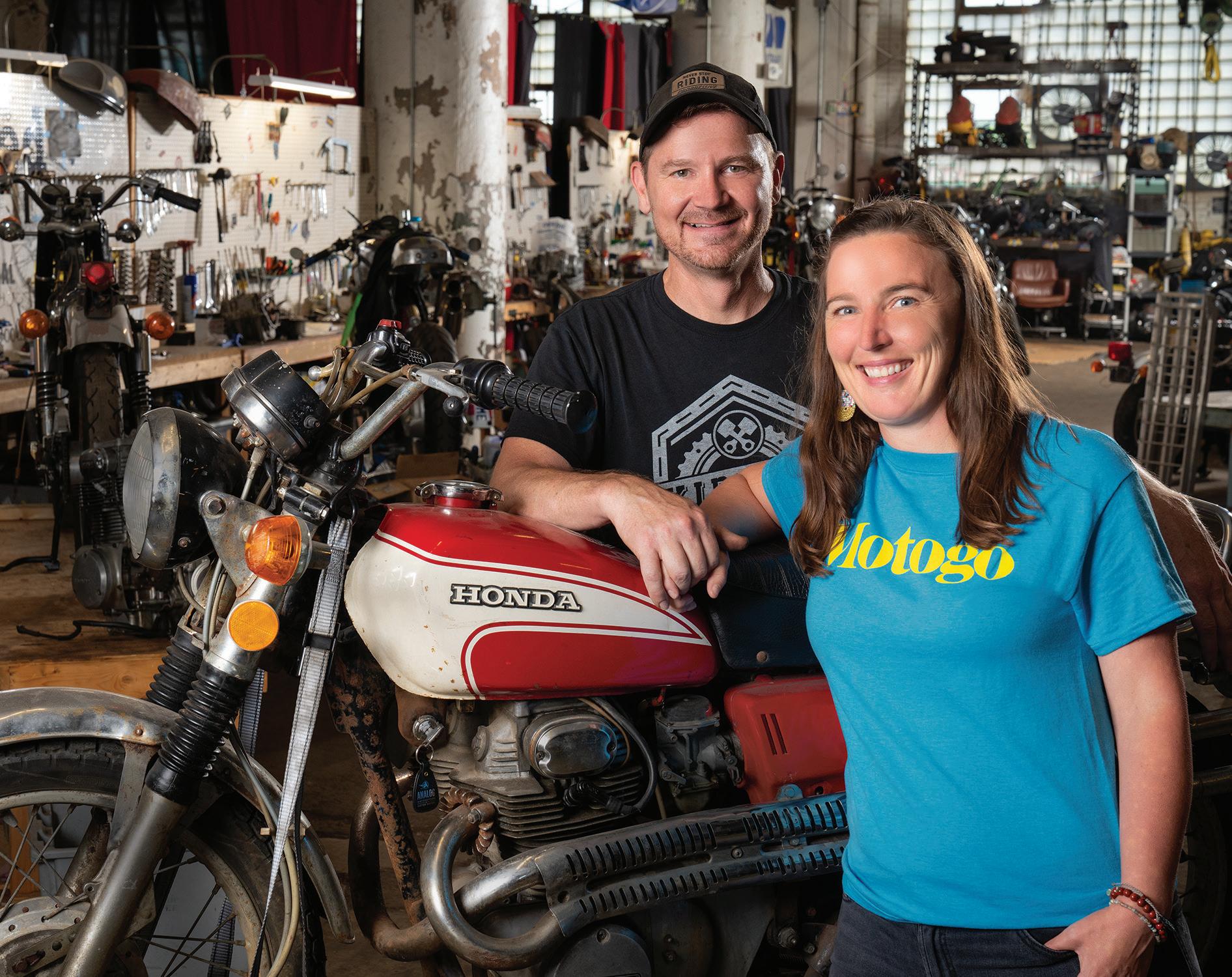
The AMA Amateur National Motocross Championship at Loretta Lynn Ranch will have its 42nd running at the end of July and early August.
Keaton Maisano
Above: Brian Schaffran and Molly Vaughan of Motogo posing in their Skidmark Garage. Right: The late Loretta Lynn, who was inducted into both the AMA Motorcycle Hall of Fame and the Country Music Hall of Fame. GARY YASAKIKAWASAKI
BY MITCH BOEHM PHOTOS :KEVIN WING, NORM BIGELOWThe discovery had to hurt. Or at least been depressing and frustrating both professionally and personally, especially in Japan, where a modern, Bushido-derived code of honor lives on in business and culture.
It came very likely by way of an urgent phone call from the grounds of the Tokyo Motor Show to Kawasaki engineer and development team leader Sam Tanegashima late in the morning of October 26, 1968 — and the news was not good.
Kawasaki competitor Honda, Tanegashima was told, had just dropped a bombshell on the Show floor — on all of motorcycling, really — with the debut of its advanced, mass-production-spec


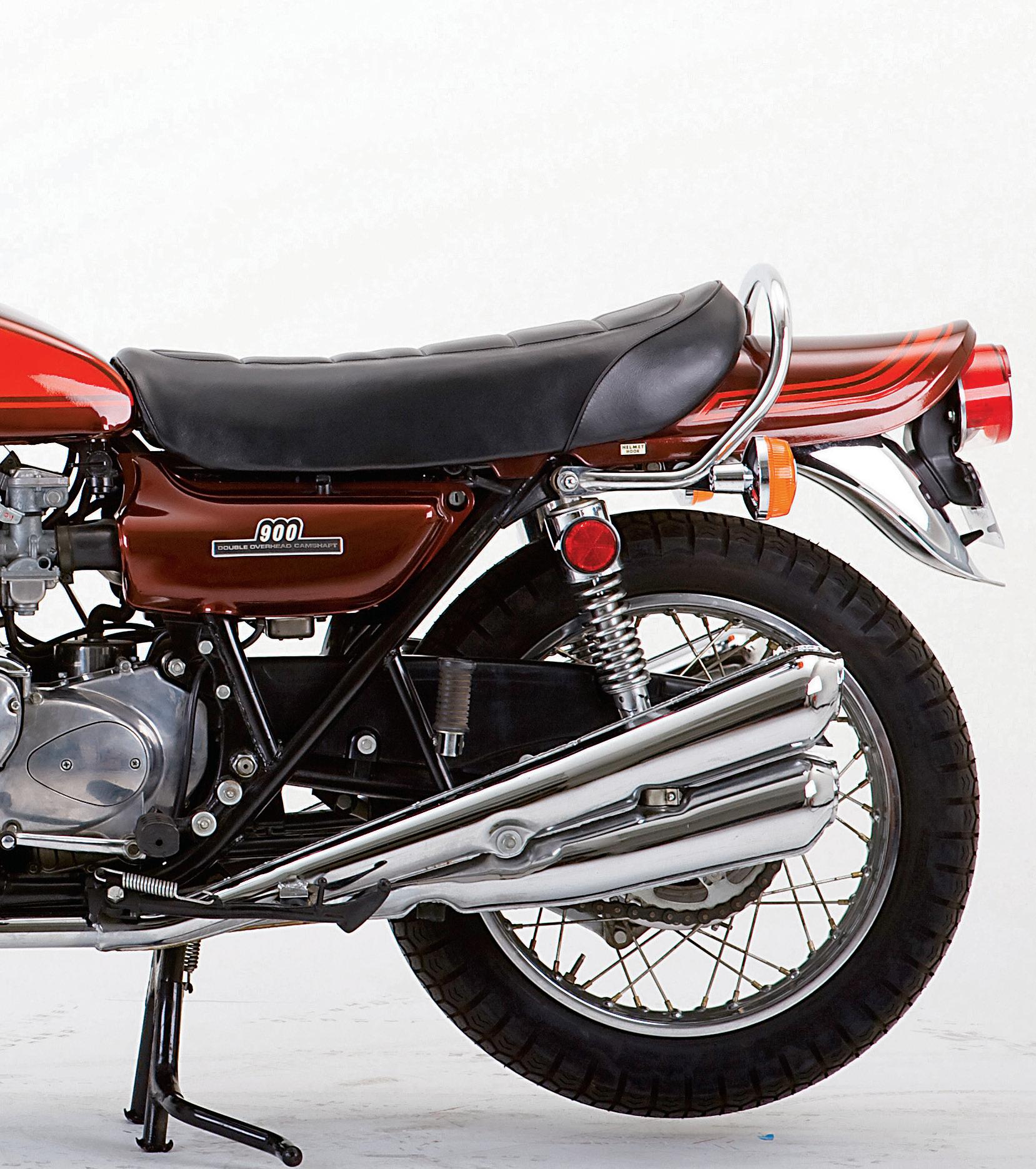
Five decades after its debut, the world’s first Superbike remains “Every inch a King”
CB750. The big 750 Four would usher in an entirely new era in the motorcycle world during the coming years, but it was the new Honda’s devastating short-term effect on Tanegashima’s development team and on Kawasaki itself that was most concerning.
The reason was easy enough to understand, because at that very moment Kawasaki was about to green light full-scale development of production tooling for its own inlinefour 750-class motorcycle, code named N600, which was to debut a year later at the 1969 Tokyo Motor Show as a 1970-spec model.
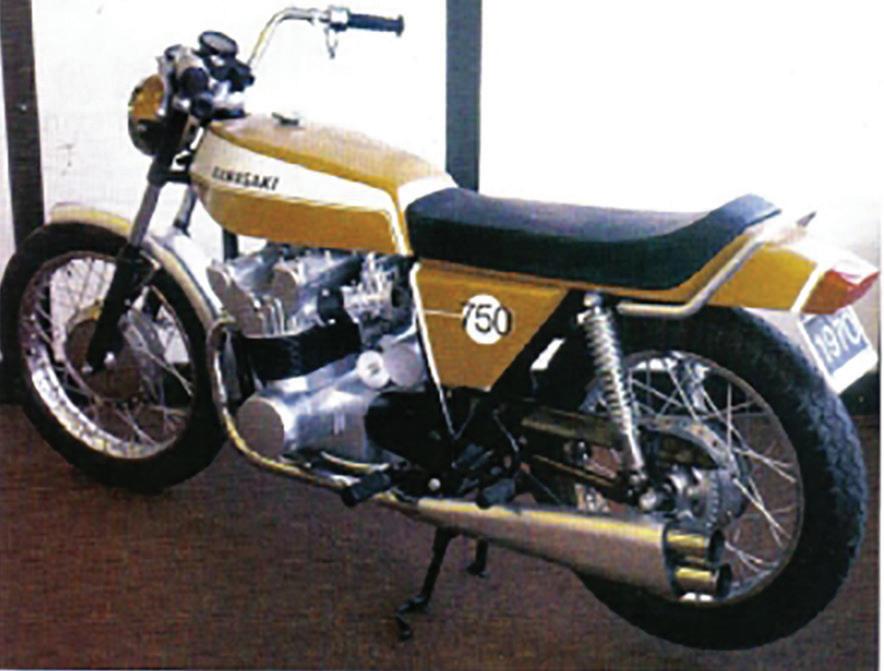
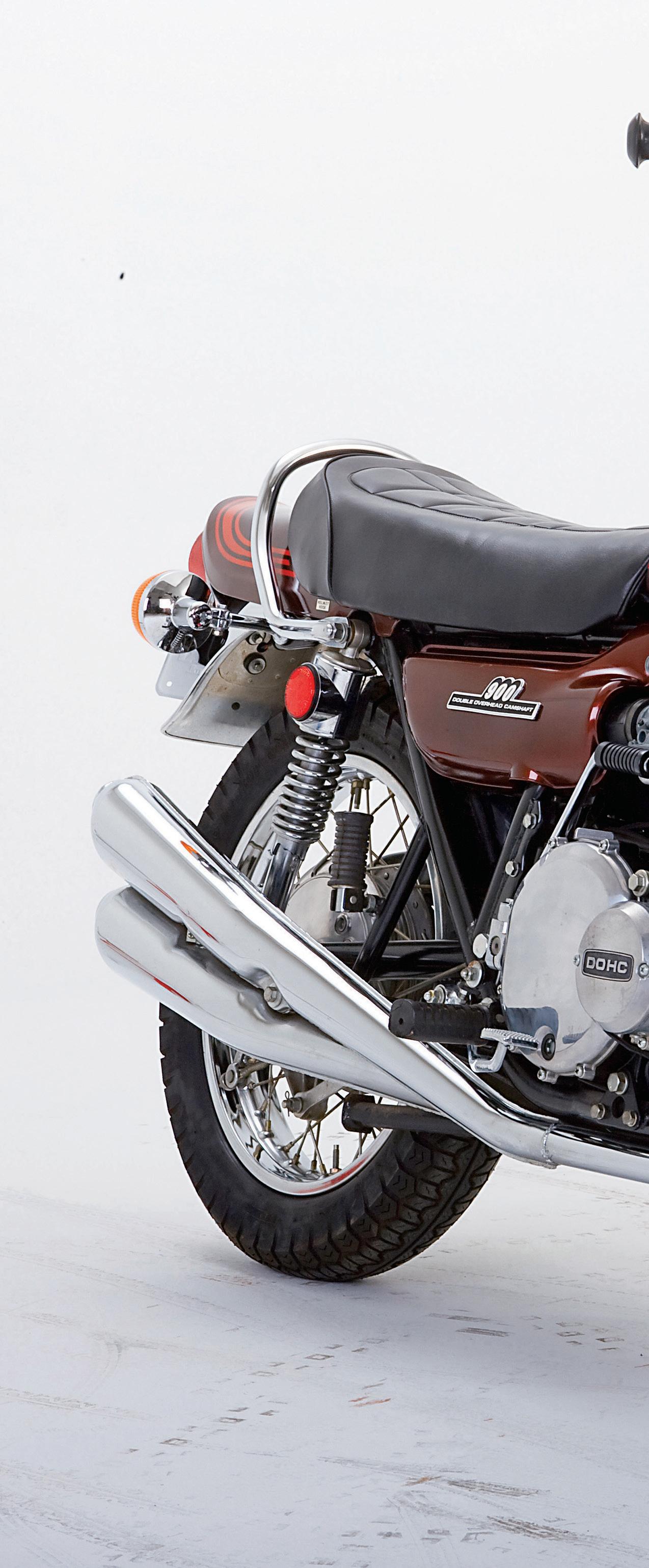
Kawasaki’s N600 was to be
after this new Honda would surely be seen as copycatting even if the bike was functionally as good. And if it wasn’t? Well, that’d be a seppukustyle death sentence for the bike sales-wise, and certainly a loss of face for the company.
And just like that, the N600 project imploded.
FROM 750 TO 903
We can only guess about the R&D meetings and internal discussions that occurred in the wake of the CB750’s launch regarding the next chapter of Kawasaki’s big-bore fourstroke plan — which would end with the glorious debut of the legendary
Few images in motorcycling’s vast history conjure as many mental goosebumps as a first-year Z1 in its root beer ’n orange livery. Left: Kawasaki’s 750cc N600 prototype, just before it was binned due to Honda’s shocking release of its CB750 in late 1968 — and Kawasaki’s desire to build a “King of motorcycles” in the new Honda’s wake.
groundbreaking, a street machine powered by a twin-cam (not singlecam, as with the CB750) four-stroke four wrapped in contemporary bodywork, and a bike that would help the company break free from the two-stroke cocoon it’d worked from previously. Kawasaki’s fast-butrough-edged two-stroke H1 of 1969, which debuted alongside the CB750 in Tokyo, was in ways impressive, but up against what looked like nothing less than the all-new four-stroke flagship streetbike from Honda; there was really no comparison. And Tanegashima knew it.
The news was devastating to Kawasaki, which understood all too well that releasing its own 750 a year
903cc Z1 in late 1972 on that same Tokyo Show floor. There had to be consternation, and certainly some hard questions were asked. But it’s simplistic to blame the new-generation Z1 completely on Honda’s big move.
As we know from the N600 project, and from Kawasaki’s purchase of competitor Meguro in the early 1960s (and sales of its Meguro-derived W1 and W2 models of the middle and later 1960s), Kawasaki was already moving toward four strokes, and bigger ones. It wasn’t hard to see that its vibey, loud and smokey two-strokes, as fast and interesting as they were, were not the future, especially in the increasingly luxury-
KAWASAKI WAS ALREADY MOVING TOWARD FOUR STROKES, AND BIGGER ONES. IT WASN’T HARD TO SEE THAT ITS VIBEY, LOUD AND SMOKEY TWO-STROKES, AS FAST AND INTERESTING AS THEY WERE, WERE NOT THE FUTURE.
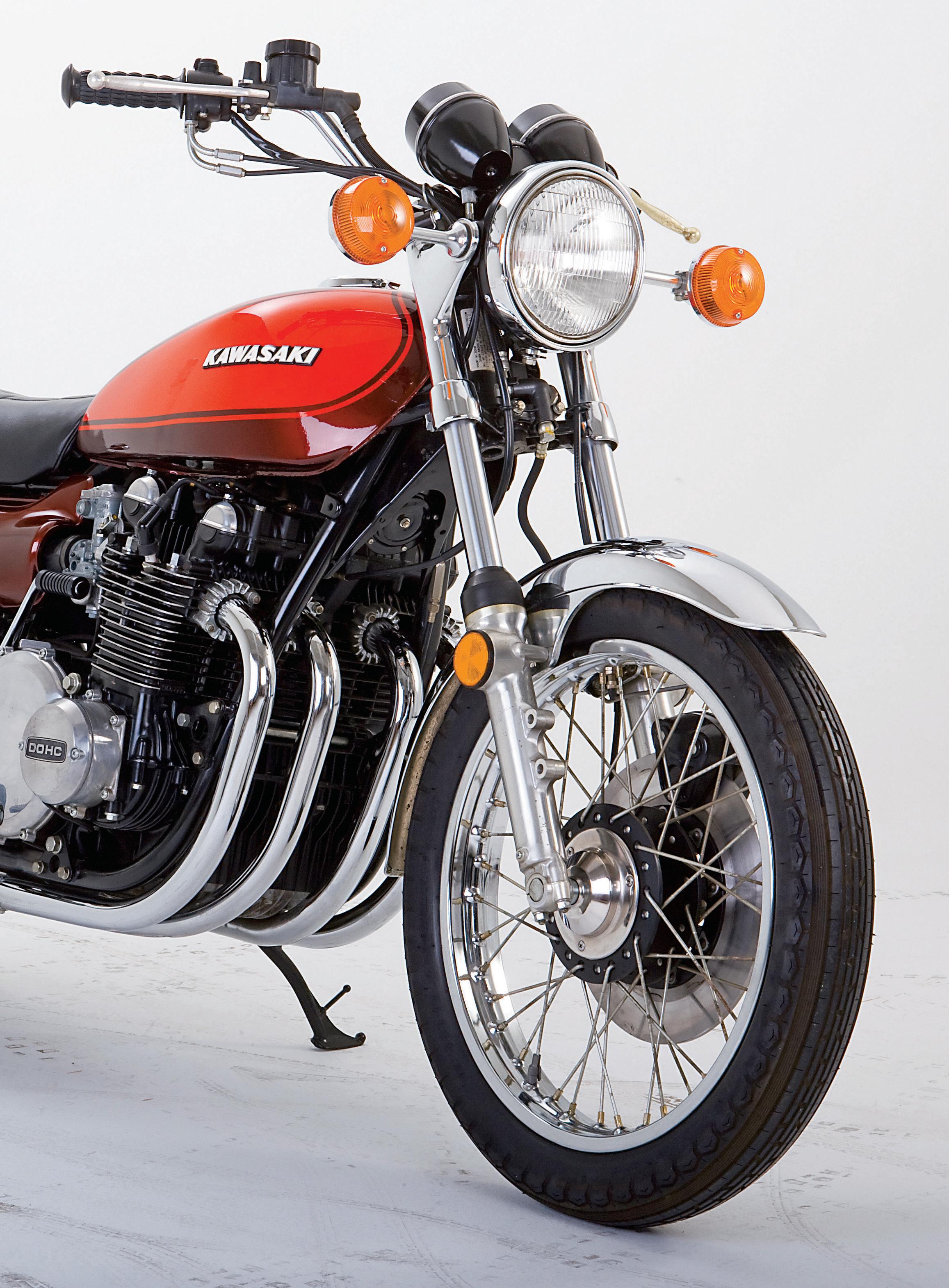
and emissions-conscious U.S. It was a point Honda was making quite effectively by the latter 1960s with its quiet and friendly four-strokes, not to mention its “nicest people” campaign.
Still, the CB750’s launch very definitely rallied the troops in the Kawasaki camp, and gave team members a renewed sense of purpose as they talked and planned and set into motion a whole new round of concepts, sketches, clay models and running prototypes,
motorcycles, like the A7, H1 and H2. [The company] was not sure if [it was] selling engine/horsepower, or motorcycle. From the very beginning of Z1 development, we made sure to develop one piece of motorcycle, not independent engine or chassis.”
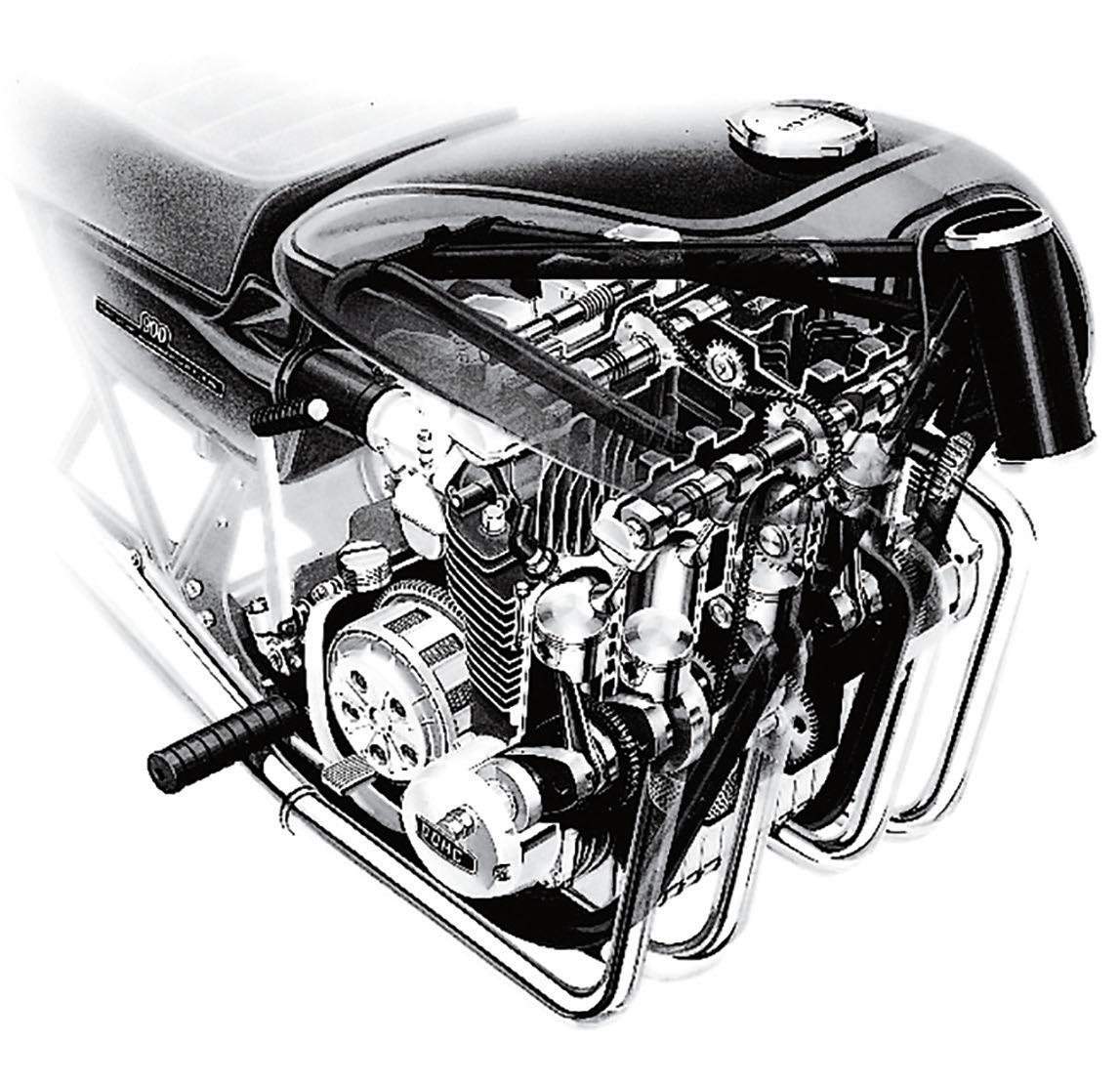
Tanegashima also mentioned the Japanese penchant for a “me too” approach. “Our people tend to like to do the same thing as [their] neighbor. In product development, this tendency leads to [copying] some
from the U.S. asked for a 4-cylinder 4-stroke machine, [R&D Manager] Mr. Hamawaki had pushed for a talented engineer from Kawasaki’s aircraft division to be brought in – a Mr. Otsuki, I believe. After all three engines blew up, “HP” (Otsuki’s nickname) began asking for a larger, better engine; hence the 903.”
Z1 DEVELOPMENT
all of which would culminate in the release of something bigger, faster and even more sophisticated than the new Honda — a true “King of Motorcycles,” as one manager put it. It would take the better part of four long years to get it done, but Tanegashima’s guys were determined to get it right.
Aside from simply moving from two-strokes to four, Kawasaki was also in the midst of changing its approach to building motorcycles. As Tanegashima said in Micky Hesse’s excellent book Z1 Kawasaki, “One motto we had for developing the Z1 was to create one piece of motorcycle. Before the Z1, Kawasaki had developed several very fast
competitors or leaders. However, [our] motto in developing the Z1 was to make it completely different from Honda’s CB750. This [is] a very rare case in Japanese society.”
Other considerations made pulling the plug on the 750 project easier, as well. During development in ’67, the three slightly different prototype engines the engineers built were proving seriously fragile.
“The testing done in Japan at the [now defunct] Yatabe circuit with [U.S. racers] Walt Fulton and Art Bauman,” Kawasaki man — and the late — Don Graves told this author a decade ago, “proved that the engines they’d built were not dependable. When the original push
The question “Why build such a machine?” sounds almost humorously rhetorical with 50 years of hindsight, but in Cycle magazine’s road test in its November 1972 issue, Kawasaki General Manager T. Yamada answered it this way: “Lots of reasons.” Kawasaki, he said, wanted to build the “King Motorcycle,” a bike beside which, Cycle surmised, the finest motorcycles in the world would shrivel in comparison…a bike that would leave a hot and smoking scar across the face of the sport…and you just can’t do it, Yamada was saying, with a two-stroke engine. In the first place, he said, the King Motorcycle must have an engine that sounds right.
“No less important,” Yamada added, “is the way the engine looks. Who could imagine a King Motorcycle with an engine that looked like a twostroke engine looks, all crankcases and cooling fins? The King…has to have an engine that looks impressive. And only a big four-stroke is right.”
Still, a bit like the stillborn 750, the 903cc Z1 project had plenty of headaches along the way, and early in development was nothing at all like the refined and well-sorted production bike that debuted in late ’72 to such overwhelming accolades.
“It was actually pretty awful at first,” remembered Kawasaki man Bryon
“Who could imagine a King Motorcycle with an engine that looked like a twostroke engine looks, all crankcases and cooling fins? The King… has to have an engine that looks impressive. And only a big four-stroke is right.”
T. YAMADA
Running prototypes are rarely beautiful, and this Z1 test mule is no exception. But the shapes and basics are all there, and one wonders…did engineers and brass know the shocking impact their new open-classer would have on the world?
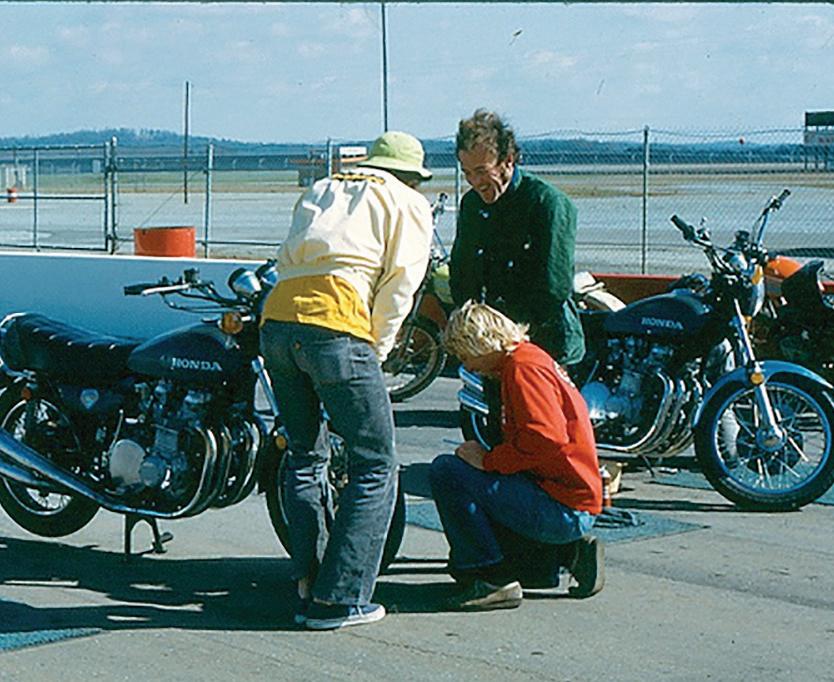
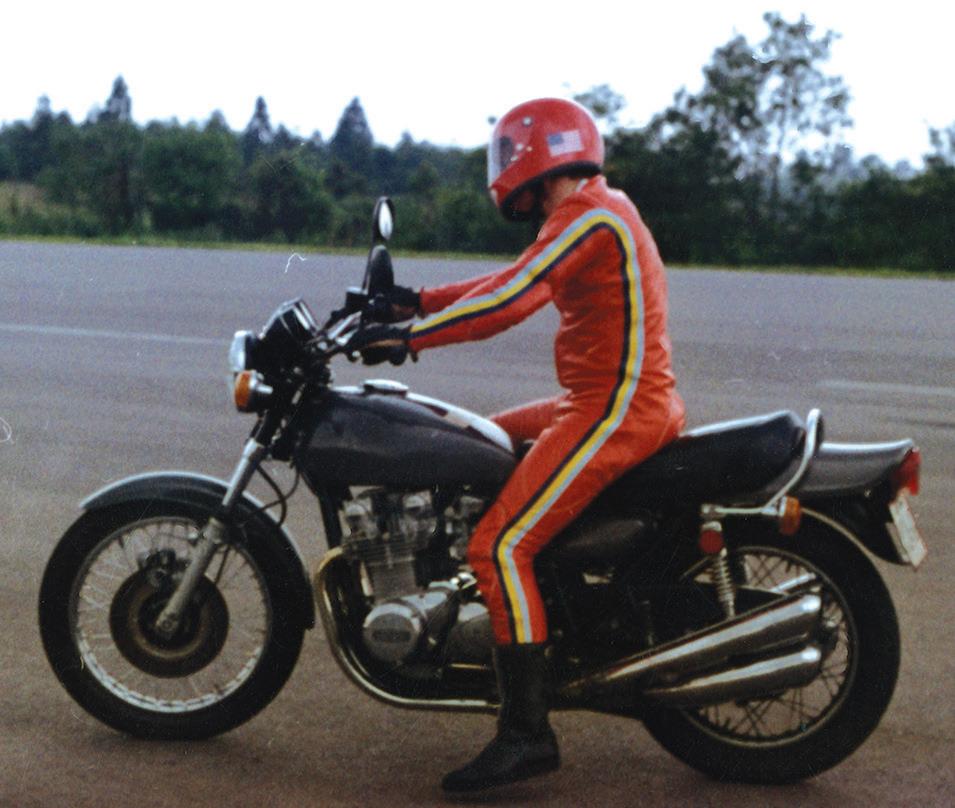
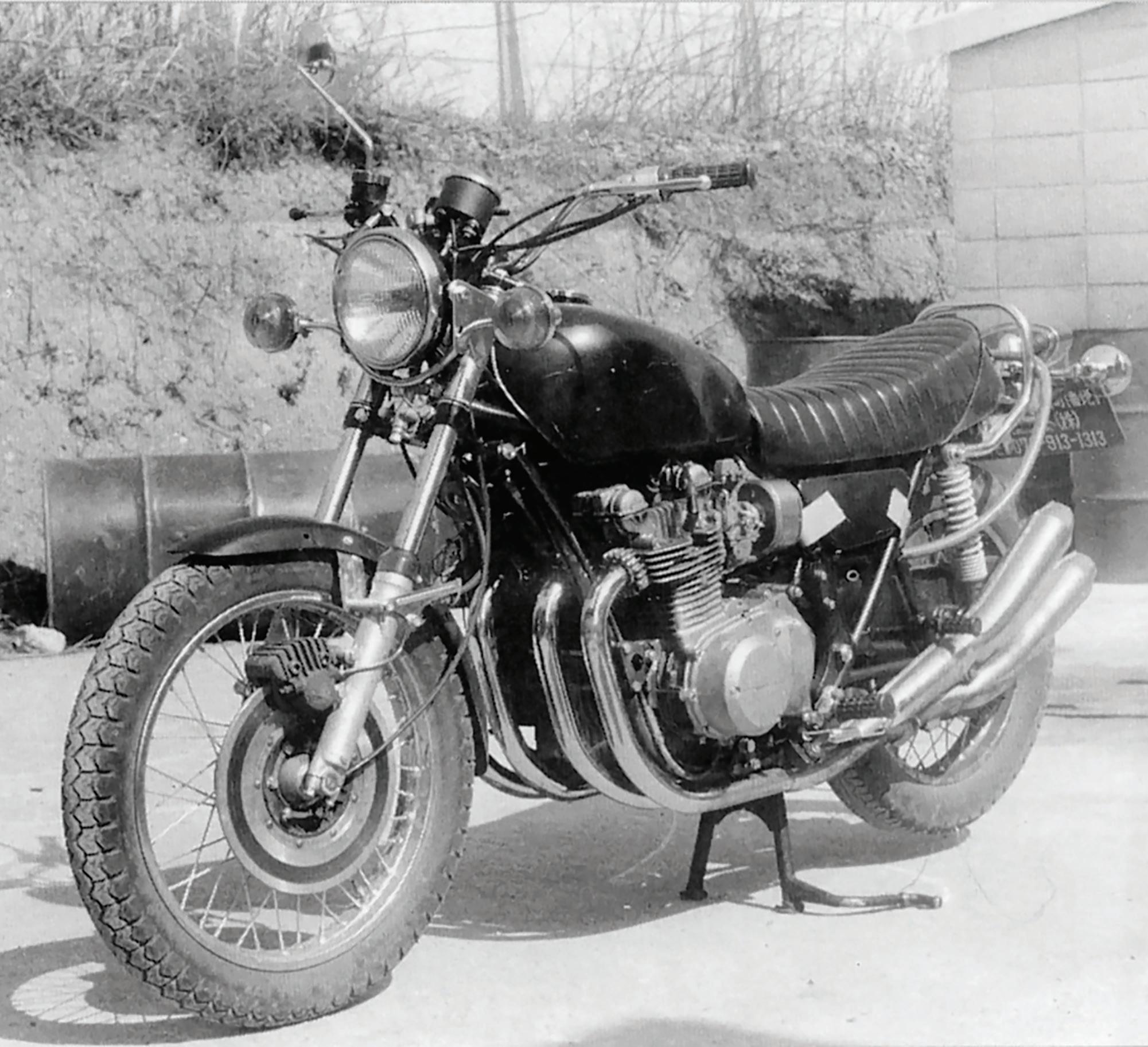
Farnsworth, who was recruited from Cycle in ’71 to become the senior U.S. test rider for Z1 development. “I was the first American,” he said, “and the only American to go over to Japan to test it. We’d scheduled time at the high-speed, bankedoval Yatabe test course, but it was booked when we arrived, so we did some testing in a big parking lot, with cones. That sucked, but at least we got to ride. The thing dragged its mufflers right away, and I could tell, even at those slower speeds, that the engine, chassis and suspension were in need of serious help. At that point I think they were still in an H1 frame of mind, where the chassis didn’t matter
AMA Motorcycle Hall of Famer
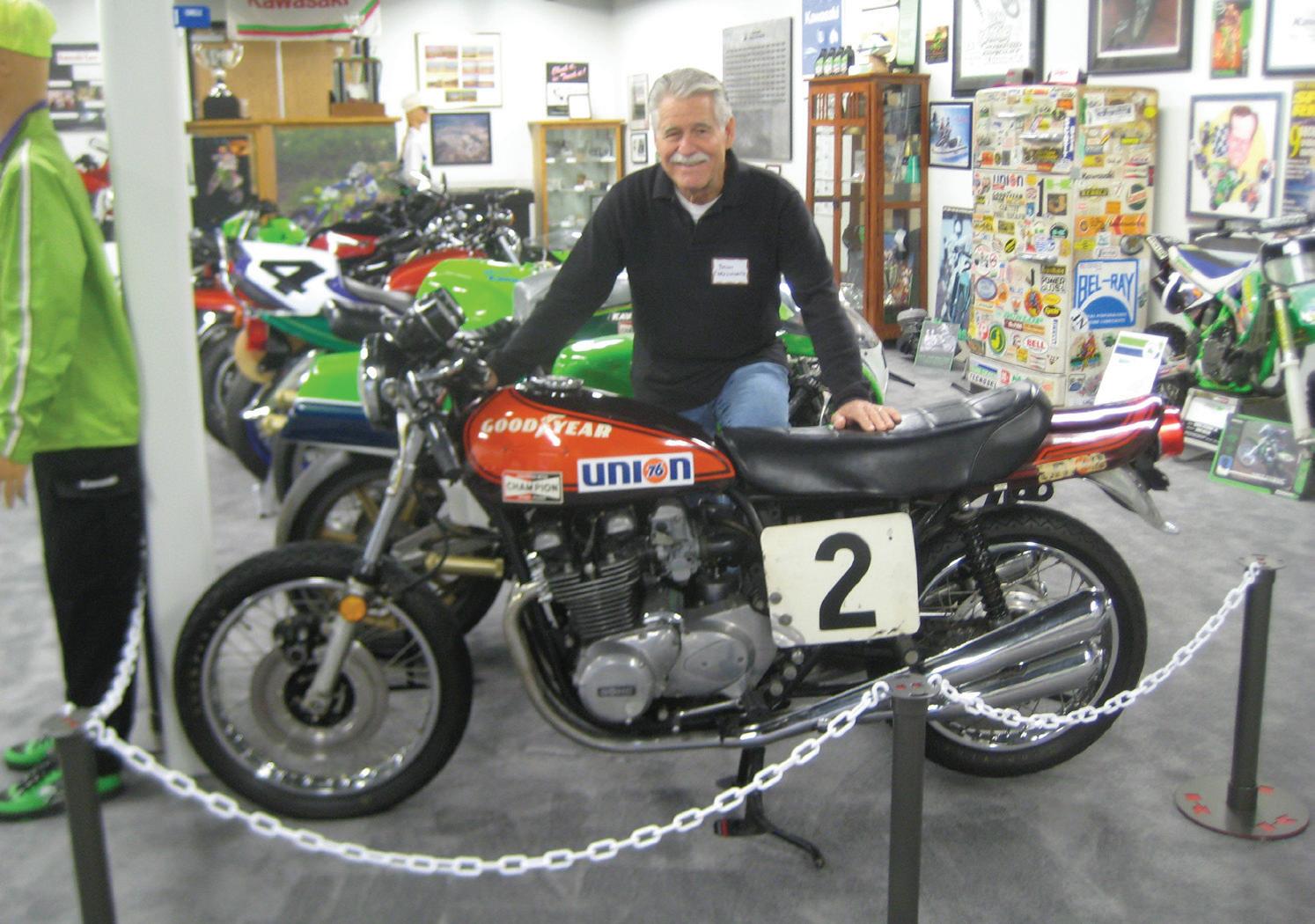
Gary Nixon, Paul Smart and Hurley Wilvert, all of whom flogged the bikes mercilessly at the racetrack and on the road. During one trip from Los Angeles to Daytona and back, the bikes had big Honda stickers on the tanks to keep public curiosity to a minimum. (The subterfuge didn’t

always work, with some humorous results, according to Farnsworth.)
Early on, Kawasaki was deeply concerned about the bike’s durability and reliability, and rightfully so. Problems there could not only scuttle the Z1 in the marketplace, but sink Kawasaki’s reputation, as well. Of course Farnsworth knew just where
much and it was all about straight-line speed. And with the Z1, you had this great big powerful and heavy engine sitting there, twisting everything into a knot. I told them it was a “rakuta,” which is “water buffalo” in Japanese!”
Farnsworth made several trips to Japan in those early days, one lasting nearly two months, and little by little the prototypes got better. “After the Yatabe experience,” he said, “I insisted we go to a real track, and we were able to get some time at the Tsukuba circuit. We made some progress there, and it helped once the updated prototypes got to the U.S. later in the development cycle.”
The team tested over several months in the U.S., from Southern California to Florida and several spots in between. Farnsworth gathered a host of riders to help out, including
“It was wild going into the Daytona banking at 140 mph; it looked like a wall as you approached it, and holding the throttle open and not backing off took some doing!”
BRYON FARNSWORTH
to go — Talladega Superspeedway. So in late 1972 the entire Kawasaki Z1–testing entourage descended on Talladega, which they’d rented for 30 days.
There the bikes were run at full throttle until they ran out of fuel — and then refilled and run again until empty. “Riders were going almost 140
mph,” Farnsworth remembered with a laugh. “The bikes would wiggle at speed, but only if you let off. If you had the balls and held it wide open, it was OK.”
Despite a few niggles, and that topspeed shimmy, the Z1 had become a pretty solid motorcycle during those many months of prototype testing. “I
think my input early on, when the Z1 was really rough, was a key factor in the model’s success,” said Farnsworth. “We really did try to make the bike bulletproof for American riders. I’m really proud of that.”
After all that testing on dynos, roads and racetracks, the only even slightly unseemly trait the Z1 demonstrated was an apparent appetite for rear tires and finaldrive chains, consuming the former in about 6,000 miles, the latter in roughly half that distance.
As pre-production bikes (those hand-built with mostly production parts) began to become available in mid 1972 for final performance and emissions testing before actual assembly-line production could begin, the Z1 team felt reasonably comfortable with their efforts. Farnsworth felt similarly and came up with an idea that would help launch the bike to the press and public in dramatic fashion.
“I suggested we go to Daytona and set all the world FIM and AMA 24-hour endurance records,” Farnsworth told this author.
“Thankfully, upper management agreed, and we put together a plan. We knew from all the highspeed testing at Talladega that the production Z1 would easily smash all the records at the time, as it would run 140 mph all day long. The record at the time for a 24-hour average was held by a Suzuki at just 90.1 mph, so we knew we could make some noise with this.”
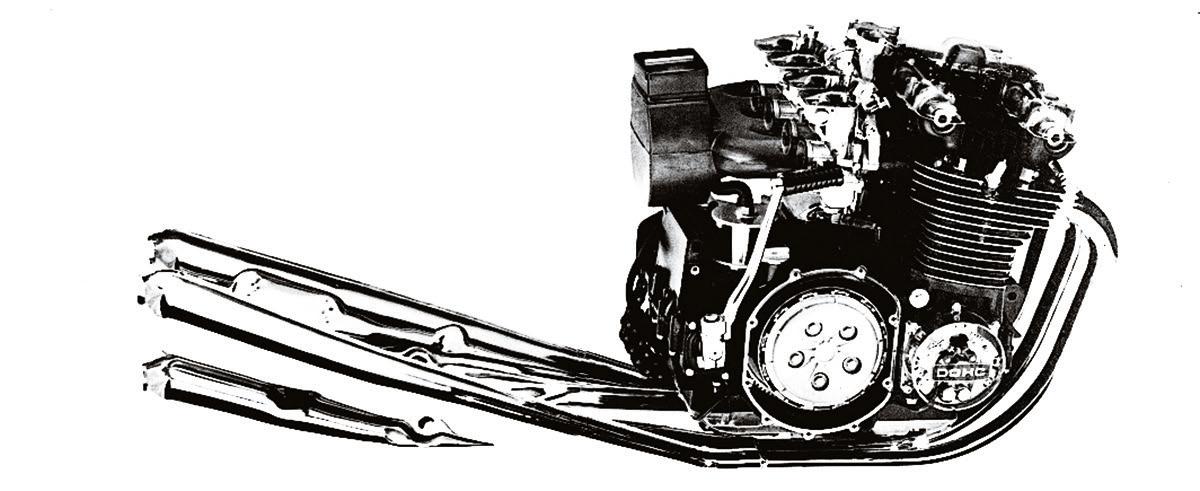
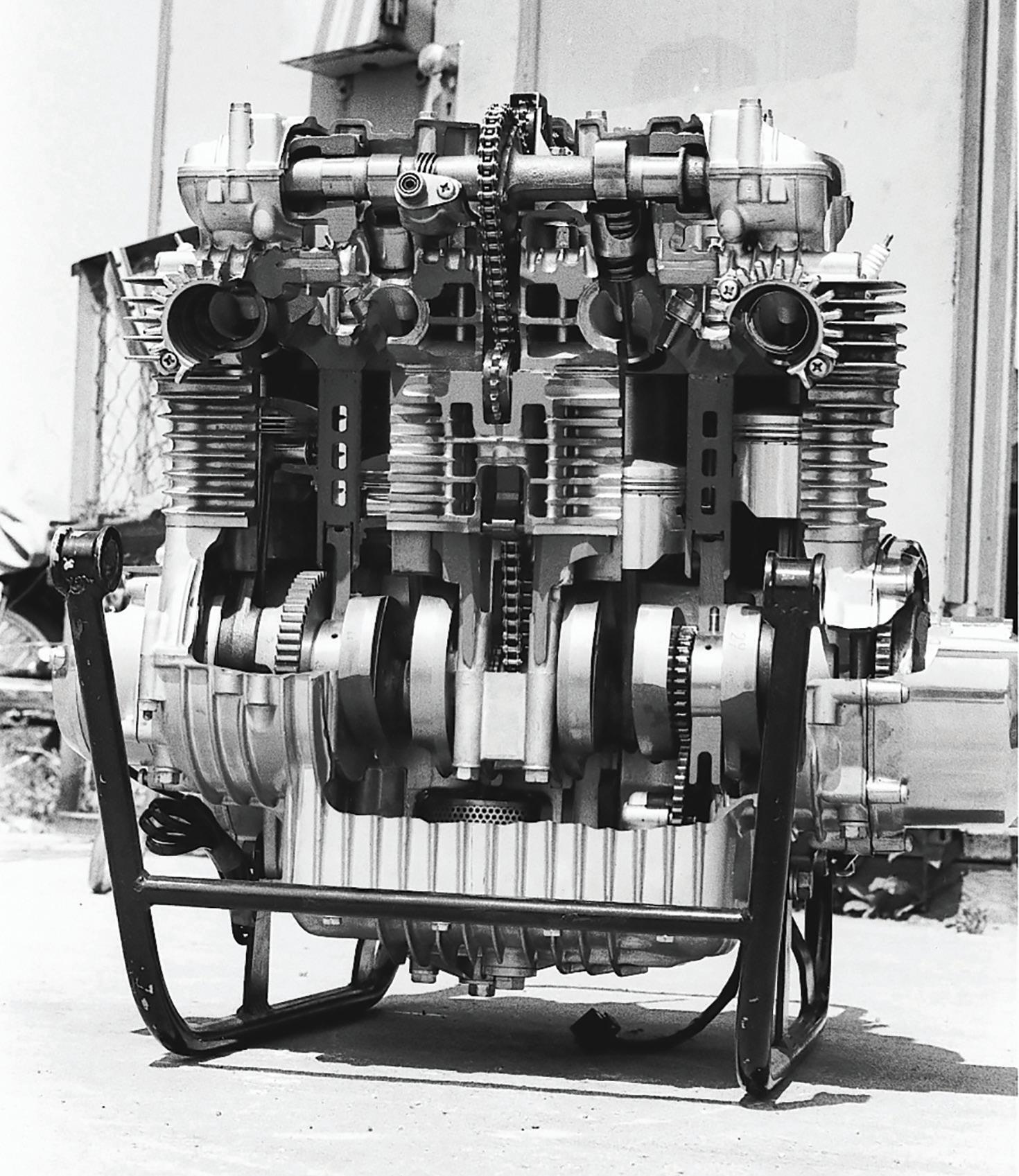
Farnsworth’s record-assault team, including Hall of Famers
Gary Nixon, Yvon DuHamel, Cycle magazine Editor Cook Neilson and others, arrived at the Speedway to see what the new Z1 could do. Turned out it could do a lot, slaughtering the Suzuki’s record by almost 20 mph with a 24-hour average of 109.64 mph for 2,631 miles. A special one-off Z1 tuned by Yoshimura and ridden by Duhamel set a new single-lap speed record
of 160.288 mph.
“It was a bit of a gamble,” Farnsworth remembered, “because a lot of things could have gone wrong. But it paid off, especially by using credible members of the media — who’d all write about it — and also current AMA racers to set the records. Folks could see the bike was crazy fast, but bulletproof, too. It was wild going into the Daytona banking at 140 mph; it looked like a wall as you approached it, and holding the throttle open and not backing off took some doing!”
Z1 MAKEUP
So, what was so special about this King of Motorcycles? From day one the Z1 was all about that engine — a beautifully sculpted, air-cooled inline-four with dual camshafts that displaced 903cc from square bore and stroke dimensions of 66mm x 66mm and produced (according to Kawasaki) 82 crankshaft horsepower, 15 or so more than Honda’s longerstroke, single-cam powerplant. As Cycle’s road test put it, “Horsepower flows…like water from an Artesian well. It simply never stops.” It did
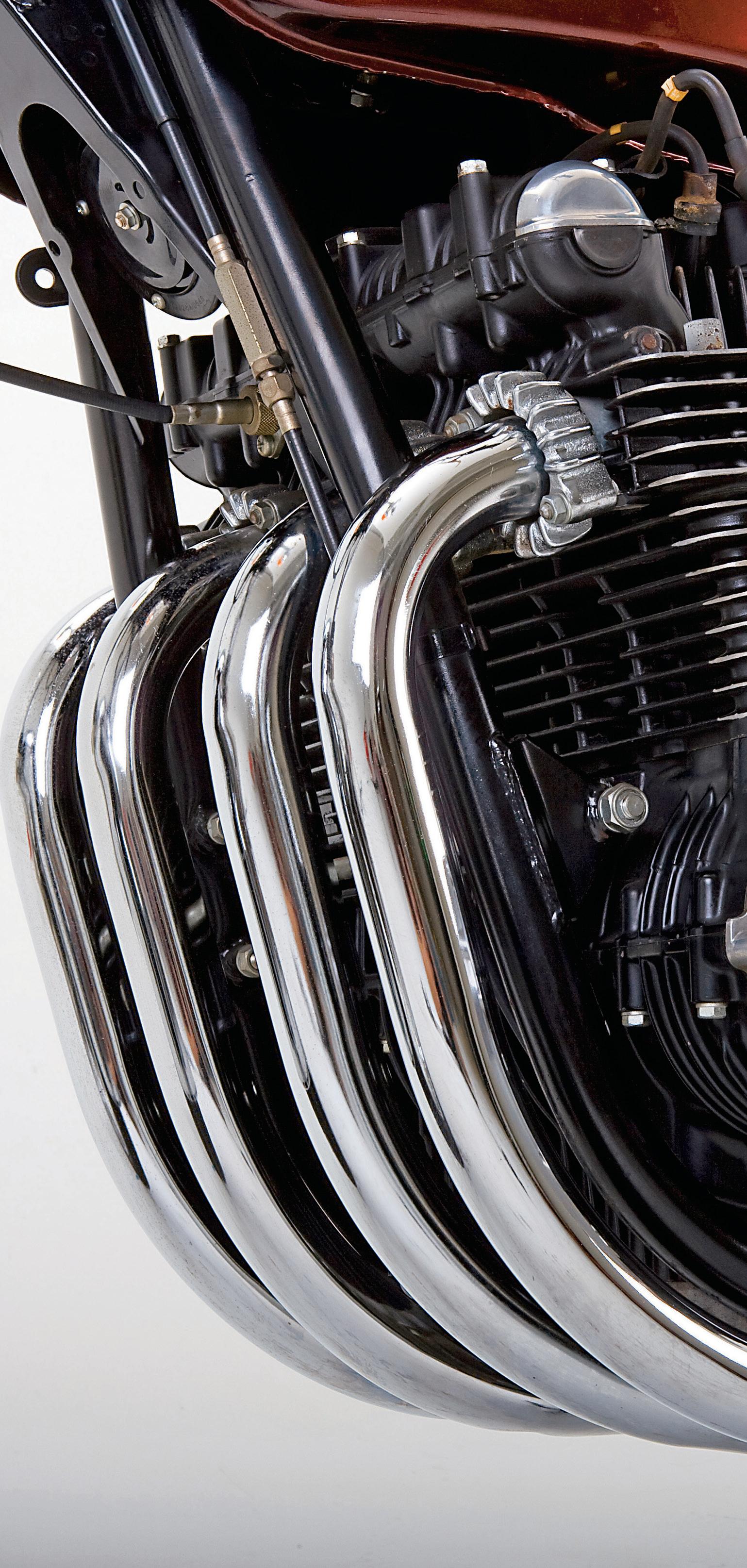
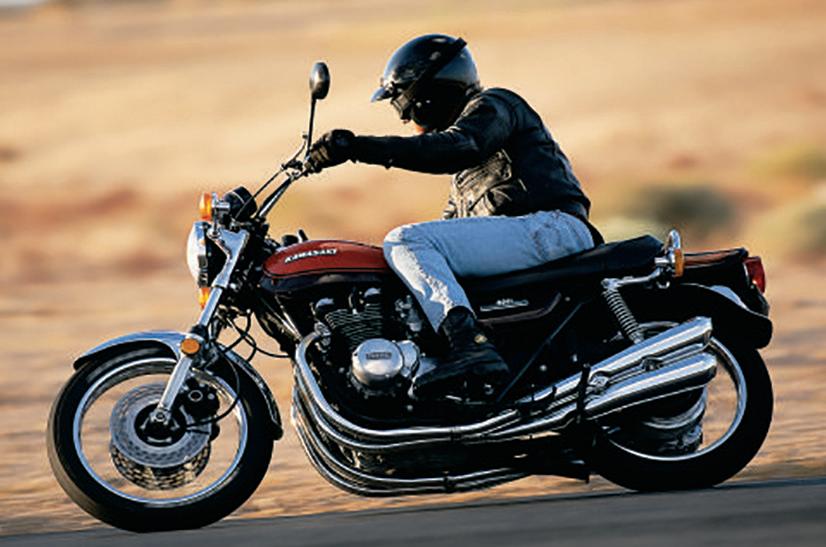

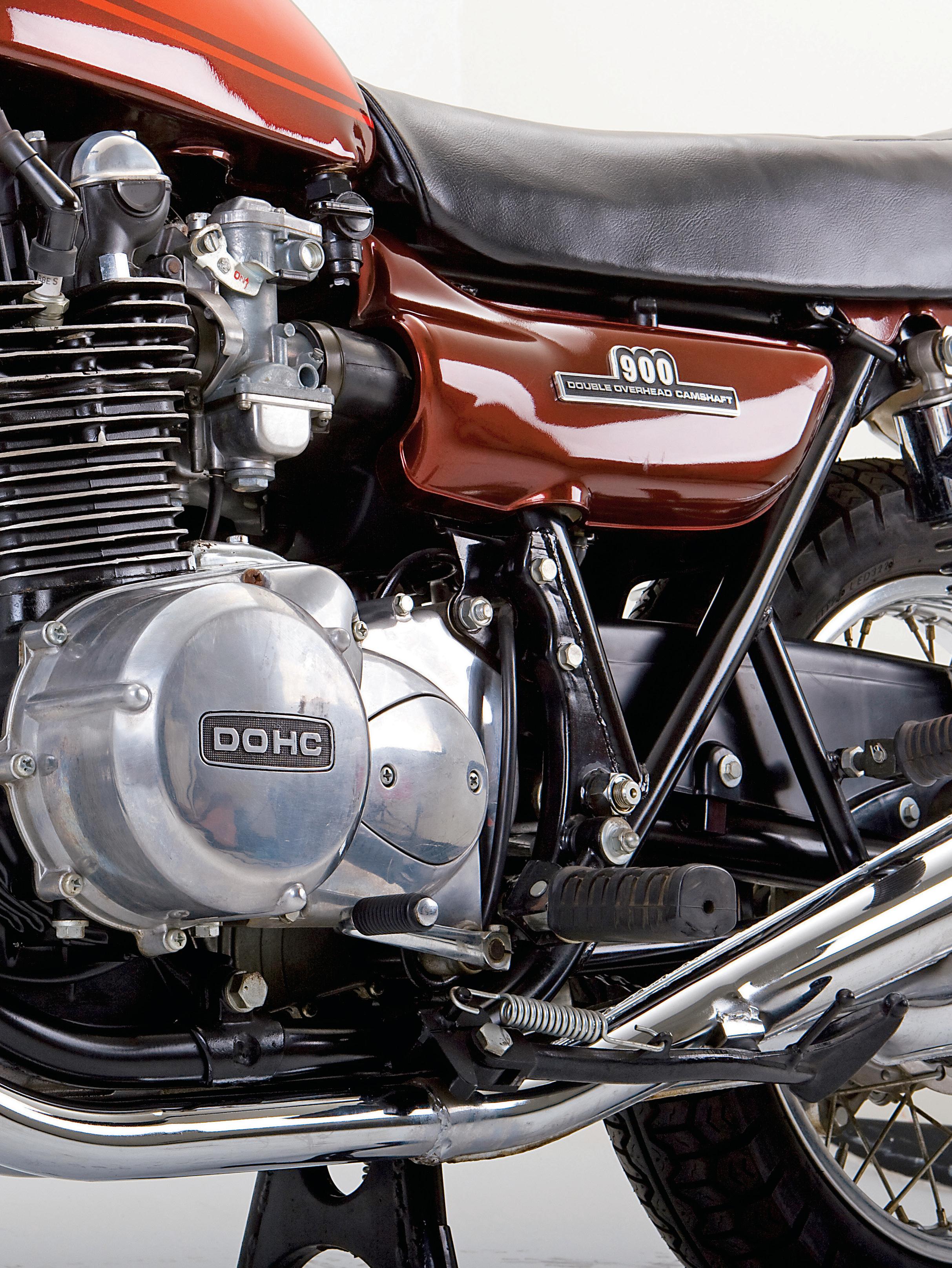
stop, of course, but by the time it did most street riders would be plenty happy about it.
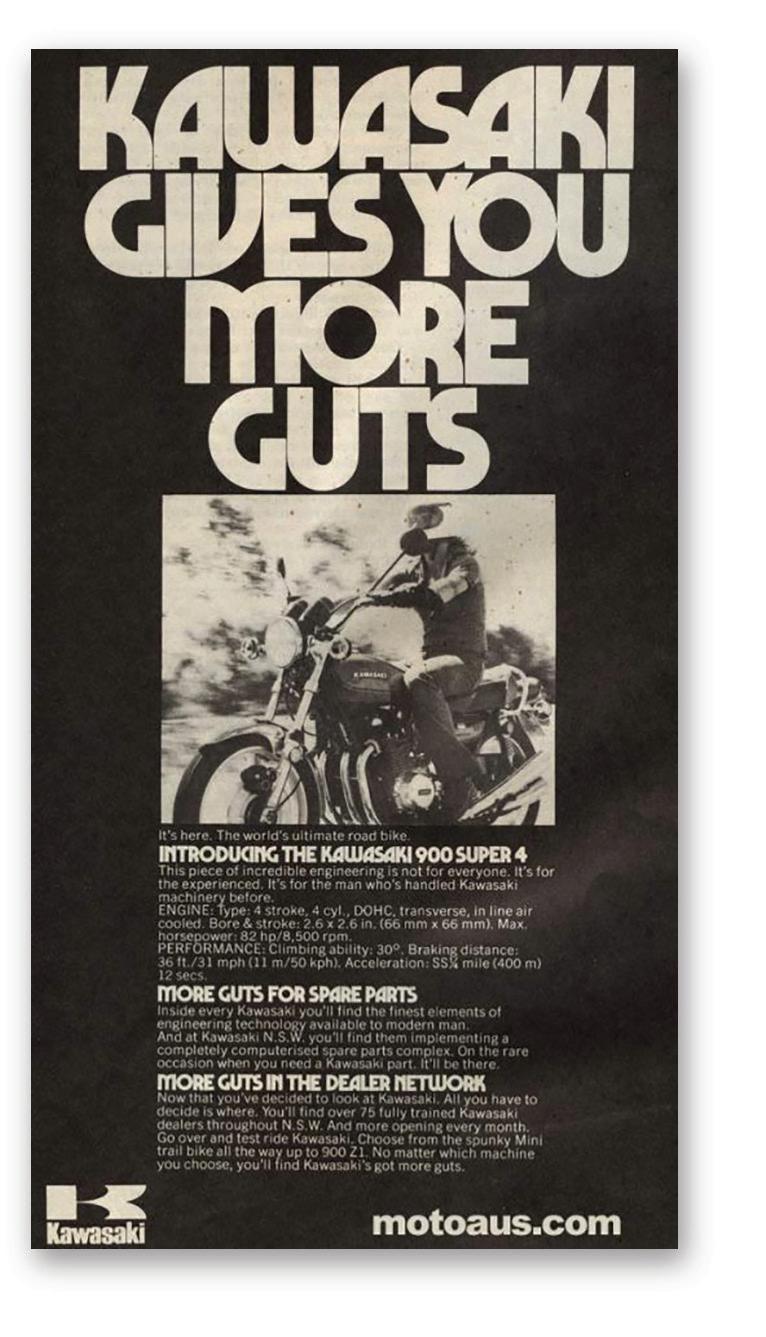

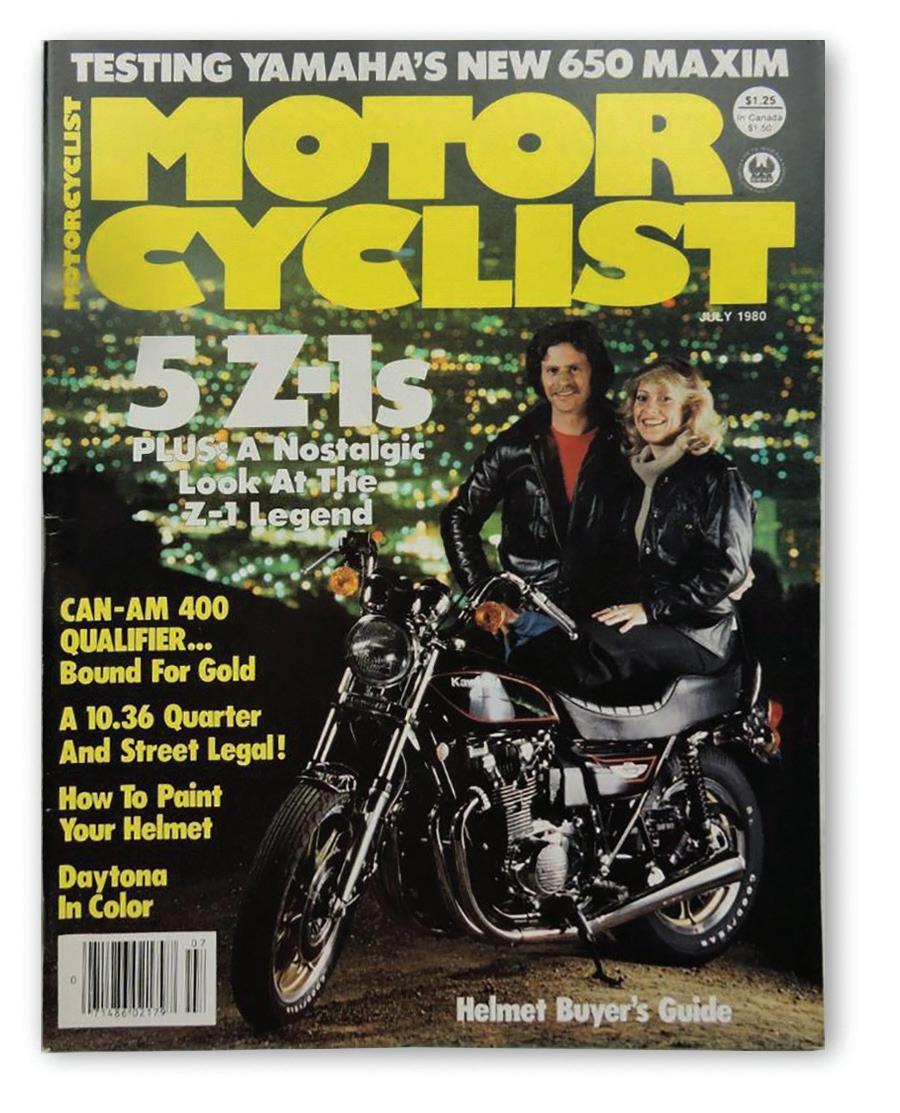
Below all that DOHC induction magic and smooth, midrange-focused power spun a nine-piece, pressedup roller-bearing crank with caged needle-rollers for each con rod to ride on, an overbuilt 5-speed transmission and a beefy wet, multi-plate clutch. This obvious strength belowdecks caused Cycle magazine to write, “The lower end looks like it came out of a Porsche Carrera,” and was backed up with proven performance and durability on the streets, racetracks and dragstrips of the world for many years to come.
Compared with the engine, the rest of the motorcycle — dual-downtube
steel frame, spoker wheels, a singledisc/drum brake setup, el cheapo shocks and skinny-flex fork tubes — was pretty conventional, though Kawasaki stylists did manage a bangup job with the bike’s aesthetics. From the teardrop fuel tank to the sporty, flip-up tail section to the fat-’n’-flared mufflers and everything in between (including that lovely, slim-waisted and wide-shouldered engine), the Z1 looked considerably curvier and sexier than the then-fiveyear-old Honda.
It’s often noted that Honda made it easier for the Z1 to shine from 1973 onward by not upgrading its world-changing CB750 until the late ’70s, and by the numbers that’s true enough. Some still say Honda was
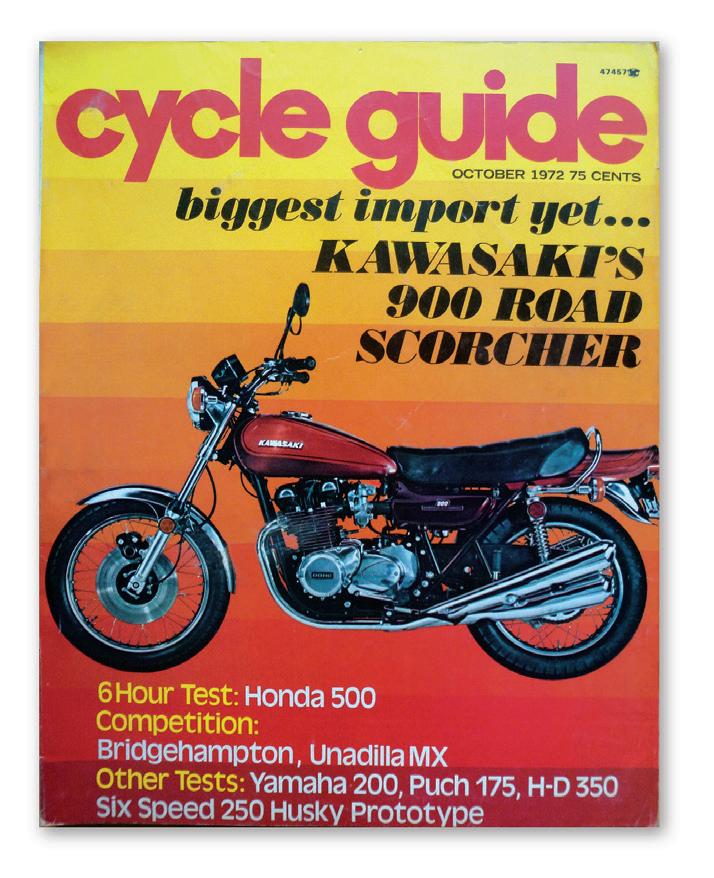
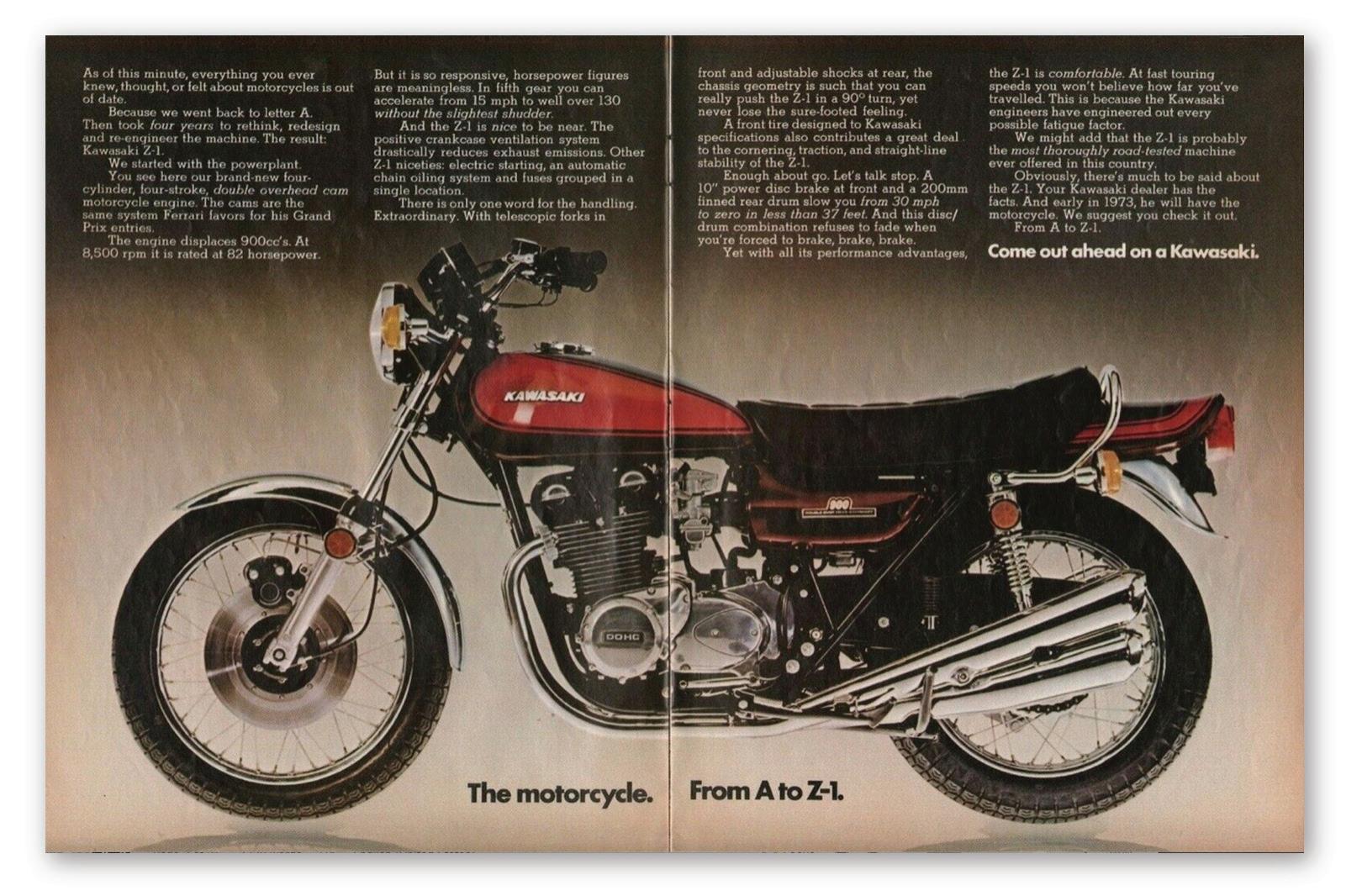
being lazy on the big streetbike front during those years, and maybe it was. But Honda was seriously busy in the early and middle 1970s, filling out its vast motorcycle lineup with a wide array of sensible machines to become the envy of every maker on earth. Remember Honda’s 1973 sales slogan From Mighty to Mini, Honda Has It All? You probably do, and it did. Oh, and the company was also developing its Civic automobile — and Clean Air Act-meeting CVCC technology — for U.S. and worldwide consumption, all of which resulted in the auto giant becoming an auto giant during the 1980s.
LAUNCH TIME
When released to dealers in early
’73, Z1s began immediately flying out of Kawasaki showrooms, with heavy advertising and hugely positive magazine reports helping keep the momentum — and dollars — flowing. Kawasaki reportedly wholesaled more than 80,000 examples in the first two years alone. Before Z1s first became available, Honda’s CB750 and Kawasaki’s own 500cc H1 had stolen much of the Big Streetbike thunder in America from HarleyDavidson and the British/Euro makers. And while the appearance of the 750cc H2 in late ’71 added to the two-stroke momentum Kawasaki had generated, the launch and appearance of the comfortable, refined, smooth, quiet and downright ass-kicking Z1 changed the
Spindly frames and pencil-thin fork tubes were easily overwhelmed by the Z1’s heavy and powerful engine (especially with Pops Yoshimura working his horsepower magic) in early AMA Superbike racing. Z1 riders such as Yvon DuHamel had to run treaded tires instead of slicks, with toogrippy slicks making the bike almost unrideable.
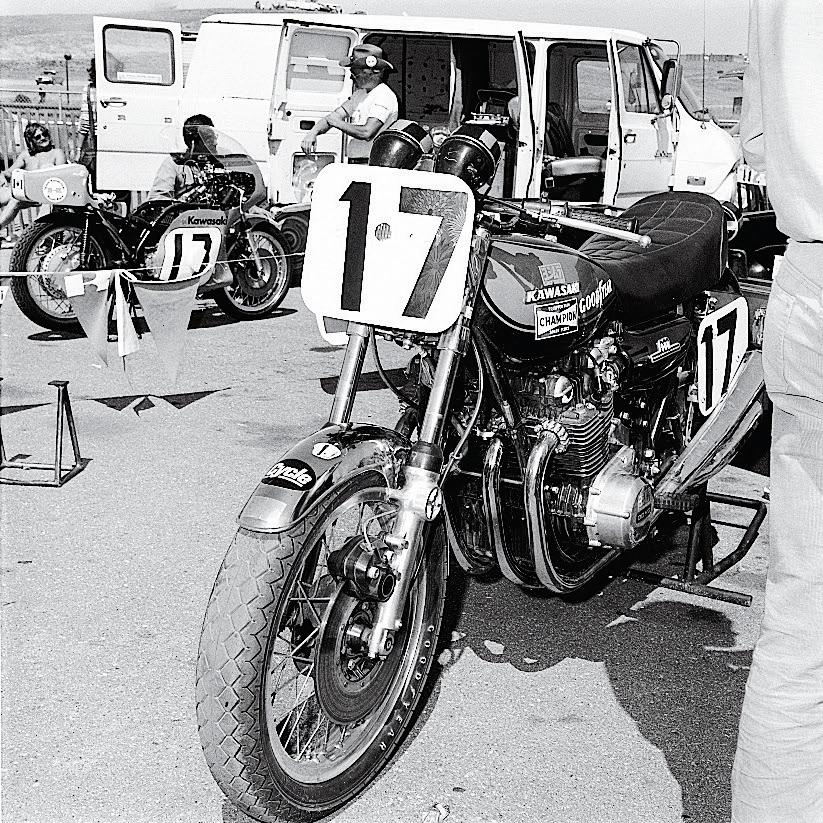
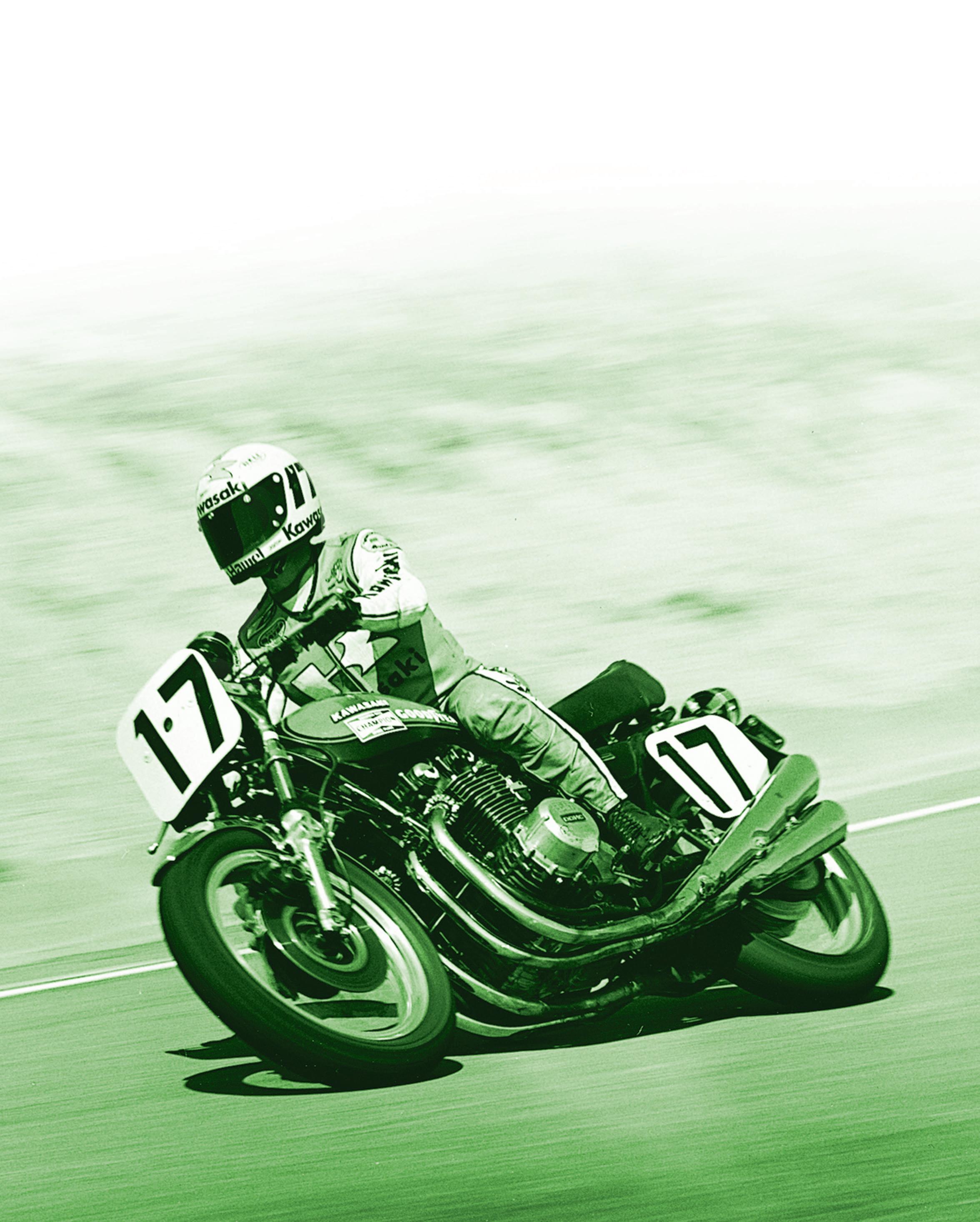
Here was an under $2,000 motorcycle that seemingly did it all, from around-town runner to comfy tourer to dragstrip demon to backroad burner and, by the middle 1970s, a plenty-competent Open Productionclass road racer.
conversation overnight.
Here was an under $2,000 motorcycle that seemingly did it all, from around-town runner to comfy tourer to dragstrip demon to backroad burner and, by the middle 1970s, a plenty-competent Open Productionclass road racer — which led to it becoming the one of the foundational machines in the launch of sanctioned AMA Superbike racing in 1976. They don’t call the Z1 the first Superbike for nuthin’.

Al Arbor, who ran Kawasaki East in Nashua, New Hampshire for nearly two decades, said the Z1 was key to building Kawasaki’s reputation in the U.S. “The Z1 really did do everything,” he told this author, “and a lot of guys used that to their advantage, telling their wives the bike would be for them to travel on. Once they got permission to buy it, it was often a different story! It was fast and comfortable and nearly indestructible, and we drag raced them for years. Those were good years.”
Once loosed on the streets, dragstrips and racetracks of America (and the world), the Z1 would go on to have some very good years, with
Honda’s reluctance to upgrade its flagship model (over and above the GL1000 of ’75) doing nothing to dilute that effect. Kawasaki, on the other hand, began making improvements to the Z in ’76 with the Z900 and, later, the Z1000 — all of which led to the
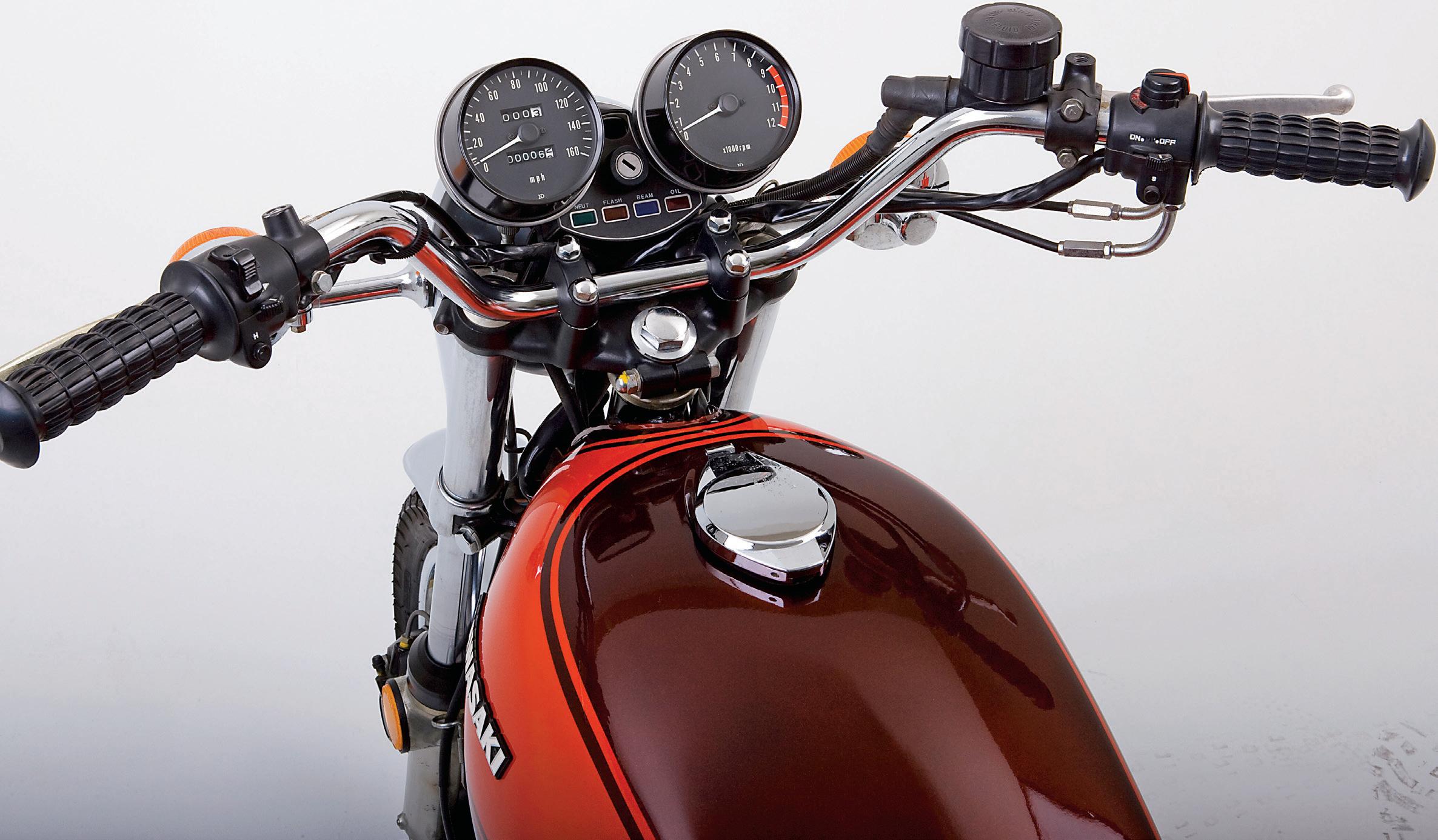
J-model KZ1000 and, later, the ELR, GPz and Ninja models of the 1980s. The company that dug deepest into Kawasaki’s big streetbike market share was Suzuki, with its brilliant GS750 and GS1000 of ’76 and ’78… but that’s another story entirely.
Despite the Z1’s 80-plus horsepower and fairly sporty handling, it was also a competent tourer, with plenty of midrange and enough smoothness and comfort (despite the waffle grips!) to keep rider and passenger happy. Right: Z1 variants through the years, from the Z900 to the Z1-R, which set the stage for the ELR, GPzs and 900 Ninja that’d come later.
FUN FACTS
According to Kawasaki’s website, the Z1 name came from Z being the last letter of the alphabet, which represented the most extreme position, with the number 1 representing “number one” in the world. Another bit of irony regarding the Honda/ Kawasaki connection here is the Honda CBR900RR of 1993, which debuted 20 years after the Z1’s introduction. Like the Z1, the 900RR was, during development, a 750, and got all the way to late-prototype stage before Honda changed course, feeling a 900 would have more market impact — which it did. Like Kawasaki’s decision to move up the displacement ladder and build the Z1, Honda’s move was a smart one.
Z BOTTOM LINE
In short, Kawasaki’s 900 Super Four Z1, as it finally came to be known, was nothing less than a revelation — a motorcycle that shined a bright orange spotlight on the future of motorcycling, a direction every other manufacturer ignored at its peril. That direction was performance-oriented, for sure, but it wasn’t a narrow-focus or harsh sort of performance as represented by, say, Kawasaki’s Mach III or H2. It was balanced performance — speed and power, for sure, but also comfort, quietness, smoothness, civility and durability…as inviting and inclusive as the two-strokes could feel hostile and divisive.
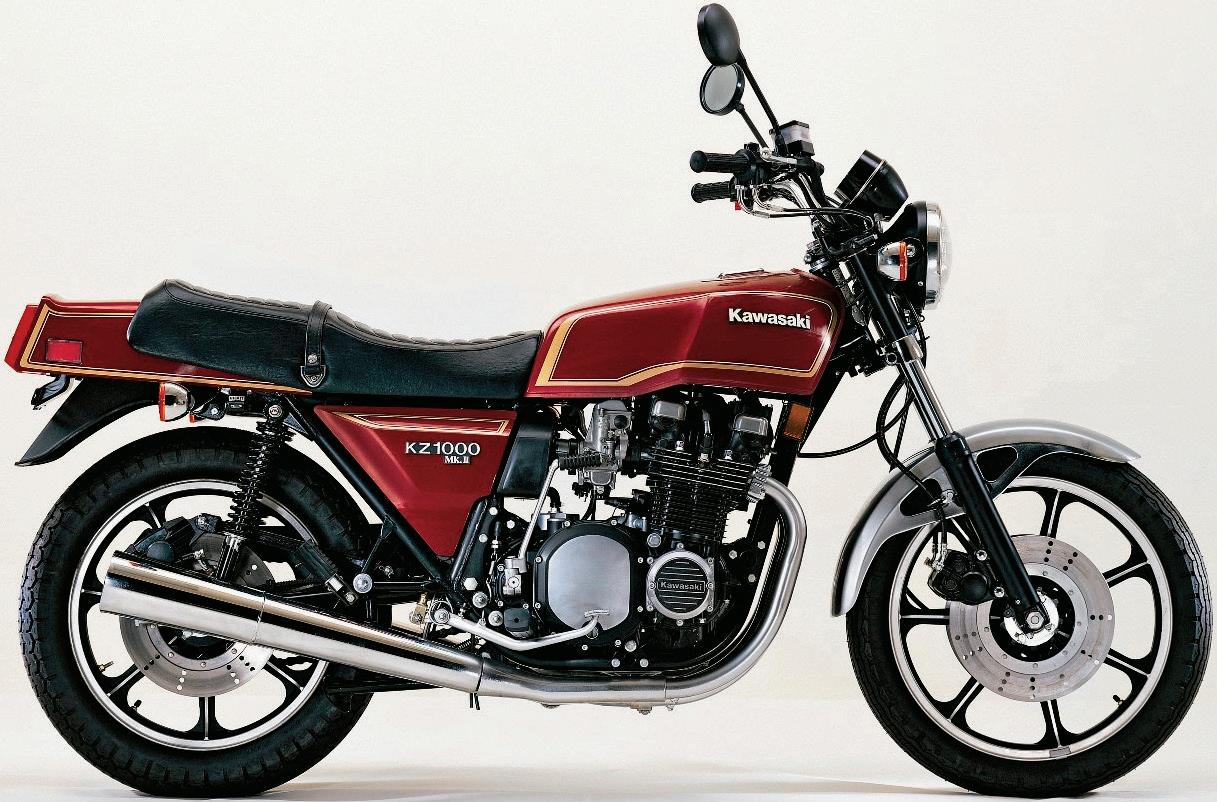
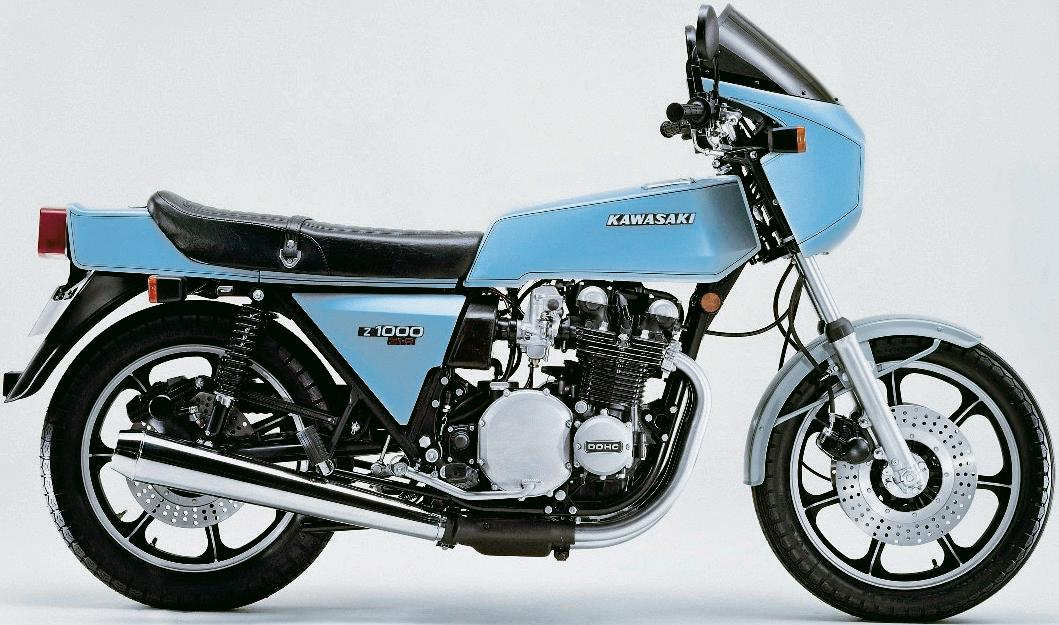


The Z1 didn’t quite generate the all-inclusive big-tent appeal of Honda’s CB750; there was still a bit of an edge to the bike, a subtle feeling of Us vs. Them, which, given the bike’s semi-tortured birth, was maybe not an accident.
But 50 years later, most of us know what motorcycle is being referred to when we read this famous road-test quote: “Every inch a King…” AMA
Z1-R KZ1000J Z1000 Z900 BY JOY BURGESS PHOTOS BY SHAN MOOREIf you’re into motorcycle racing at all, you’re probably familiar with the Haydens and Bostroms in AMA and World Superbike, the Stewarts and Lawrences in AMA Supercross, and the Baumans in flat track — all brothers who’ve raced at the highest levels in their disciplines.
But you might not have heard of Steward and Grant Baylor, brothers
who’ve dominated AMA National Enduro for the past decade
Between the two, they’ve won seven of the past 10 AMA National Enduro championships, with Steward winning in 2012, 2016, 2017, 2018 and 2021, and Grant in 2020 and 2022.
“Racing’s kinda in our blood,” Steward told American Motorcyclist with just a touch of sarcasm. “I’m
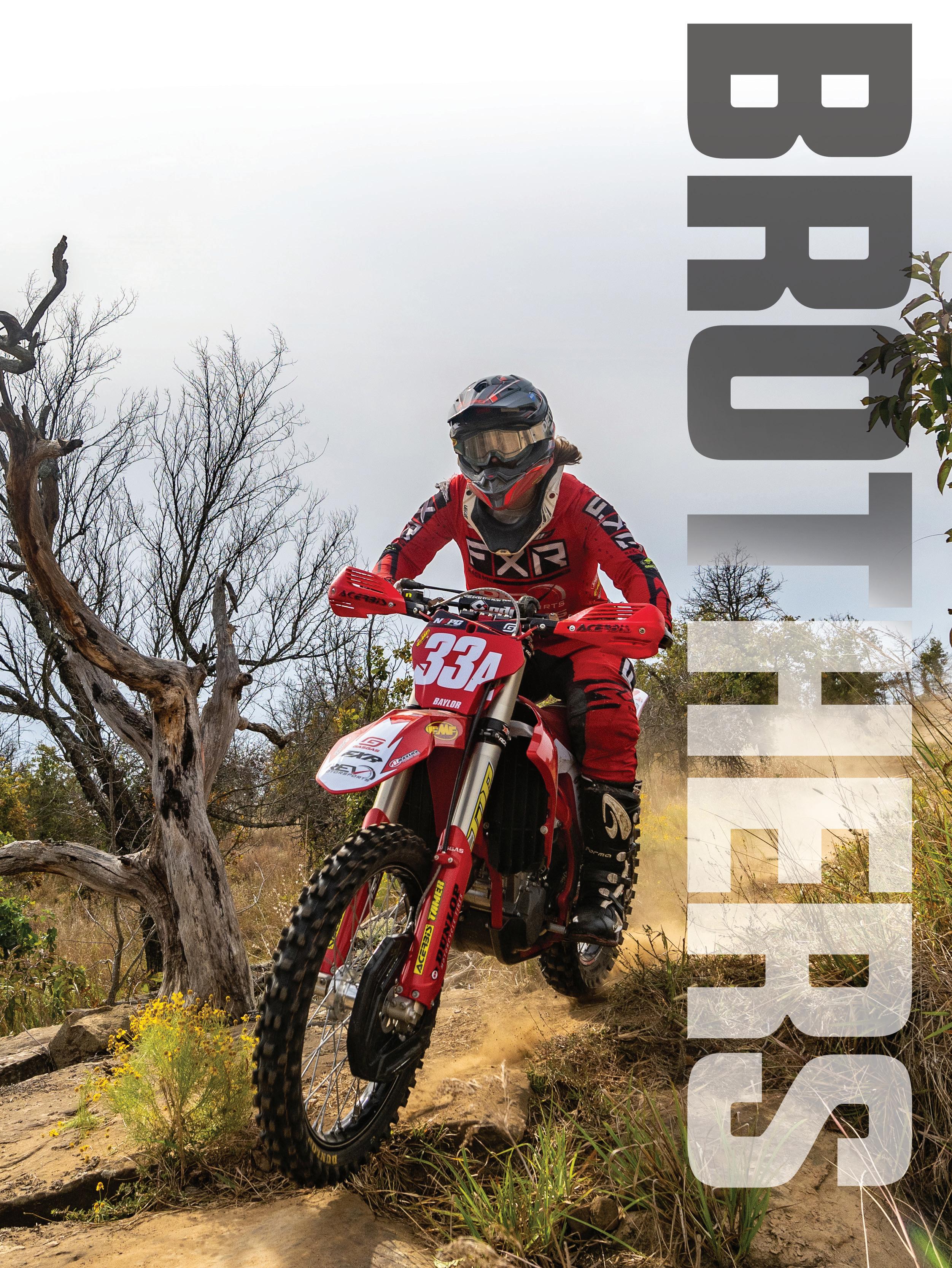
in Arms
Steward and Grant Baylor dominate the AMA National Enduro series


— and show no sign of slowing down
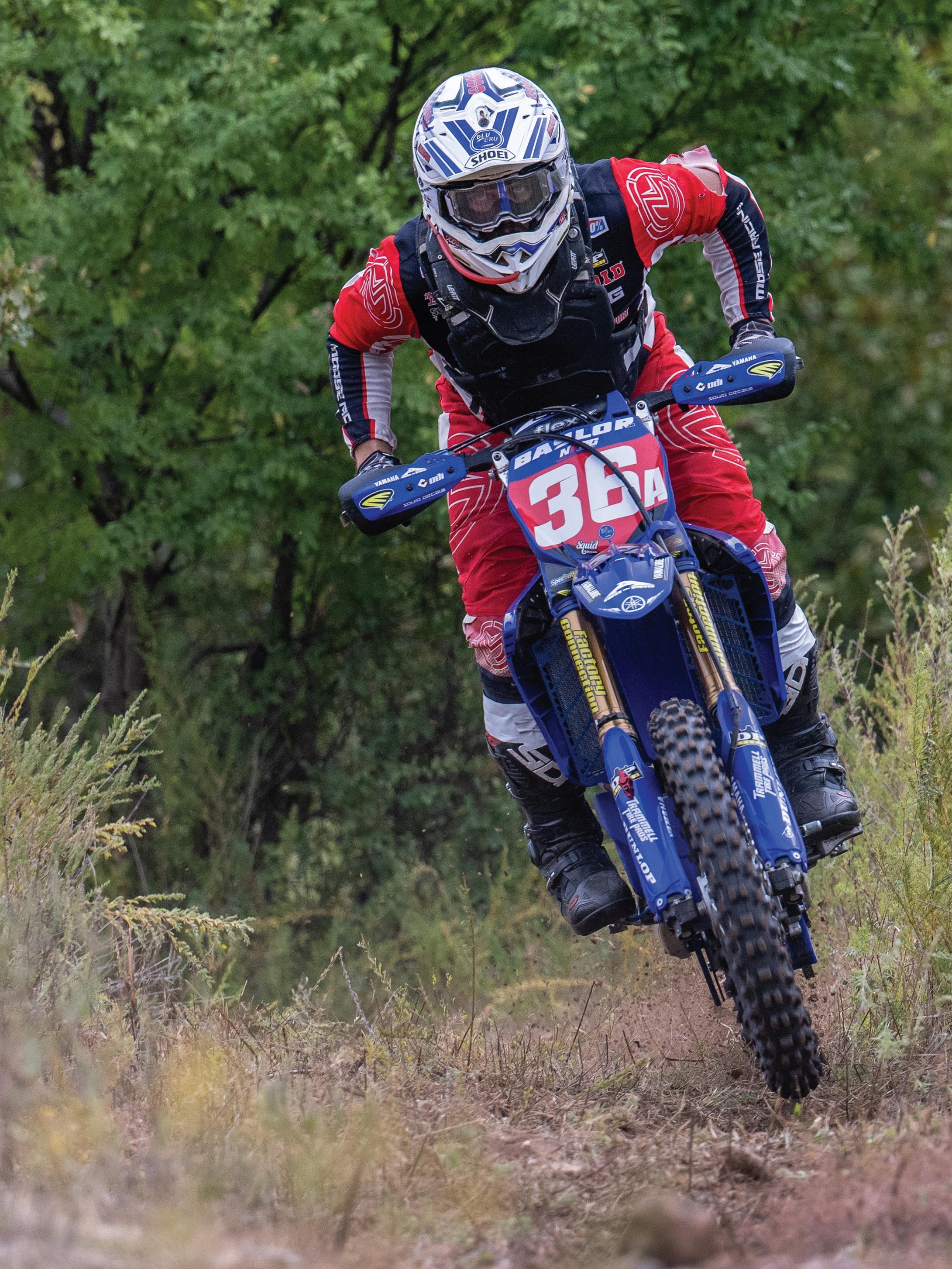
proud to be a third-generation racer, and riding and racing has always been a big part of our family. My grandpa raced, my dad raced, and I started riding at age 3.”
“My first race was when I was just 4,” he continued. “They had a Jr. Enduro at the 1998 Sumter National Enduro, and I raced that. But it snowed, and I swore I never wanted to do that again.”
“The first time I rode a dirt bike,” Grant added, “was when I was about three-and-a-half years old. My brother and I both started racing young, and that got our dad back into racing, too.”
The brothers started racing locally in the South Carolina area, getting started in enduro. Later, they tried qualifying at the AMA Amateur National Motocross Championship
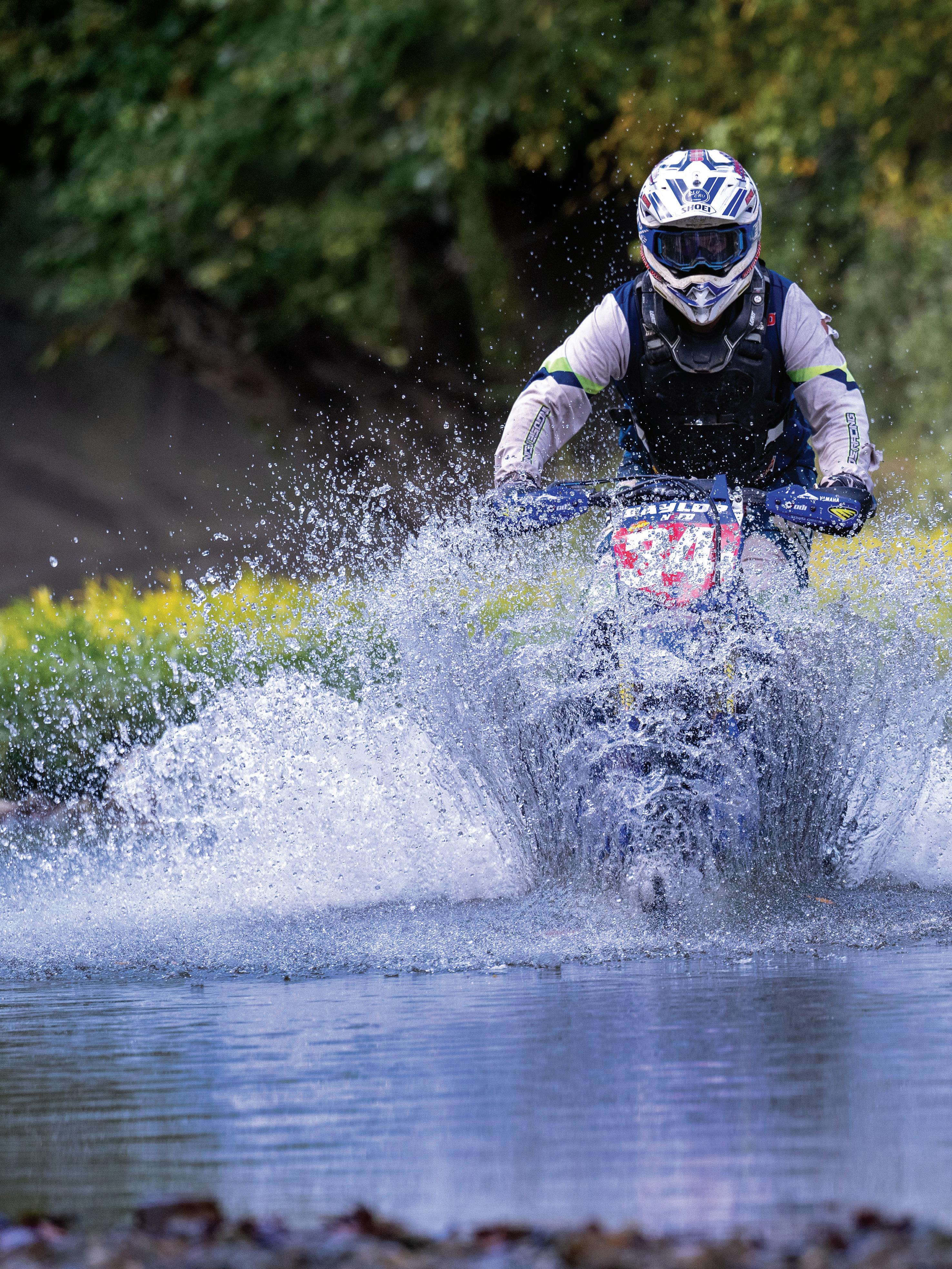
at Loretta Lynn’s Ranch, then got involved in AMA Grand National Cross Country (GNCC) racing while competing in hare scrambles here and there.
“Finally, I was the age I could start running in National enduros, and switched over to that in 2012,” Steward told us.
“I think we did a few races in 2011,” Grant added, “But we dove into enduro full time in 2012. Steward went to the first round and won the Pro class in South Carolina, and we were all so excited about that,
“Grant is absolutely my biggest competition. He’s been my longest and most consistent competitor. We talk a little smack after every test, and I kinda think he wants to take me down more than I want to beat him.”
STEWARD BAYLOR
we decided to all follow the series the rest of the year.”
Surprisingly, during that first year the Baylors raced the entire series, Steward won his first AMA Enduro National Championship.
“It was kinda a shock that in my first year running I won seven of the nine rounds I entered,” Steward said. “I won multiple races, even after breaking my wrist. I shocked a lot of people — myself and the industry — and we accomplished all that with no factory support. Fans, local people and friends helped us get to some of the races, and that first championship in 2012 really sparked my professional career at the top level.”
While Steward won the AMA National Enduro Championship that first year, Grant also did well, winning


the championship in the 250 class.
For Steward, enduro was the type of racing he enjoyed more than anything else. But that wasn’t the only thing that drove him to focus his attention on enduro.
“I’d had some significant injuries in 2011 and then in 2012 that made it nearly impossible to do hare scrambles for hours,” Steward said. “Enduros allowed me to take a break and ice down my joints, nursing myself through the event.”
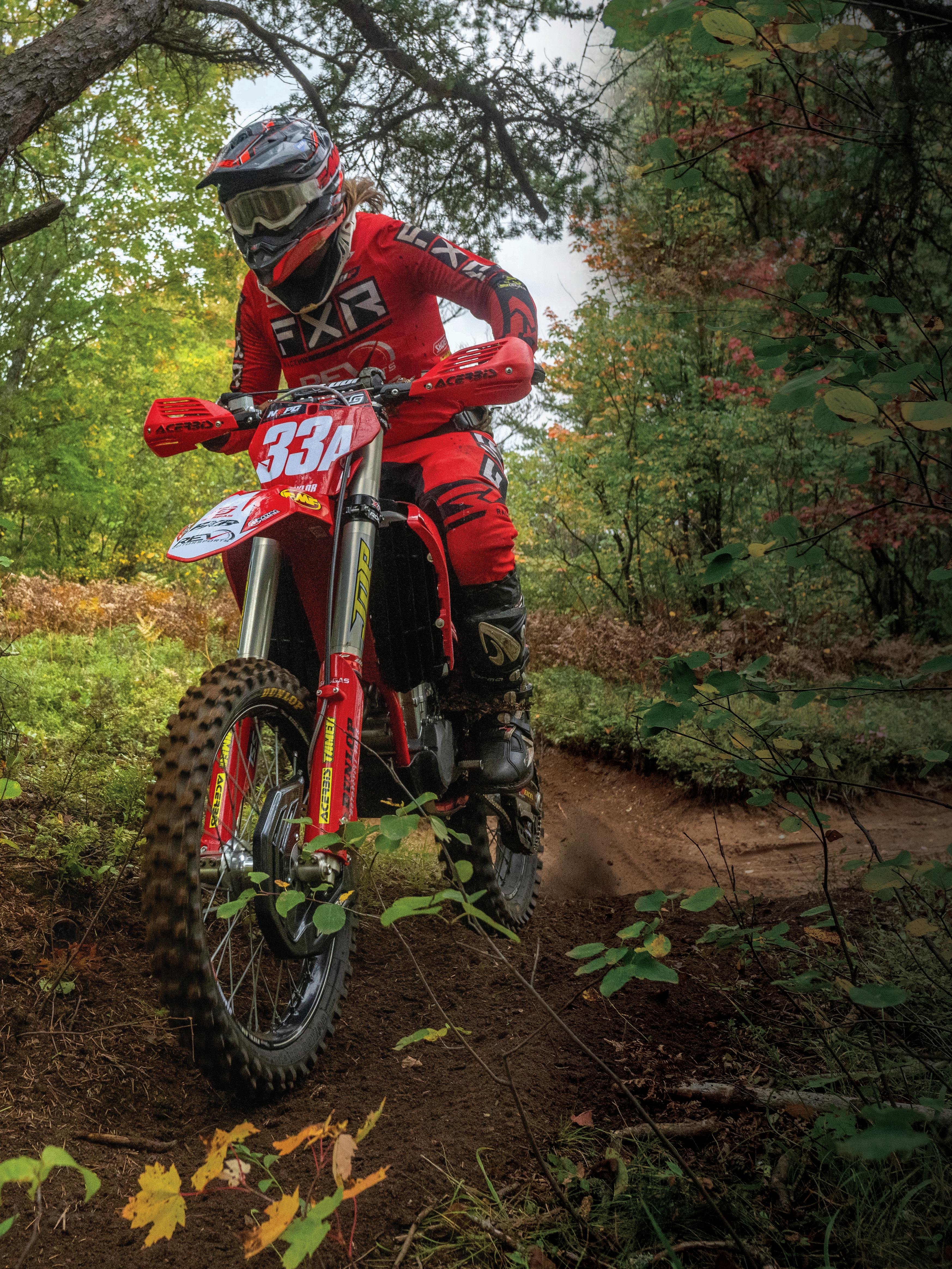
While he scored his first AMA National Enduro championship in 2012, he also broke his foot, and clavicle, and had a major wrist injury that led to five surgeries; the bone ended up dying, and eventually had to be removed.
“I just can’t hold on for very long with that wrist,” Steward continued. “But if I can stop and ice it, I’m able to go on for another section.”
“Steward’s pain tolerance has to be out of this world!” Grant exclaimed. “He broke his collarbone and rode with it broken to the point it nearly rubbed a hole through his skin. Another time he crashed and the handlebars took a big piece out of his lower back. It was really bad — the sight of it nearly made me faint — but he finished the race.”
Despite all the injuries they’ve both sustained over the years, the brothers continue to be each other’s most formidable opponent in the series.
“Grant is absolutely my biggest competition,” Steward said. “He’s been my longest and most consistent competitor. We talk a little smack after every test, and I kinda think he wants to take me down more than I want to beat him. Championships aside, he wants to beat me at those races.”
“At enduros,” Grant added, “we’re not head-to-head. We take off on a different minute. At the end of the day, one of us is going to come away frustrated. But if anyone’s going to beat me, I’d rather it be him. My brother’s one to rub it in a little, and while we have a good relationship, I
do feel great when I can beat him!”
In 2022, it was Grant who pulled off the championship win — his second, and the first-ever enduro championship for GASGAS USA while Steward cheered him on, electing to have surgery near the end of the season after an injury.

“Grant started clicking off wins at the end of the season,” Steward said, “and I knew he was going to do it. I was happy the championship went to another Baylor. Seven out of the last 10 years for our family is pretty strong. In most sports, there are seldom times where two brothers share championships, and we share several. We’ve stood on the podium as first and second more than 10 times and had a very decorated career for brothers, so I was just happy a Baylor got it done.”
For Grant, that second championship has been a confidence booster, but he also knows that if his brother wouldn’t have missed a few rounds due to injuries, things could have been a lot different.
“If Steward hadn’t been hurt,” Grant mentioned, “he’d have been really close at the end of the year, and we really haven’t had a year where both of us have been healthy. Currently, we’re the only two guys running who have championships under our belts, but racers like Josh Toth, Ryder Lafferty and Ricky Russell are all stepping it up.”
“For 2023,” Grant continued, “I’m hoping Steward and I both have a healthy season so we can really go head-to-head. After winning in 2022, I want to see what’ll happen when
we’re both healthy. I’ll also be riding a Kawasaki in 2023, a big change for me after riding mostly Austrian-made bikes for most of my career.”
For Steward, there’s always another goal to chase.
“Every year my goals change,” he said. “I wanted to get five championships like Russell Bobbit had, and I did that. Now I want to get seven championships, although my brother sure makes all that a bit more difficult [laughs]. Winning a championship is great! But that feeling of accomplishment doesn’t last very long. It’s always on to the next goal!” AMA
“For 2023 I’m hoping Steward and I both have a healthy season so we can really go head-to-head.
After winning in 2022, I want to see what’ll happen when we’re both healthy.”
GRANT BAYLOR
SPORTSTER
After 65 years, Harley-Davidson’s Sportster has spawned some remarkable derivatives

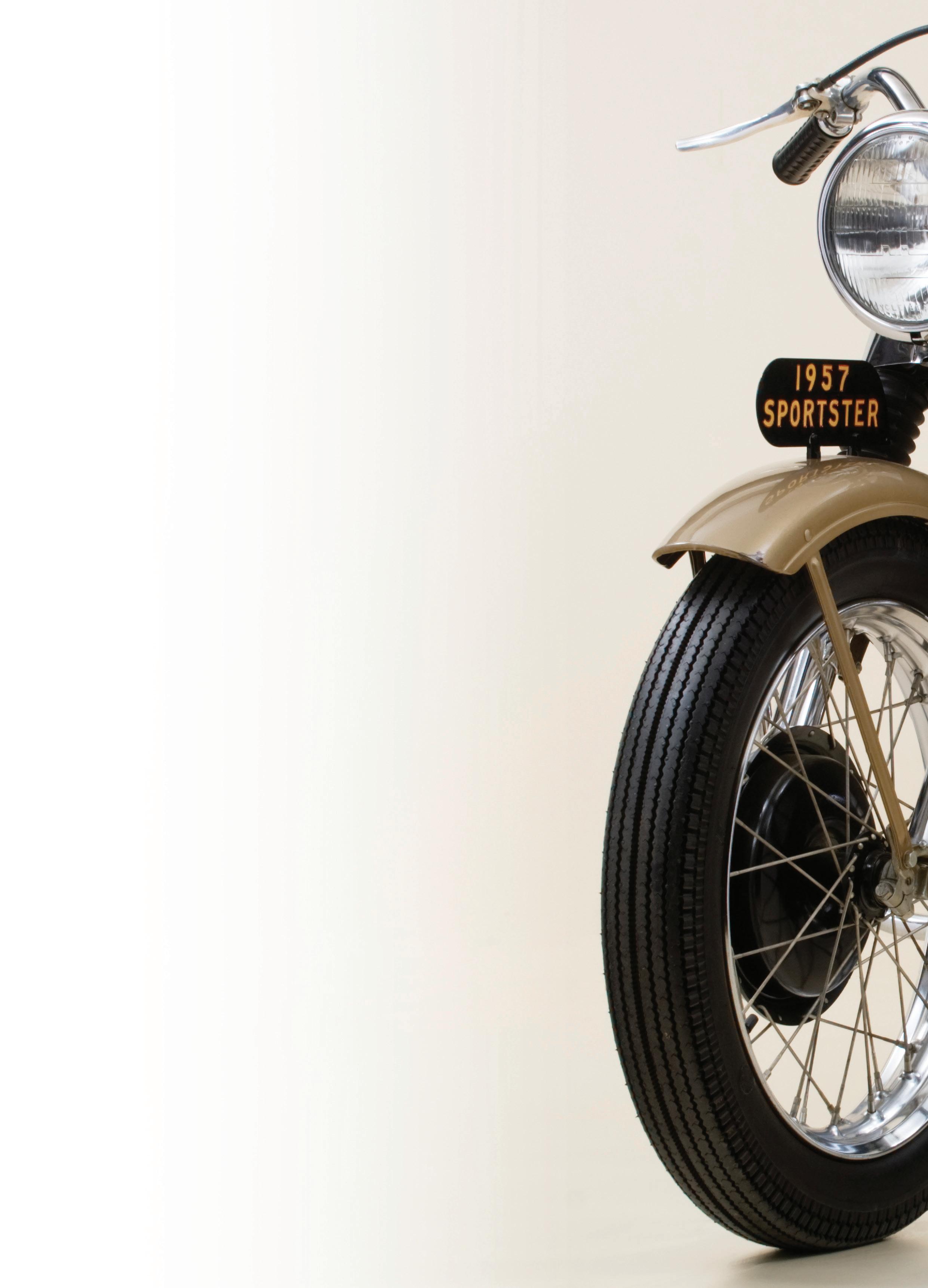 BY JOHN L. STEIN PHOTOS COURTESY OF HARLEY-DAVIDSON
BY JOHN L. STEIN PHOTOS COURTESY OF HARLEY-DAVIDSON
Need a high-quality trivia question for your next Jeopardy watch party? What’s the longest-running “automotive” nameplate in continuous production? Shocker, it’s not Corvette, which debuted in 1953 and continues 70 years later in 2023 — except that there was no 1983 Corvette model, thanks to delays for the new 1984 platform. This makes the Harley-Davidson Sportster, which debuted in 1957, literally America’s most historic vehicle. In honor of this now 65-years-long achievement, American Motorcyclist wanted to use the introduction of the latest Sportster derivative, the new Revolution Max-powered Nightster, as a launch-point for celebrating a half-dozen other memorable takeoffs for the Sportster platform. Starting, naturally, with the original. You’ll read about the new Nightster at the end of the piece, but first, here are our favorites.
1957 SPORTSTER
The GOAT Debuts
Just a decade after World War II, both the Baby Boom and America’s recreational boom were going full throttle. Freedom, prosperity, leisure time and the great outdoors called, and a sporty new Harley-Davidson model, the Sportster, answered. Officially known as the XL Sportster, it was based on the 1951 “K” model, Harley’s first big engineering advancement after the hostilities ended. The Sportster displaced 883cc, featured overhead valves and foot shifting, and was credited with making 40 hp. It cost $1,103. From there, competition models such as the XLCH scrambler and KRTT road racer followed. While racing certainly helped build the Sportster’s reputation, the essential goodness of the model — and its absolute “rightness” for the U.S. market — really carried it forward.
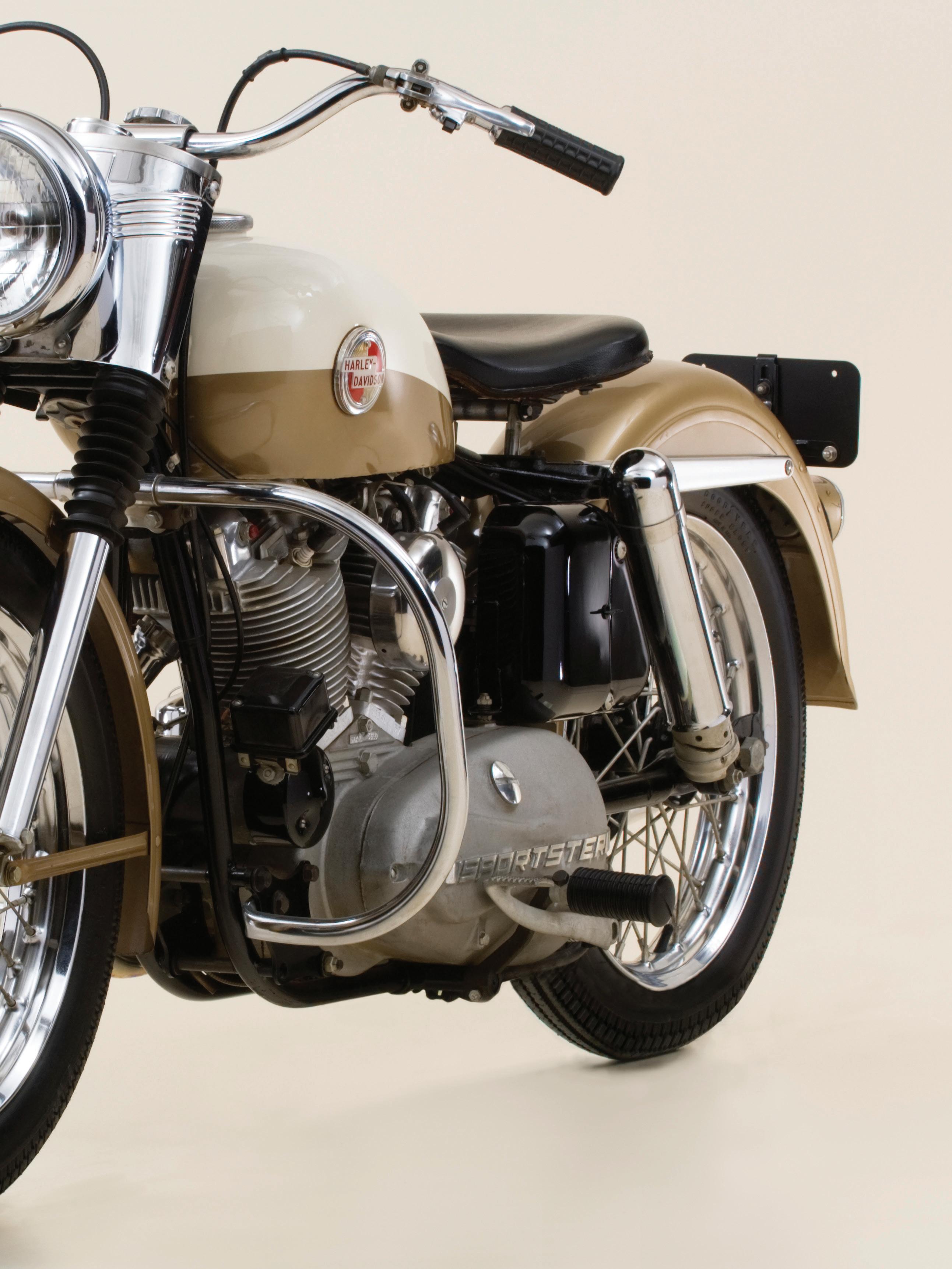
1970 XR750
Milwaukee Production Racer Rules the Roost
n the all-important AMA Grand National Championship of the 1960s and 1970s, Harley-Davidson reigned, first with the side-valve KR750 twins and then with the OHV XR750. Built in-house at the Motor Company’s race shop, these flat trackers were issued to factory riders and also available to privateers. Their double-cradle frames were built just for flat track (Mile, Half Mile and TT), and the engines were 748cc V-twins breathing through individual carburetors instead of the production V-twin’s shared single carb. The alloy-head bikes further upped the XR ante upon their introduction in 1972. So successful was the XR750 overall, that it amassed over two dozen AMA Grand National championships since its 1970 debut.
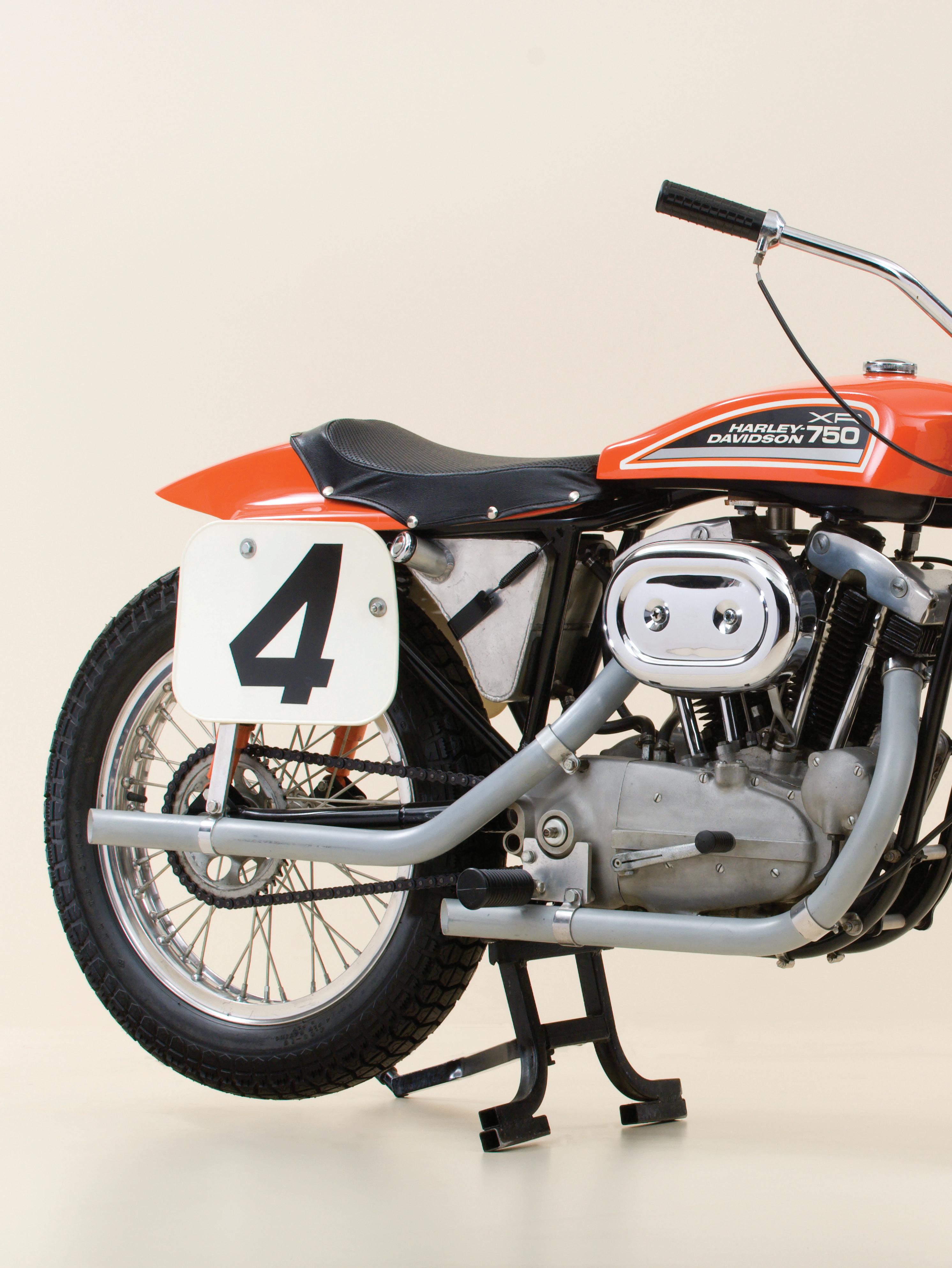
I
1983 XR1000 Factory Hooligan

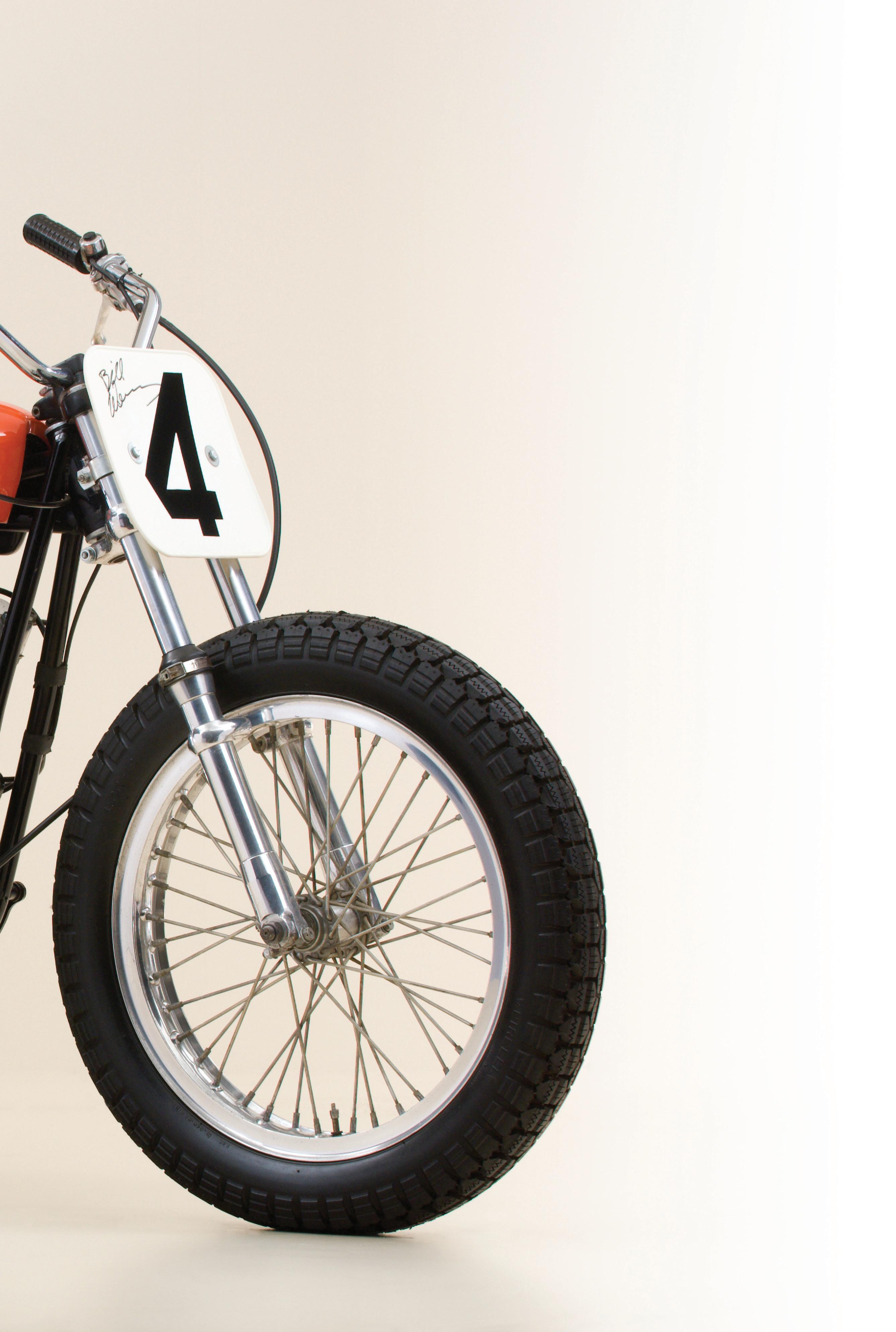
B
orrowing energy from the heady success of the XR750 dirttracker, Harley-Davidson put the audacious XR1000 street machine into production for two glorious years. Part Sportster and part factory dirt-tracker, it featured specialized cylinder heads with rear-facing Dell’Orto pumper carbs wearing high-flow K&N air filters, twin high-mounted left-side exhausts, and scarcely containable energy. Quite simply, it was a beast. It roared like a dragon, vibrated like a paint shaker, and went like stink. The XR1000 was uniquely 1980s — and couldn’t be replicated today. Quite simply, it contained the same raw, unapologetic spirit of Harley’s first factory race bikes that arrived in 1914.
1977 XLCR CAFE RACER
The Black Mamba of Cafe Racers
Before “modern” sport bikes such as the 1985 Suzuki GSX-R750 arrived, there were cafe racers. An outgrowth of the “Mods and Rockers” age of wannabe road racers in England, they got their name from The Ace Cafe near London, a hangout for fast two-wheelers. Here in America, private builders wanted cafe racers of their own. To get there, sometimes they bought Dunstall kits, complete machines from Norton or Ducati, or devised their own, using parts from Webco or other resources. It was still a DIY society. Then, using its 997cc Sportster as a basis, Harley-Davidson created the outrageous XLCR Cafe Racer from 1977-79. Painted and coated black through and through, it was, as George Thorogood sang, “Bad to the bone.” On the right road in the right hands, it was also a formidable sporting weapon.

1986 EVOLUTION ENGINE
Thoroughly Modern Mille
The early 1980s were a great time for Harley-Davidson. First, CEO Vaughn Beals led the buyback of the manufacturer from sports conglomerate AMF, taking the Motor Company public and charting its course to independence that continues today. And second, the critical Evolution engine, introduced for 1984 on the Big Twins, made its Sportster debut in 1986. Overnight, the chief complaints that many riders had of “Shovelhead” Sportsters — that they were leaky, unsophisticated and unreliable — changed for the better. The new Sportster 1100, and its smaller sibling, the 883 Sportster, was quite literally a breath of fresh air. And the basic design continues today.


2009 XR1200 Racetrack-Ready Rocket
In physics, force is defined as mass times acceleration. Harley-Davidson combined the huge mass of the XR racing nameplate with the hardhitting Evolution 1203cc Sportster engine to create the XR1200 street bike from 2009-10 — and later upgraded the suspension to create the XR1200X from 2011-12. The term “naked bike” hadn’t been around long at that
point, so the biggest-ever XR was regarded as just a standard motorcycle. But what a standard it was. Quick revving, light on its feet — or rather, wheels — and reasonably agile, it was a formidable street bike and, with appropriate modifications, a capable road racer, too. It gained prominence in the exciting 2010-14 AMA Pro Vance & Hines XR1200 Series.
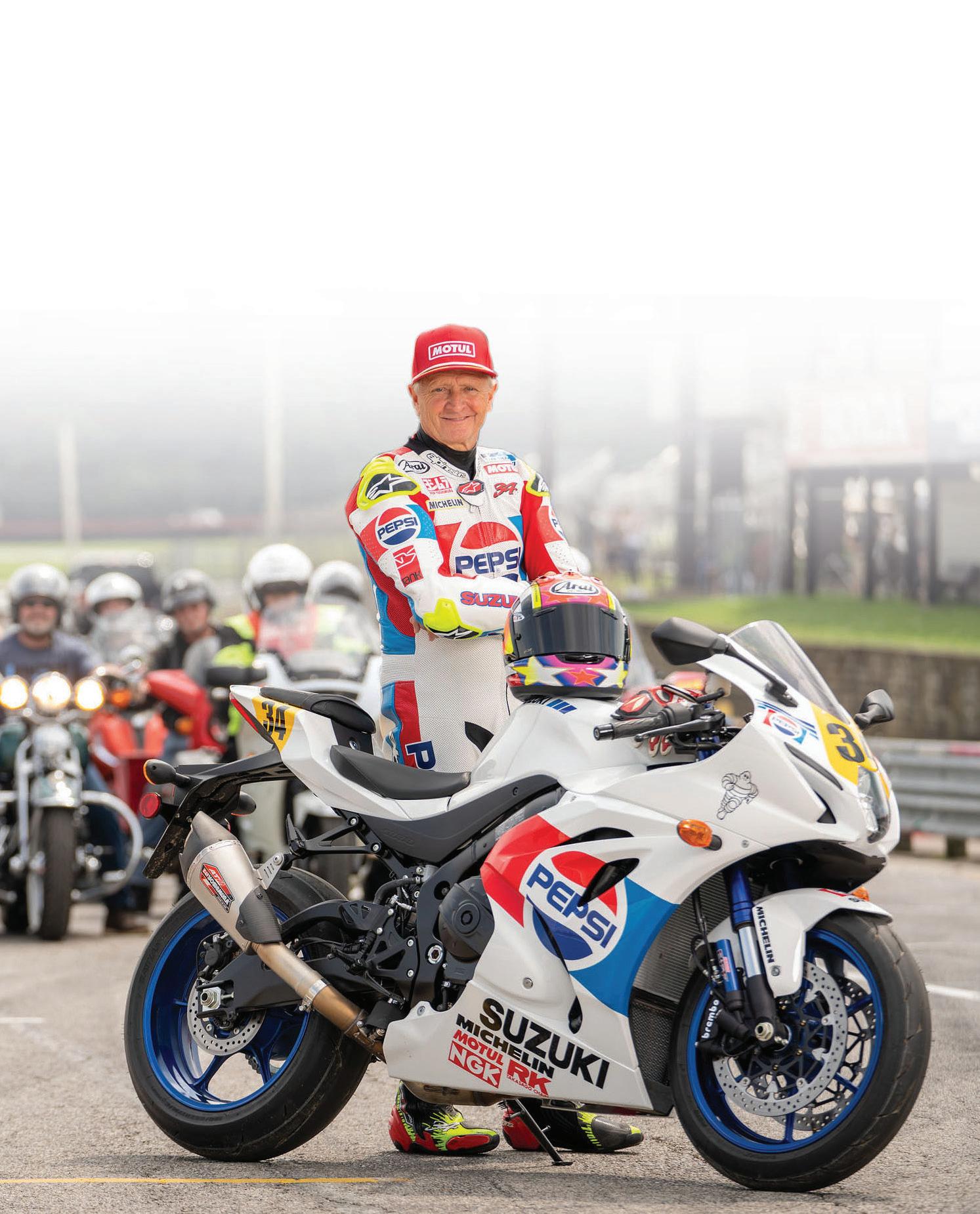
2023 NIGHTSTER

Revolution Max Literbike
The third product based on Harley-Davidson’s latest Revolution Max engine architecture, the new Nightster followed the Pan America and Sportster S to market in mid-2022. Priced at $13,499, it’s available in standard Vivid Black, or for $400 more, Gunship Gray and Redline Red. Having seen all three at Harley-Davidson’s media launch in California, we think that the Redline Red version rocks.
Like the exotic V-Rod of 2001-2017, the Nightster uses a liquid-cooled DOHC, eight-valve “Revolution Max 975T” V-twin, this time with a 60-degree V-angle compared to Harley’s typical 45-degree cylinder angle. Happily, this enables smoother running. Like Honda’s inventive 1975 Gold Wing, the Nightster also carries its 3.1 gallons of fuel under the seat, lowering the center of mass and freeing up room under the faux peanut-style gas tank for the airbox and electronics. The actual tank’s filler cap lives under the flip-up seat.
Weighing a claimed 481 pounds fueled and ready to ride, the Nightster is a spirited performer — not monstrous like some literbikes, but usefully powerful as well as entertaining.
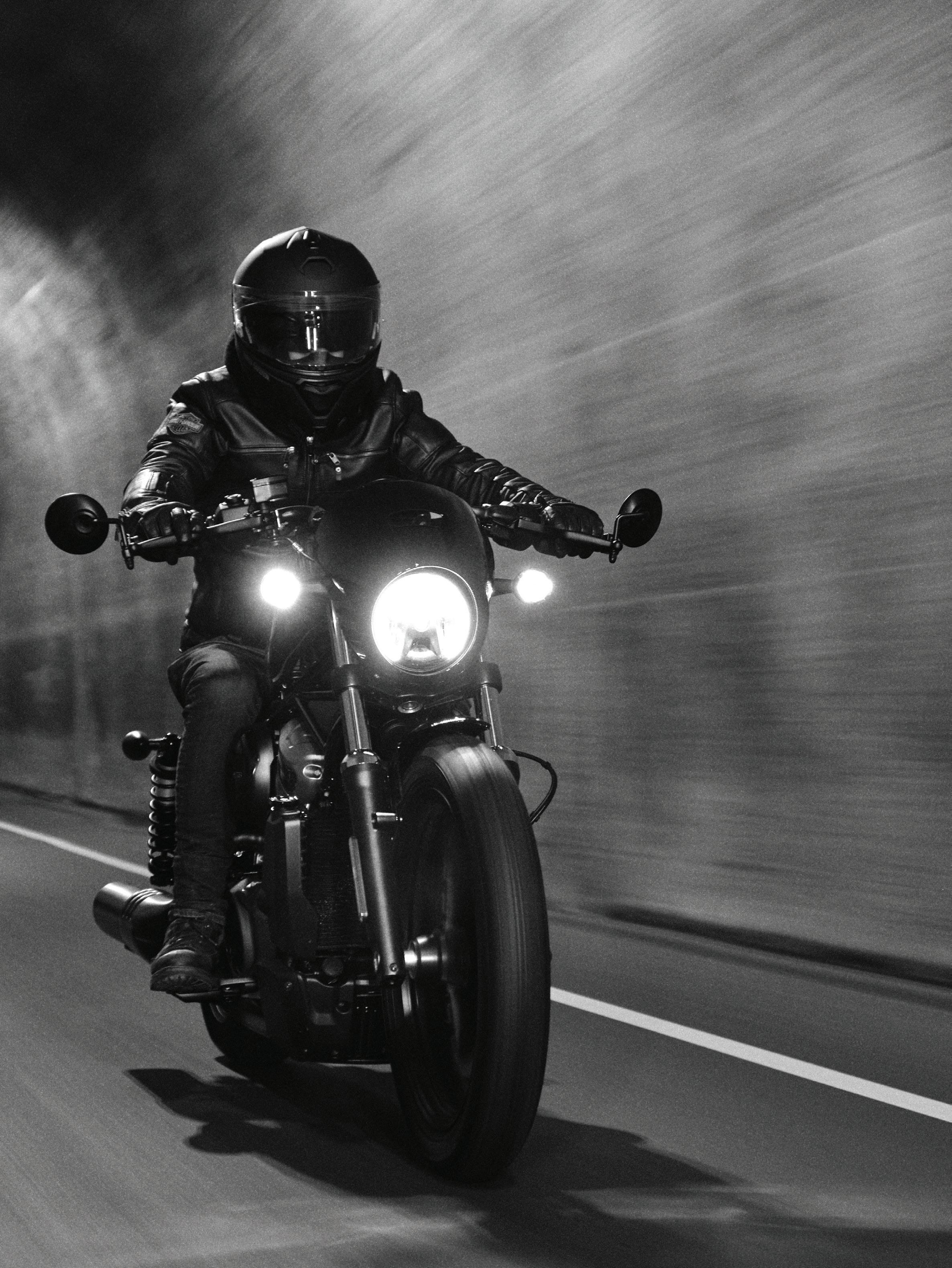



2023 NIGHTSTER
Rated at 90 horsepower at 7500 rpm, the 975cc engine really is a joy — it’s wonderfully torquey and a willing revver; it’s also relatively vibration-free and, thanks to variable valve timing and a 6-speed gearbox, flexible in any riding condition, from slogging through stop-andgo traffic to strafing apexes in the twisties, to freeway flying. (Unfortunately, we found the gearbox operation compromised by stiff shift action.) The engine turns a lazy 3200 rpm at an indicated 60 mph.
In keeping with the times, standard tech features aboard the Nightster include ride-by-wire throttle control, which enables the inclusion of three power modes (Road, Sport and Rain) that can be selected on the run. Noticeably distinct from one another, each power mode tailors throttle sensitivity and power output, how aggressively the standard traction control intervenes, and the amount of engine braking that occurs when you roll off the throttle. ABS is also included as standard equipment.
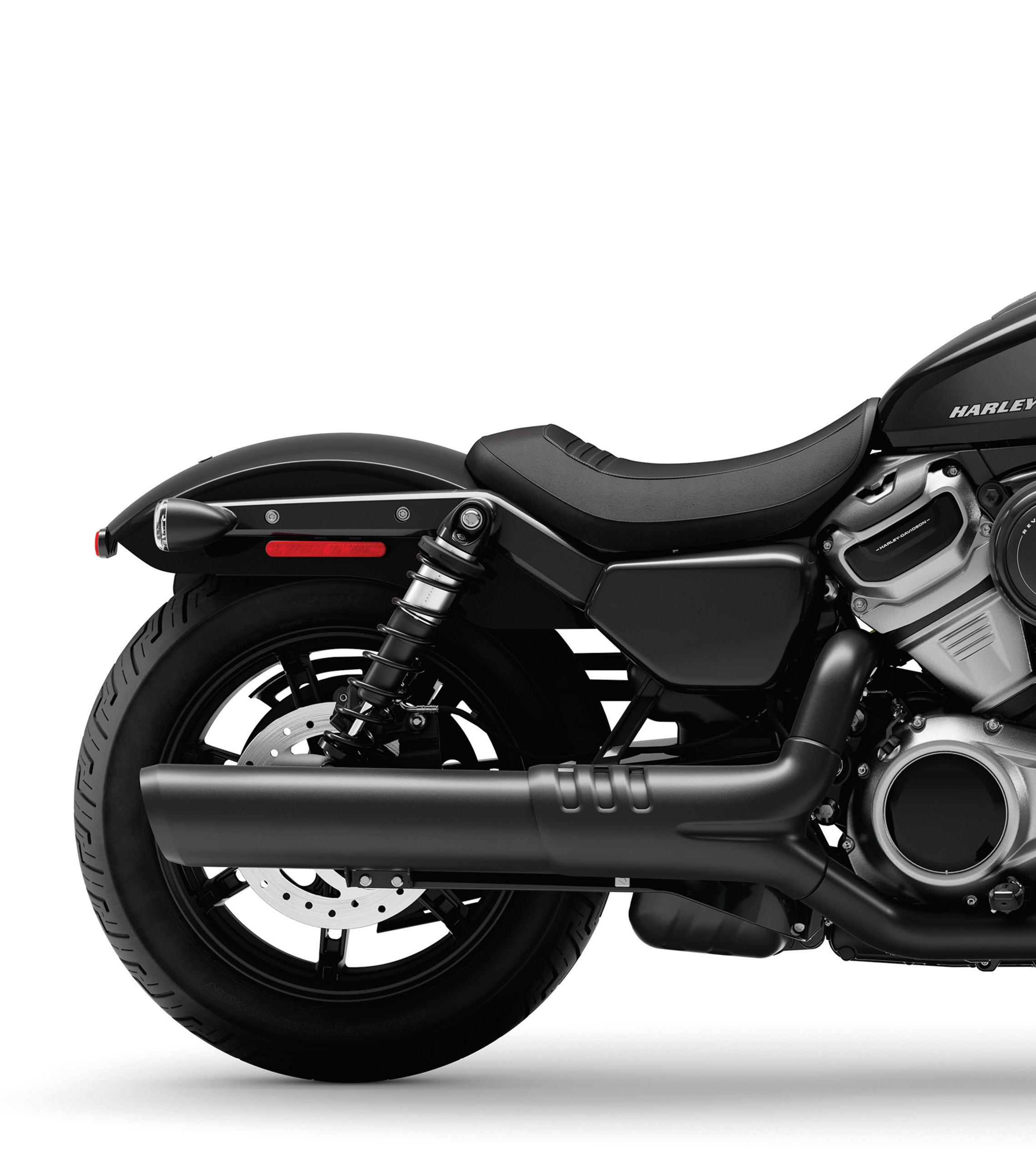
Interestingly, the Nightster has no traditional frame; instead, front, mid and rear sections bolt directly to the engine, which is thus a fully stressed chassis member. In case you have any qualms about this, Ducati uses the same concept on its Superleggera V4 superbike. The steering geometry (for data geeks, this includes 30º steering rake, 5.4 inches of trail ahead of a 61.3-inch wheelbase) is relaxed, and wheels and Dunlop tires are traditional Sportster fare – 19 inches in front and 16 inches out back. As such, handling is linear, steady and predictable. Even so, know that in expert hands the Nightster can still throw-down on a curvy road.
In terms of ergonomics, the Nightster follows traditional Sportster forms once again, with a low solo seat (27.1 inches high, says the Motor Company, with a 180-pound rider aboard), and low, mid-mounted footpegs and controls. If you like this architecture — and legions of riders do — you’ll likely be happy with the Nightster as a regular companion for commuting, exploring, or
The heart of the matter here is the Nightster’s delicious Revolution Max V-Twin, which offers 975cc of seamless and torquey motivation, and 90 peak horsepower.

even touring. Incidentally, the solo seat is incredibly comfortable — a marvel, really.
Due mostly to the Sportster-driven triangulation of a low seat (a particular benefit for newer or smaller riders), the amidships footpegs, and a traditional low-rise handlebar, the overall Nightster package does have some limitations. Negatives include only modest suspension travel and average cornering clearance, mostly on the right where the big exhausts live. If you ride fast, you’ll likely feel your right boot getting hot from the exhaust pipe and dragging in turns.
The Revolution Max series was a “clean-sheet” effort designed to take Harley-Davidson into the future, while retaining selected traditional design language. In the case of the new Nightster, this approach brings some victories, some satisfaction — and some compromises, too. Taken as a whole, though, this latest Sportster derivative is a solid and attractive motorcycle that proves Harley’s ability to once again reinvent the Sportster DNA to meet the times — now 65 years on. AMA

MAKE IT YOURS
The AMA offers a variety of card types and designs for members. In addition to our standard card, we offer a number of themed cards that identify you as belonging to a specific group or speak to your passion as a motorcyclist.
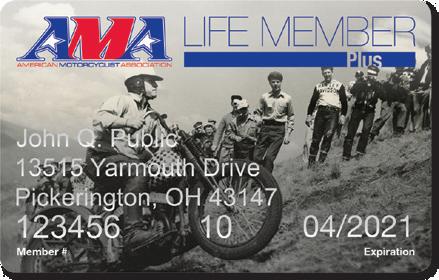
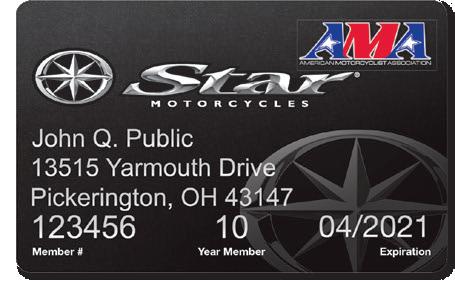
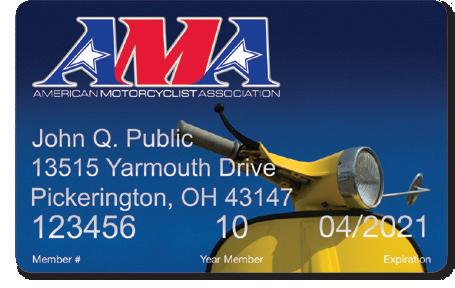
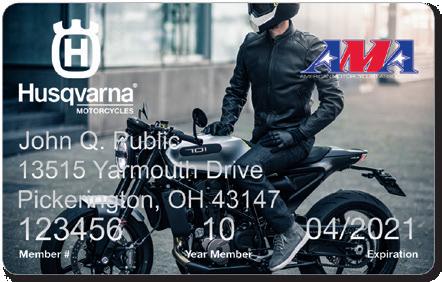

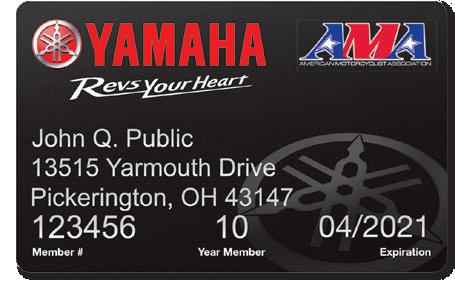
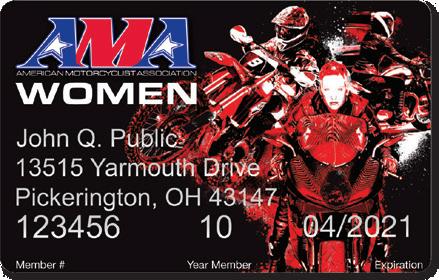
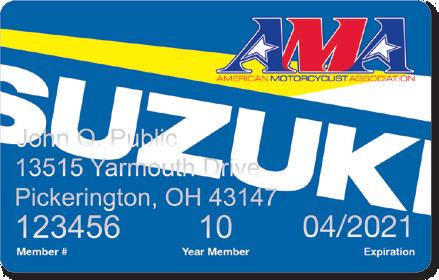
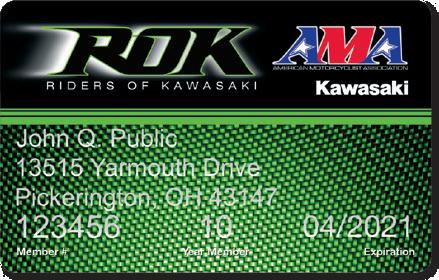
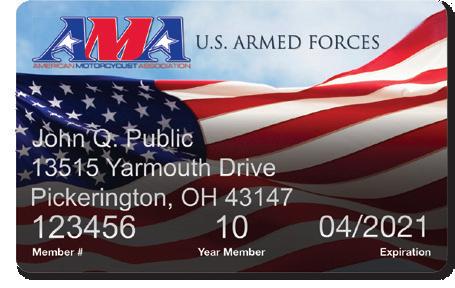

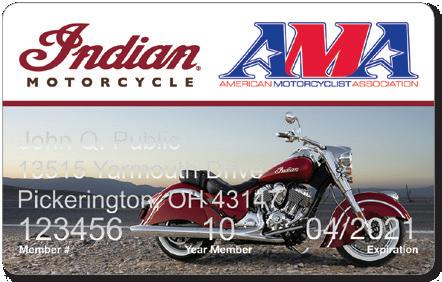

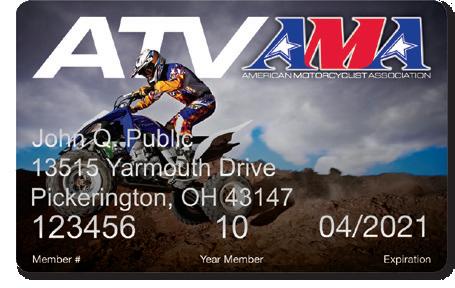
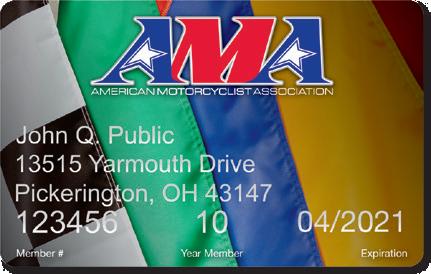
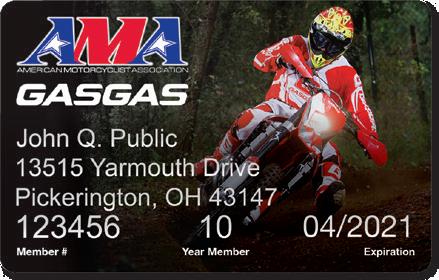
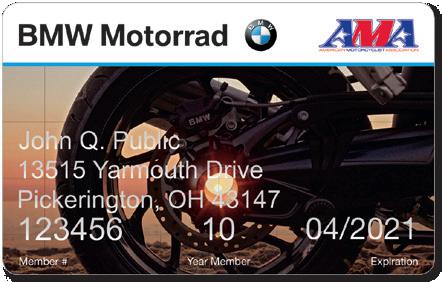
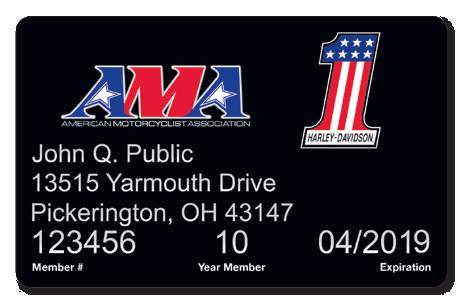
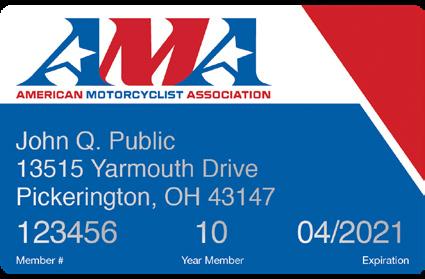
Call (800) AMA-JOIN (2625646) to request an affinity card at any time, at no additional cost.
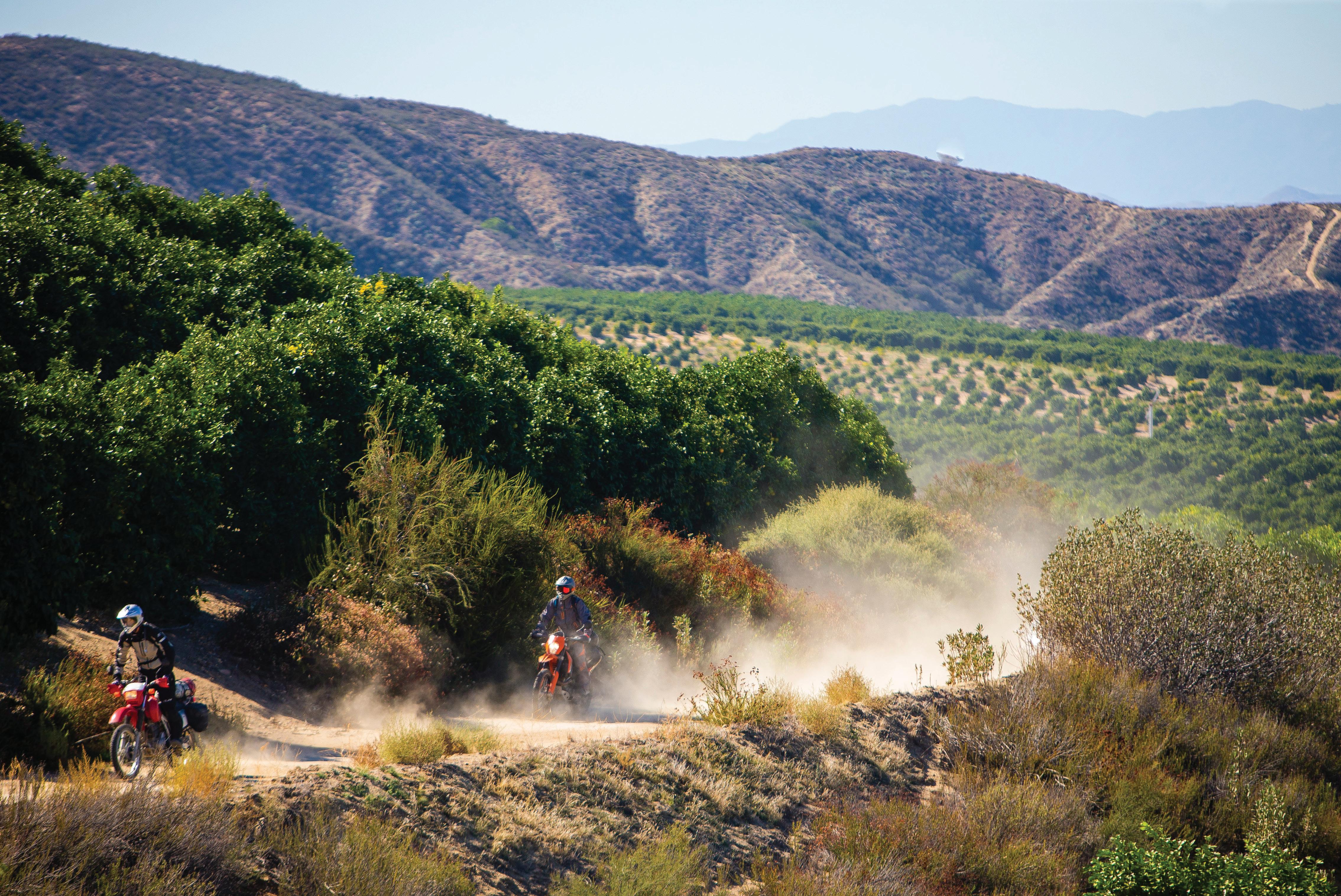
DEALS AND DISCOUNTS
THE ESSENTIALS
Lodging
Save 15% at participating Choice Hotels Properties.
Up to 10% off at Motel 6. Use code: M64AMA 20% discount off available rates, call (800) REDROOF and use the code VP+ 503343. To make reservations online use code: VP+ 503343 in the field labeled “VP+/ID#”

PRODUCT DISCOUNTS
Up to 25% off at any Avis or Budget. Avis Code: D388100 Budget Code: Z942000
Gear Find patches, pins, T-shirts, hats and more.
Watch this space for updates about your valuable benefits as an AMA member.
AMA
Edelweiss
AMA members save on standard bike tour. Use code 21AMA-EBT03 at checkout.
Evans Cooling System 25% discount on Evans Coolants and Prep Fluid. Use code AMAFUN at evanscoolant.com.
EVS Sports 10% discount and free shipping on all orders.
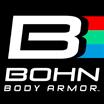
Use code AMAEVS20

Anthony’s
Blendzall AMA members can save 20% at blendzall.com. Use code AMA20 at checkout.


Butler Maps
AMA members receive a 20% discount at butlermaps.com. Use code AMAMEMBER
Cardo Systems
20% discount online with valid AMA membership card.
Colorado
The Dirt Bike Academy 10% exclusive discount on instruction. Learn more at thedirtbikeacademy.com
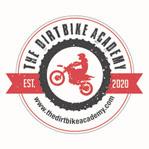


Dowco
EagleRider
For
®
$50 off each bike one way or $100 off round trip or $50 each, multiple bikes, same addresses.
Medjet
Air medical transport and travel security protection – visit Medjet.com/AMACycle or call 1.800.527.7478, referring to American Motorcyclist Association.Annual rates are reduced by 20% and start at $235.
MotoAmerica
20% off 2-day and 3-day passes at select MotoAmerica events. Use discount code AMA20
Motool AMA members can save 10% at motool.co. Use code AMAVIP at checkout.
Risk Racing 15% off products at riskracing.com. Use code AMA15
Rlink
Rlink offers AMA Members 25% off industry leading GPS Security Systems. Use code ama2020rl
Rockwell Time
Heli Bars
Use code AMAM2020 for a 10% AMA Member Exclusive Discount at helibars.com.
Haynes Save an additional 15% on all Haynes & Clymer print and online repair manuals. Use code AMA15 MX Mounts 10% off on our mounts Use AMADiscount at checkout

Helite Moto AMA members get 15% off every order at helitemoto.com.
Use code HELITEAMA
International Motorcycle Shows
Save on advanced adult oneday general admission. Use code AMA20
Legacy Track Dayz 15% discount on Legacy Track Dayz events.
Use code AMARideLTD
Liberty Sport Eyewear 30% discount on all “motorcycle collection” frames. Discount code AMA30.
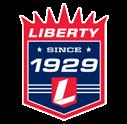
MAD Maps
Save 15%.
Use code AMA15
Matrix Concepts AMA members receive a 25% discount on most products for shop, garage & track necessities at matrixracingproducts.com Use code AMA25
MX Boot Repair 10% discount. Use code AMADISCOUNT



Save 20% on select products. Rockwelltime. com. Use code AMA20

Spot LLC

Exclusive service credit on SPOT Gen3, SPOT Trace or SPOT X device
MYLAPS
20% discount off MSRP or current sales price on weborders or orders coordinated by the AMA. Use code AMA-789HJK
Nelson Rigg 20% AMA Member Exclusive Discount on all products! Use promo code AMA-NR20
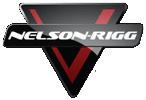
STKR Concepts
15% off products at stkrconcepts.com. Use code AMA15
Street Skills
10% discount on online courses at StreetSkills.net. Use code AMACCOC.
Third Eye Design $25 discount on inView, a wireless brake and signal light. Use code AMA at thirdeyedesigninc.com
US Chrome $30 discount on cylinder plating and dealer pricing on Wiseco, Wossner, ProX and Vertex piston kits.
Quin Design Helmets
10% off crash detection, SOS beacon, Bluetooth communication & more with your new intelligent helmet.
Rider Magazine AMA member exclusive discount: $19.99 for 2 years (24 issues) + 2 extra free issues.
For more information and the most recent listing of AMA Member Benefit Partners and discount codes visit americanmotorcyclist.com/deals-and-discounts




Warm & Safe 20% discount. Use code AMA

ARIZONA
COMING EVENTS
Be sure to check the event website or call the organizer for the latest information, including postponements or cancellations.
Off-Road: Feb. 4. Morristown. Desert Enduro, Fast’R M/C, amraracing.com.
Off-Road: Feb. 5. Bagdad. Bagdad Trial, Central Arizona Trials Inc, centralarizonatrials.org.
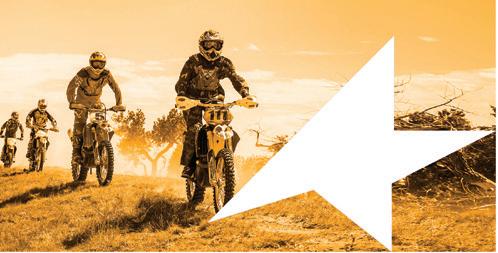
CALIFORNIA
Off-Road: Feb. 12. Shasta Lake City. The DAM Enduro, Redding Dirt Riders, reddingdirtriders.com.
Off-Road: Feb. 18-19. Pacines. Picacho Creek Hare Scramble, Salinas Ramblers M/C, www. salinasramblers.org.
Off-Road: Feb. 25-26. Ridgecrest. Moose Run, Four Aces MC, www.fouracesmc.org.
NEW JERSEY
Dual Sport: Feb. 26. Pemberton. Ice Breaker Dual Sport, South Jersey Enduro Riders, Inc., www. sjer.org.
NEW MEXICO
Motocross: Feb. 24-25. Hobbs. AMA Arenacross Championship Series, AX Promotions, www. arenacrossusa.com.
Motocross: Feb. 26. Hobbs. AMA Arenacross Championship Series, AX Promotions, www. arenacrossusa.com.
NEVADA
Motocross: Feb. 3-4. Reno. AMA Arenacross Championship Series, AX Promotions, www. arenacrossusa.com.
Motocross: Feb. 5. Reno. AMA Arenacross Championship Series, AX Promotions, www.arenacrossusa.com.
PENNSYLVANIA
Motocross: Feb. 18. Harrisburg. 45th Annual Motorama, Trail-Way Speedway, www.motoramaevents.com
Motocross: Feb. 19. Harrisburg. 45th Annual Motorama, Trail-Way Speedway, www.motoramaevents.com.
SOUTH CAROLINA
Dual Sport: Feb. 25. Salley. Sandlapper Dual Sport, Columbia Enduro Riders Assoc, 803-9200452.
TEXAS
Road Ride/Run: Feb. 10. Hondo. St. Valentine’s Day Massacre, Alamo City Gypsy MC, 210-6011932.
Motocross: Feb. 11-12. Alvord. Texas Winter Series, OHR Management LLC, www.oakhillmx.com.
Motocross: Feb. 18-19. Wortham. Texas Winter Series, Freestone County Raceway LLC, www. freestonemx.com.
Motocross: Feb. 24-25. Arlington. Supercross Futures Premier Qualifier, Feld Motorsports, www. supercrossfutures.com.
WISCONSIN
Track Racing: Feb. 11. Fond Du Lac. AMA Ice Oval Grand Championship, Southeastern Short Trackers, LTD, www.dairylandclassic.com.
SUPERCROSS
2023 Monster Energy AMA Supercross Championship supercrosslive.com
Round 5: Feb. 4. Houston, Texas. NRG Stadium
Round 6: Feb. 11. Tampa, Fla. Raymond James Stadium.
Round 7: Feb. 25. Arlington, Texas. AT&T Stadium
Round 8: March 4. Daytona Beach, Fla. Daytona Int’l Speedway
Round 9: March 11. Indianapolis, Ind. Lucas Oil Stadium
Round 10: March 18. Detroit, Mich. Ford Field
Round 11: March 25. Seattle, Wash. Lumen Field
Round 12: April 8. Glendale, Ariz. State Farm Stadium
Round 13: April 15. Atlanta, Ga. Atlanta Motor Speedway
Round 14: April 22. East Rutherford, N.J. Metlife Stadium
Round 15: April 29. Nashville, Tenn. Nissan Stadium
Round 16: May 6. Denver, Colo. Empower Field at Mile High
Round 17: May 13. Salt Lake City, Utah. Rice-Eccles Stadium
Supercross Futures AMA National Championship supercrossfutures.com
May 13. Salt Lake City, Utah. Rice-Eccles Stadium
Supercross Futures Premier Qualifying Events supercrossfutures.com
Feb. 25. Arlington, Texas. AT&T Stadium. April 8. Glendale, Ariz. State Farm Stadium. April 22. East Rutherford, N.J. MetLife Stadium.
MOTOCROSS
2023 Pro Motocross Championship promotocross.com
Round 1: May 27. Pala, Calif. Fox Raceway
Round 2: June 3. Sacramento, Calif. Hangtown Motocross
Round 3: June 10. Lakewood, Colo. Thunder
Valley Motocross Park
Round 4: June 17. Mount Morris, Pa. High Point Raceway
Round 5: July 1. Buchanan, Mich. RedBud MX
Round 6: July 8. Southwick, Mass. The Wick 338
Round 7: July 15. Millville, Minn. Spring Creek
MX Park
Round 8: July 22. Washougal, Wash. Washougal
MX Park
Round 9: Aug 12. New Berlin, N.Y.
Unadilla MX
Round 10: Aug 19. Mechanicsville, Md.
Budds Creek Motocross Park
Round 11: Aug 26. Crawfordsville, Ind. Ironman Raceway
NATIONAL CHAMPIONSHIPS
AMA Arenacross National Championship
Series arenacrossusa.com
Round 7: Feb. 3-5. Reno, Nev.
Round 8: Feb. 10-12. Denver, Colo.
Round 9: Feb. 24-26. Hobbs, N.M.
Round 10: March 3-5. Amarillo, Texas.
Round 11: March 10-12. Tulsa, Okla.
Round 12: March 17-19. Salem, Va.
Round 13: March 24-26. Little Rock, Ark.
Round 14: March 30-April 2. Lexington, Ky.
AMA Amateur National Motocross Championship, mxsports.com
July 31-Aug. 5. Hurricane Mills, Tenn. Loretta Lynn Ranch
Northeast Area Qualifiers
March 11-12. Sutherlin, Va. Birch Creek Motorsports Park.
March 25-26. Hedgesville, W. Va. Tomahawk MX.
April 1-2. Shippensburg, Pa. Doublin Gap MX.
April 8-9. Southwick, Mass. The Wick 338.
April 22-23. Mount Morris, Pa. High Point Raceway.
April 29-30. Seward, Pa. Pleasure Valley Raceway.
May 6-7. Wallkill, N.Y. Walden Motocross.
May 13-14. Birdsboro, Pa. Pagoda MX.
Northeast Regionals
Amateur: June 9-11. Mechanicsville, Md. Budds Creek.
Youth: June 23-25. New Berlin, N.Y. Unadilla MX.
Southeast Area Qualifiers
Feb. 18-19. Newberry, Fla. Diamond Back MX.
Feb. 25-26. Hamer, S.C. South of the Border MX.
March 25-26. Washington, Ga. Aonia Pass MX
April 1-2. Tallassee, Ala. Monster Mountain MX Park.
April 22-23. Henderson, N.C. North Carolina Motorsports Park.
April 29-30. Lizella, Ga. Echeconnee MX.
May 6-7. Dalton, Ga. Lazy River MX.
May 13-14. Axton, Va. Lake Sugar Tree Motorsports Park.
Southeast Regionals
Youth: May 26-28. Blountville, Tenn. Muddy Creek.
Amateur: June 2-4. Alachua, Fla. Gatorback Cycle Park.
Mid-East Area Qualifiers
March 18-19. Altamont, Tenn. Fast Farms MX Park.
March 25-26. Kingsbury, Ind. Motoland.
April 1-2. Bronson, Mich. Log Road MX.
April 15-16. Rossville, Ind. Wildcat Creek MX.
April 22-23. Chillicothe, Ohio. ChilliTown MX.
April 29-30. Bloomingdale, Mich. Dutch Sport Park
May 6-7. Nashport, Ohio. Briarcliff MX.
May 13-14. Sebree, Ky. Echo Valley MX.
Mid-East Regionals
Amateur: June 2-4. Buchanan, Mich. RedBud MX.
Youth: June 9-11. Millington, Mich. Baja Acres.
North Central Area Qualifiers
April 1-2. Washington Park, Ill. Archview MX Park.
April 15-16. Winterset, Iowa. Riverside Raceway.
April 22-23. Walnut, Ill. Sunset Ridge MX.
April 29-30. Byron, Ill. Byron Motorsports Park.
May 6-7. Tigerton, Wis. Motozone.
May 13-14. Little Falls, Minn. Little Falls Raceway.
May 13-14. Maize, Kan. Bar 2 Bar MX.
May 20-21. Du Quoin, Ill. Indian Hills.
North Central Regionals
Amateur: June 9-11. Millville, Minn. Spring Creek.
Youth: June 16-18. Casey, Ill. Lincoln Trail Motosports.
South Central Area Qualifiers
Feb. 18-19. Kentwood, La. Wildwood MX.
March 4-5. Amarillo, Texas. Bowers MX.
March 25-26. Lakewood, Colo. Thunder Valley Motocross Park.
April 1-2. Grand Cane, La. Desoto Motorsports Park.
April 8-9. Conroe, Texas. 3 Palms Action Sports Park.
April 15-16. Alvord, Texas. Oak Hill Raceway.
April 29-30. Tyler, Texas. Swan MX Raceway Park.
May 6-7. Wellston, Okla. Reynard Raceway.
South Central Regionals
Amateur: May 26-28. Wortham, Texas. Freestone Raceway.
Youth: June 23-25. Ponca City, Okla. Ponca City.
Northwest Area Qualifiers
Feb. 26. Marysville, Calif. Riverfront MX Park.
March 19. Delta, Utah. Bunker Hill.
April 15-16. West Richland, Wash. Horn Rapids Motorsports Complex.
April 22. Tulare, Calif. DT-1 MX Park.
April 29-30. Kuna, Idaho. Skyline MX Park.
Northwest Regional Youth/Amateur: May 26-28. Washougal, Wash. Washougal MX Park.
Midwest Area Qualifiers
Feb. 18. Littlefield, Ariz. Mesquite Motocross Park.
Feb. 25. Marysville, Calif. Riverfront MX Park.
March 18. Delta, Utah. Bunker Hill.
April 1. Porterville, Calif. Porterville OHV Park.
Midwest Regional
Youth/Amateur: June 9-11. Rancho Cordova, Calif. Prairie City OHV.
Southwest Area Qualifiers
Feb. 12. Buckeye, Ariz. Arizona Cycle Park.
Feb. 19. Littlefield, Ariz. Mesquite Motocross Park.
March 25. Turlock, Calif. Oatfield Raceway.
April 2. Porterville, Calif. Porterville OHV Park.
May 13. Pala, Calif. Fox Raceway.
May 20-21. Moriarty, N.M. Moriarty MX.
Southwest Regional Youth/Amateur: June 2-4. Pala, Calif. Fox Raceway.
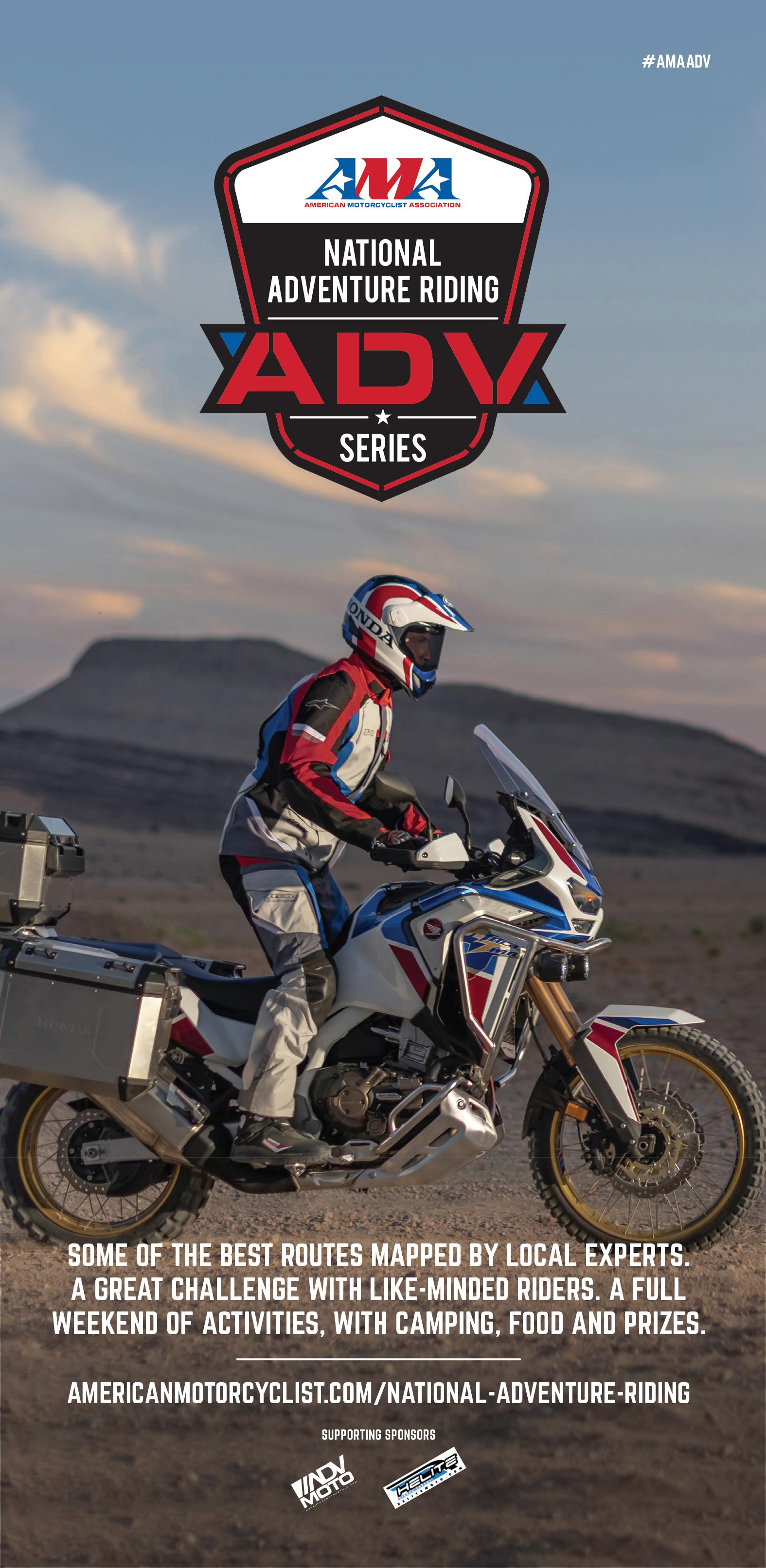
AMA ATV Motocross National Championship Series, atvmotocross.com
Round 1: March 7. Daytona Beach, Fla. Daytona International Speedway.
COMING EVENTS
Be sure to check the event website or call the organizer for the latest information, including postponements or cancellations.
Round 2: March 18-19. Alachua, Fla. Gatorback Cycle Park.
Round 3: April 8-9. Kemp, Texas. Underground MX Park.
Round 4: April 29-30. Mount Morris, Pa. High Point Raceway.
Round 5: May 13-14. Crawfordsville, Ind. Ironman Raceway.
Round 6: May 27-28. Walnut, Ill. Sunset Ridge MX
Round 7: June 17-18. Mechanicsville, Md. Budds Creek Raceway.
Round 8: July 1-2. Seward, Pa. Pleasure Valley Raceway.
Round 9: July 22-23. Nashport, Ohio. Briarcliff MX.
Round 10: Aug. 12-13. Hurricane Mills, Tenn. Loretta Lynn Ranch.
MAJOR EVENTS
James Stewart Freestone Spring Championship
March 9-12. Wortham, Texas. Freestone County Raceway. (713) 962-3386. freestonemx.com
FEATURED EVENTS OR SERIES
AMA Texas Winter Series
AMA Texas Winter Series – Round 4: Feb. 11-12. Alvord, Texas. Oak Hill Raceway. (940) 577-2225. oakhillmx.com
AMA Texas Winter Series – Round 5: Feb. 18-19. Wortham, Texas. Freestone County Raceway. (713) 962-3386. freestonemx.com
Spring A Ding Ding
Spring A Ding Ding: March 13-18. Kemp, Texas. Underground MX. (816) 582-4113. springadingding. com
PRO-AM EVENTS
Pro-Am Schedule
AMA Texas Winter Series – Round 4: Feb. 11-12. Alvord, Texas. Oak Hill Raceway. (940) 577-2225. oakhillmx.com
AMA Texas Winter Series – Round 5: Feb. 18-19. Wortham, Texas. Freestone County Raceway. (713) 962-3386. freestonemx.com
James Stewart Freestone Spring Championship: March 9-12. Wortham, Texas. Freestone County Raceway. (713) 962-3386. freestonemx.com
Spring A Ding Ding: March 13-18. Kemp, Texas. Underground MX. (816) 582-4113. springadingding. com
Mega Series Opener: March 19. Blountville, Tenn. Muddy Creek Raceway. (423) 323-5497. victorysports.com
TRACK RACING
2023 MotoAmerica Superbike Championship motoamerica.com
March 9-11: Daytona Beach, Fla. Daytona 200. Daytona International Speedway
Round 1: April 21-23. Atlanta, Ga., Road Atlanta
Round 2: May 19-21. Leeds, Ala. Barber Motorsports Park
Round 3: June 2-4. Elkhart Lake, Wis. Road
America
Round 4: June 23-25. Shelton, Wash. Ridge
Motorsports Park
Round 5: July 7-9. Monterey, Calif. Weathertech
Raceway Laguna Seca
Round 6: July 29-31. Brainerd, Minn. Brainerd
International Raceway
Round 7: Aug. 18-20. Wampum, Pa. Pittsburgh
International Race Complex
Round 8: Sept. 8-10. Austin, Texas. Circuit of the Americas
Round 9: Sept. 22-24. Millville, N.J. New Jersey Motorsports Park
2023 Progressive American Flat Track americanflattrack.com
Round 1: March 9. Daytona Beach, Fla.
DAYTONA Flat Track I. Short Track
Round 2: March 10. Daytona Beach, Fla.
DAYTONA Flat Track II. Short Track
Round 3: March 25. Senoia, Ga. Senoia Raceway. Short Track
Round 4: April 1. Phoenix, Ariz. TBA (Arizona Bike Week) Track type TBA
Round 5: April 22. Mesquite, Texas. Devil’s Bowl Speedway. Half-Mile
Round 6: May 6. Ventura, Calif. Ventura Raceway. Short Track
Round 7: May 13. Sacramento, Calif. Cal Expo. Mile
Round 8: May 27. Lexington, Ky. The Red Mile. Mile
Round 9: June 3. TBA, Va. Virginia. Half-Mile
Round 10: June 17. Du Quoin, Ill. Du Quoin State Fairgrounds. Mile
Round 11: June 24. Lima, Ohio. Allen County Fairgrounds. Half-Mile
Round 12: July 8. Middletown, N.Y. Orange County Fair Speedway. Half-Mile
Round 13: July 22. Bridgeport, N.J. Bridgeport Speedway. Half-Mile
Round 14: July 30. Peoria, Ill. Peoria Motorcycle Club. TT
Round 15: Aug. 6. Sturgis, S.D. Buffalo Chip. TT
Round 16: Aug. 12. Castle Rock, Wash. Castle Rock Race Park. TT
Round 17: Sept. 2. Springfield, Ill. Illinois State Fairgrounds. Mile I
Round 18: Sept. 3. Springfield, Ill. Illinois State Fairgrounds. Mile II
NATIONAL CHAMPIONSHIPS
AMA Ice Race Grand Championship – Oval
Youth Motorcycle/ATV/Sidecar Classes: Feb. 4. Alpena, Mich. Long Lake Amateur Motorcycle Classes: Feb. 11. Fond Du Lac, Wis. Sunset on the Water dairylandclassic.com
2023 Mission Foods AMA Flat Track Grand Championship americanmotorcyclist.com/flat-track-racing
June 14-20. Du Quoin, Ill. Du Quoin State Fairgrounds
OFF-ROAD
NATIONAL CHAMPIONSHIPS
Grand National Cross Country Championship, gnccracing.com
Round 1: Big Buck – Feb. 18-19. Union, S.C. Big Buck Farm.
Round 2: Wild Boar – March 4-5. Palatka, Fla. Hog Waller.
Round 3: The General – March 10-12. Washington, Ga. Aonia Pass MX.
Round 4: April 1-2. TBD.
Round 5: Camp Coker Bullet – April 15-16. Society Hill, S.C. Moree’s Sportsman’s Preserve.
Round 6: Hoosier – May 6-7. Crawfordsville, Ind. Ironman Raceway.
Round 7: The John Penton – May 20-21. Millfield, Ohio. Sunday Creek Raceway.
Round 8: Mason-Dixon – June 3-4. Mount Morris, Pa. Mathews Farm.
Round 9: Snowshoe – June 23-25. Snowshoe, W. Va. Snowshoe Mountain Resort.
Round 10: The Mountaineer – Sept. 15-17. Beckley, W. Va. Summit Bechtel Reserve.
Round 11: Buckwheat 100 – Oct. 6-8. Newburg, W. Va. CJ Raceway.
Round 12: Ironman – Oct. 20-22. Crawfordsville, Ind. Ironman Raceway.
AMA National Grand Prix Championship Series, ngpcseries.com
Round 2: Feb. 3-5. Taft, Calif.
Round 3: Feb. 18-19. Blythe, Calif.
Round 4: March 3-5. San Bernardino, Calif.
Round 5: April 1-2. 29 Palms, Calif.
Round 6: April 29-30. Primm, Nev.
Round 7: May 19-21. Delta, Utah.
Round 8: Aug. 18-20. Preston, Idaho.
Round 9: Sept. 30-Oct. 1. Ridgecrest, Calif.
Round 10: Nov. 10-12. Lake Havasu, Ariz.
AMA National Hare and Hound Championship Series, nationalhareandhound.com
Round 2: March 18-19. Murphy, Idaho.
Round 3: April 1. Jericho, Utah.
Round 4: April 22. Jericho, Utah.
Round 5: Sept. 9. Panaca, Nev.
Round 6: Oct. 21-22. Lucerne Valley, Calif.
AMA National Enduro Championship Series, nationalenduro.com
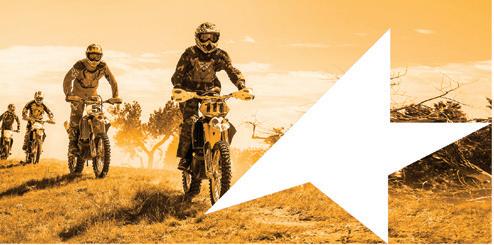
Round 1: Sumter National – Feb. 5. Wedgefield, S.C. Manchester State Forest. (803) 968-4801. serma.club.com
Round 2: Caprock Canyon National –March 19. Turkey, Texas. (806) 679-5737. postenduroassociation.org
Round 3: Black Buffalo National – April 23. Kingston, Ark. (479) 841-9174. wildernessrider.com
Round 4: Dragons Back National – May 14. Arrington, Va. (757) 357-5665. oakridgeestate.com
Round 5: Cherokee National – June 11. Greensboro, Ga. (770) 540-2891
cherokeeenduroriders.com
Round 6: Rattlesnake National – July 23. Cross Fork, Pa. (610) 883-7607. ber.us
Round 7: Little Raccoon National – Sept. 10. Wellston, Ohio. (740) 357-0350. adrohio.org
Round 8: Muddobbers National – Oct. 1. Matthews, Ind. (765) 998-2236. muddobbersmc.org
Round 9: Gobbler Better National –Oct. 29. Stanton, Ala. (334) 267-2463. perrymountainmotorcycleclub.com
REGIONAL CHAMPIONSHIPS
AMA US Sprint Enduro Championship, ussprintenduro.com
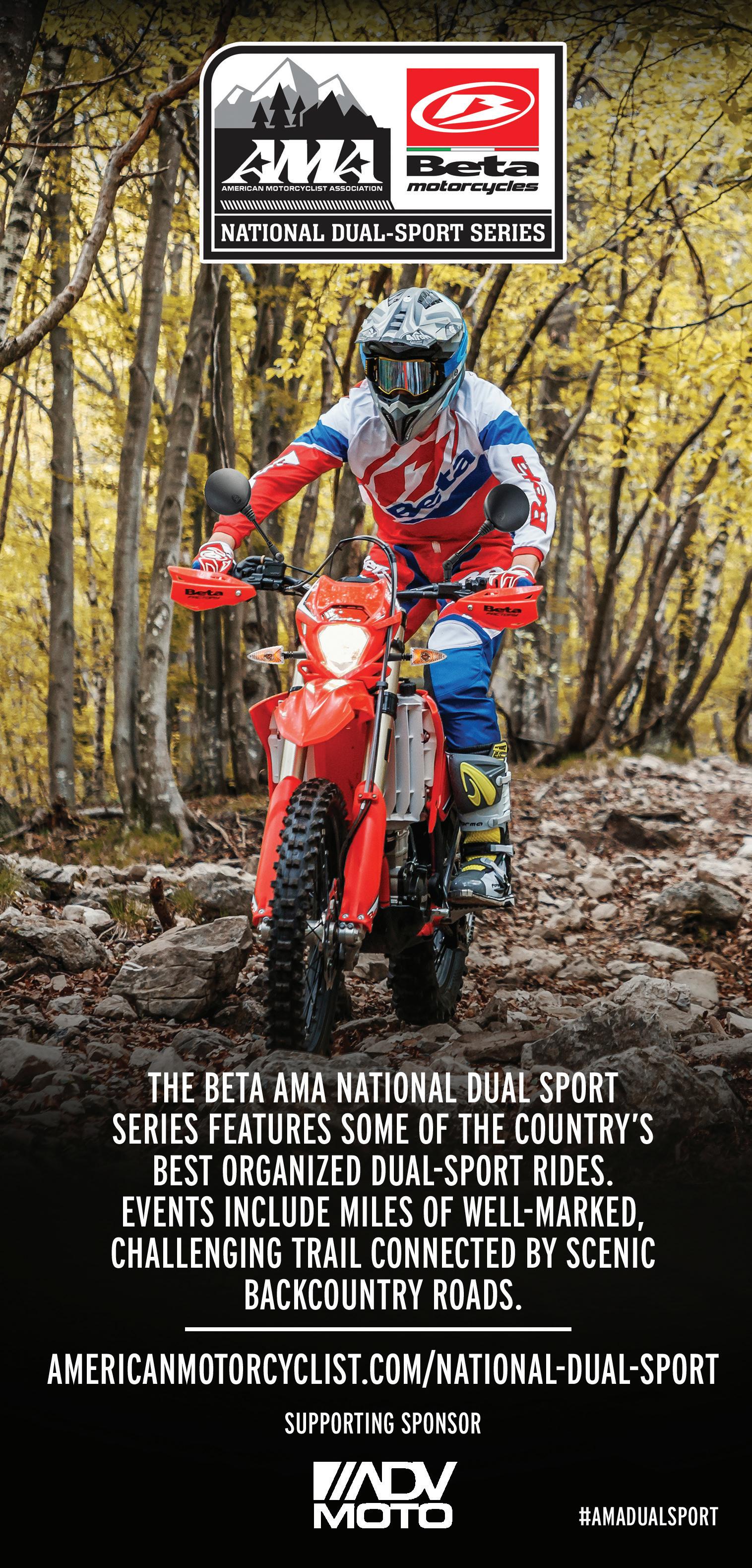
Round 2: Feb. 11-12. Hephzibah, Ga.
Round 3: Feb. 25-26. Winnsboro, S.C. Carolina
Adventure World.
Round 4: March 25-26. Alton, Va. Virginia International Raceway.
Round 5: April 8-9. Arvonia, Va.
Round 6: April 29-30. Oldtown, Md. Promised
Land MX.
Round 7: May 27-28. Dilliner, Pa. High Voltage.
Round 8: June 17-18. Bristol, Va. Harleywood.
AMA West Extreme Off-Road Championship, ushardenduro.com
Round 2: March 11-12. Haleiwa, Hawaii.
Round 3: March 25-26. Page, Ariz.
Round 4: April 1-2. Lubbock, Texas.
Round 5: June 17-18. Norden, Calif.
Round 6: June 22-24. Kellogg, Idaho.
AMA East Extreme Off-Road Championship, ushardenduro.com
Round 1: April 22-23. Taylorsville, N.C.
Round 2: May 6-7. Little Hocking, Ohio.
Round 3: May 27-28. Tamaqua, Pa.
Round 4: May 29. Sugarloaf, Pa.
FEATURED EVENTS OR SERIES
AMA Florida Enduro Championship Series floridatrailriders.org
Feb. 26. Richloam, Fla. Central Florida Trail Riders, (407) 929-2114, president@ centralfloridatrailriders.org.
March 9. Ormond Beach, Fla. Daytona Dirt Riders (386) 615-0722 , secretary4ddr@gmail.com.
June 4. Greensboro, Ga. Cherokee Enduro Riders, (678) 572-7260, hill6164@bellsouth.net.
STATE CHAMPIONSHIPS
AMA Florida State Hare Scrambles Championship Series floridatrailriders.org
Feb. 4-5. Indiantown, Fla., Treasure Coast Trail Riders, (772) 801-9777, luisabx@hotmail.com.
March 18-19. Dade City, Fla., Nature Coast Trail Blazers, (813) 731-0619, rswann222@gmail.com.
Apr. 1-2. Okeechobee, Fla., Big “O” Trail Riders, (863) 532-1952.
COMING EVENTS
Be sure to check the event website or call the organizer for the latest information, including postponements or cancellations.
Trail Riders. (704) 309-3271 carolinadualsporters. com/2023-pineola-blue-ridge-adventure-ride
Sept. 16-17. Buffaloe 500. Columbus, Ind. Stoney Lonesome Motorcycle Club. (812) 342-4411 stoneylonesomemc.com
Sept. 23-24. Big Woods 200. Wabeno, Wis. Wisconsin Dual Sport Riders. (920) 350-2030 widualsportriders.org
Enduro Riders of Ohio. (740) 972-4214. enduroriders.com
July 15-16. Copperhead. Logan, Ohio. Hocking Valley Motorcycle Club. (614) 425-1943 hockingvalleymc.com
Oct. 14-15. Fire Works and Fire Hoses. Langsville, Ohio. Enduro Riders of Ohio. (740) 506-1288. enduroriders.com
2023 AMA National Adventure Riding Series americanmotorcyclist.com/national-adventureriding
March 4-5. Santa Rosa National Adventure Ride. Milton, Fla. Appalachian Trail Riders. (704) 3093271, usdualsporters.com
April 21-23. Perry Mountain Tower Run. Stanton, Ala. Perry Mountain Motorcycle Club. (334) 3275086 perrymountainmotorcycleclub.com
May 5-7. Shasta ADV Rally. Redding, Calif. Redding Dirt Riders. (530) 227-1581 reddingdirtriders.com
May 20-21. Show Me 500. Bixby, Mo. Midwest Trail Riders Association. (314) 409-6936 ridemtra.com
June 3-4. Durty Dabbers Great Adventure. Lock Haven, Pa. Durty Dabbers Motorcycle Club. (570) 748-9456 durtydabbers.com
June 10-11. Ride for Research. Wabeno, Wis. Wisconsin Dual Sport Riders. (920) 350-2030 widualsportriders.org
Sept. 9-10. Blue Ridge. Pineola, N.C. Appalachian
Oct. 14-15. Fire Works and Fire Hoses. Langsville, Ohio. Enduro Riders of Ohio. (740) 506-1288. enduroriders.com
Oct. 28-29. Cross-Florida Adventure. Daytona Beach, Fla. Dixie Dual Sport. (727) 919-8299 dixiedualsport.com
Nov. 24-25. LA – Barstow to Vegas. Palmdale, Calif. AMA District 37 Dual Sport. (626) 684-2336 labarstowvegas.com
Sept. 9-10. LBL 200. Golden Pond, Ky. Thomas Brothers Promotions (KT Riders). (270) 350-6324. lbl200.com
Sept. 16-17. Buffaloe 500. Columbus, Ind. Stoney Lonesome Motorcycle Club. (812) 342-4411 stoneylonesomemc.com
Sept. 23-24. Mountain Madness. Flagstaff, Ariz. Coconino Trail Riders. (928) 225-5365 coconinotrailriders.org
Sept. 23-24. Big Woods 200. Wabeno, Wis. Wisconsin Dual Sport Riders. (920) 350-2030 widualsportriders.org
Nov. 4-5. Howlin’ at the Moon. Prescott Valley, Ariz. Arizona Trail Riders. (602) 692-9382 arizonatrailriders.org
2023 Beta AMA National Dual Sport Series americanmotorcyclist.com/national-adventureriding
March 3-5. Devil’s Creek. Brooksville, Fla. Dixie Dual Sport. (727) 919-8299 dixiedualsport.com
April 21-23. Perry Mountain Tower Run. Stanton, Ala. Perry Mountain Motorcycle Club. (334) 3275086 perrymountainmotorcycleclub.com
May 5-7. Shasta ADV Rally. Redding, Calif. Redding Dirt Riders. (530) 227-1581 reddingdirtriders.com
May 20-21. Show Me 200. Bixby, Mo. Midwest Trail Riders Association. (314) 409-6936 ridemtra.com
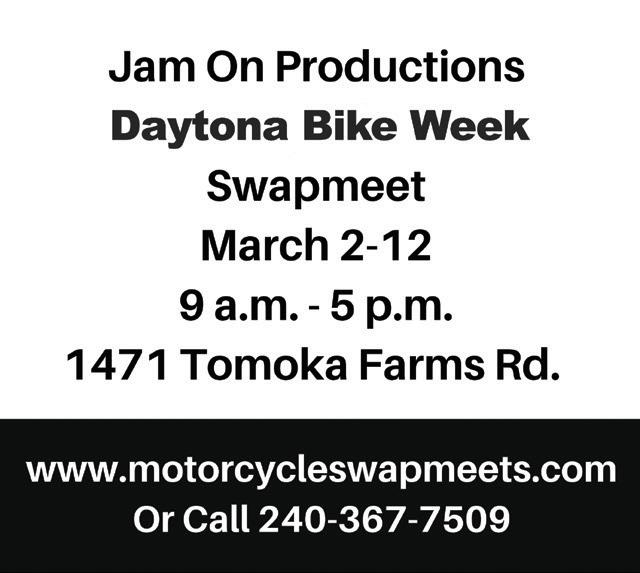
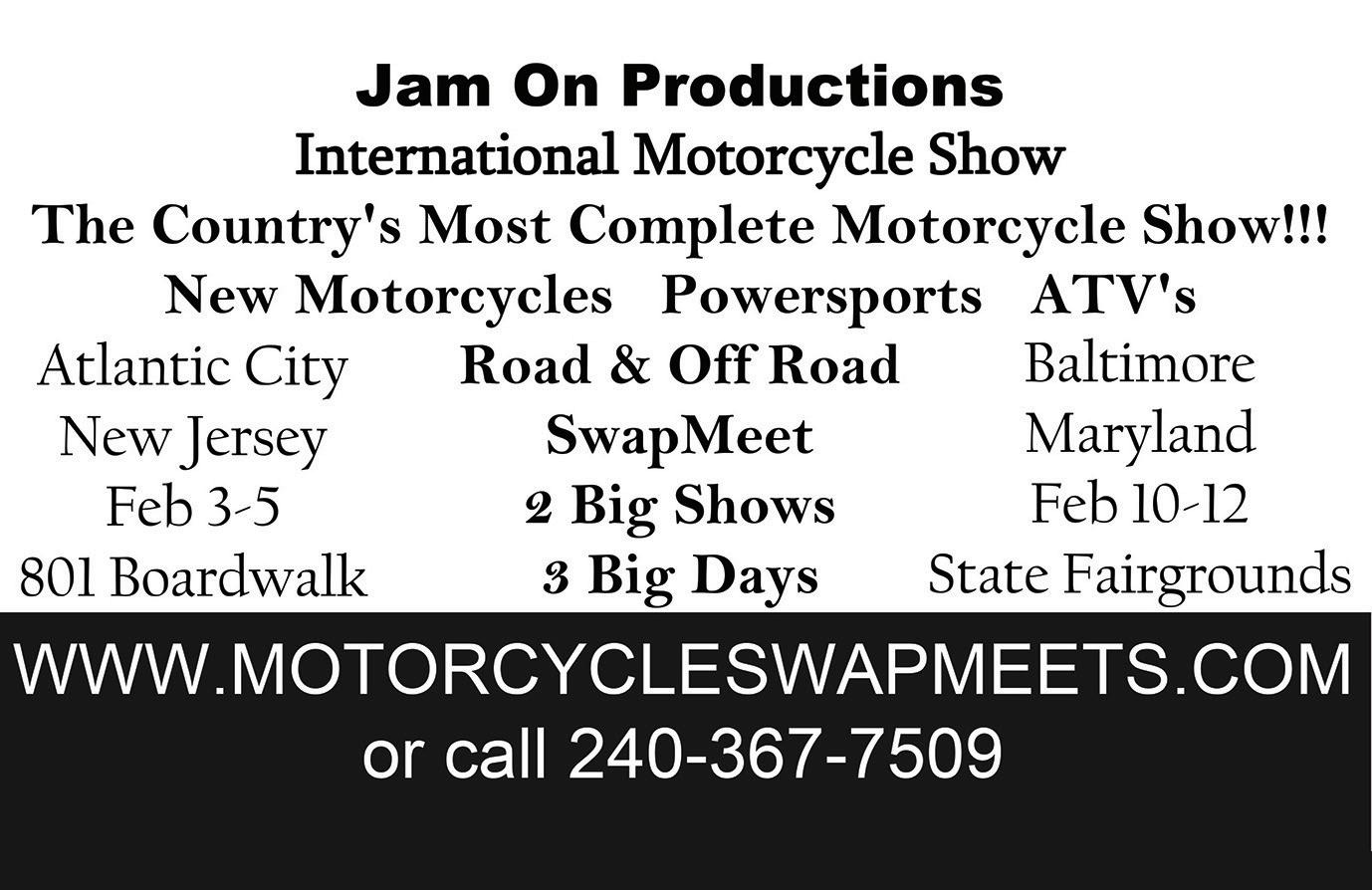
June 3-4. Durty Dabbers Great Adventure. Lock Haven, Pa. Durty Dabbers. (570) 748-9456 durtydabbers.com
June 10-11. Ride for Research. Wabeno, Wis. Wisconsin Dual Sport Riders. (920) 350-2030 widualsportriders.org
June 24-25. Baby Burr. New Plymouth, Ohio.
Nov. 4-5. Hammer Run. Port Elizabeth, N.J. TriCounty Sportsmen M.C. Inc. teamhammer.org
Nov. 24-25. LA – Barstow to Vegas. Palmdale, Calif. AMA District 37 Dual Sport. (626) 684-2336 labarstowvegas.com

MARKETPLACE
AMA Trademarks
The following represents active, registered trademarks,trademarks and service marks of American Motorcyclist Association, Inc. (AMA). Usage of any AMA trademark or registered trademark without our permission is prohibited. Please contact jholter@ama-cycle.org for more information or assistance, (800) AMA-JOIN® • AMA Dragbike® •AMA Endurocross® • AMA


Motorhead® • AMA Pro Grand National Championship® • AMA Pro Racing® • AMA Race Center™ • AMA Racer® • AMA Racing® • AMA Racing Land Speed Grand Championships® • AMA Supermoto® • AMA Supercross® AMA SX Lites® • AMA U.S. ISDE Team™ • AMA U.S. Jr. Motocross Team™ • AMA U.S. Motocross Team™ Amateur National Motocross Championships® • American Motorcyclist Association®
Arenacross® • ATV Hare Scrambles National Championship Series® • ATV Motocross National Championship Series® • Flat Track Grand Championships™ • Grand National Enduro Championship® • Gypsy Tour® Hare & Hound National Championship Series® • Hare Scrambles Championship Series® • Hare Scrambles National Championship Series®
• Kids Just Want To Ride® • Motorcycle Hall of Fame® • Motorcycle Hall of Fame Museum® • Motorcyclist of the Year®


• Motostars® • National Adventure Riding Series® • National Dual-Sport Series® National Enduro Championship Series® •
Protect Your Right to Ride® • Protecting Your Right to Ride® • Ride Straight® • Rights. Riding. Racing.® • Road Race Grand Championships® • Vintage Grand Championships® • Vintage Motorcycle Days® • Vote Like A Motorcyclist®



Gar age
Tips,Tweaks, Fixes and Facts: The two-wheeled ownership experience, explained
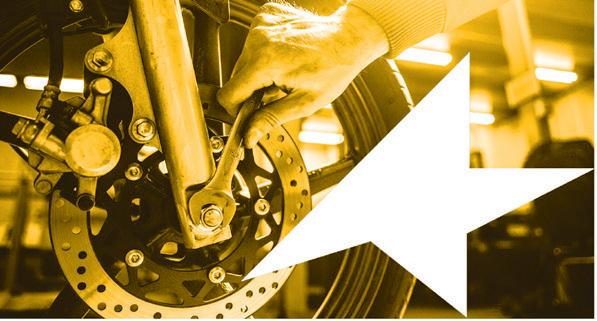
STREET
SAVVYRIDING IN A WINTER WONDERLAND
AMA members and enthusiasts weigh in on winter riding

Mention the the words “winter riding” to most motorcyclists and a majority will probably think sunny Florida, California or Arizona, places where winter is usually the best time to ride. But when we asked our readers, members and social media followers if they rode during the wintry wintertime, and to share their best winter riding tips, we were surprised how many got back to us with a “yes” and to find that many do bundle up for some two-wheel therapy even when the weather outside is frightful.
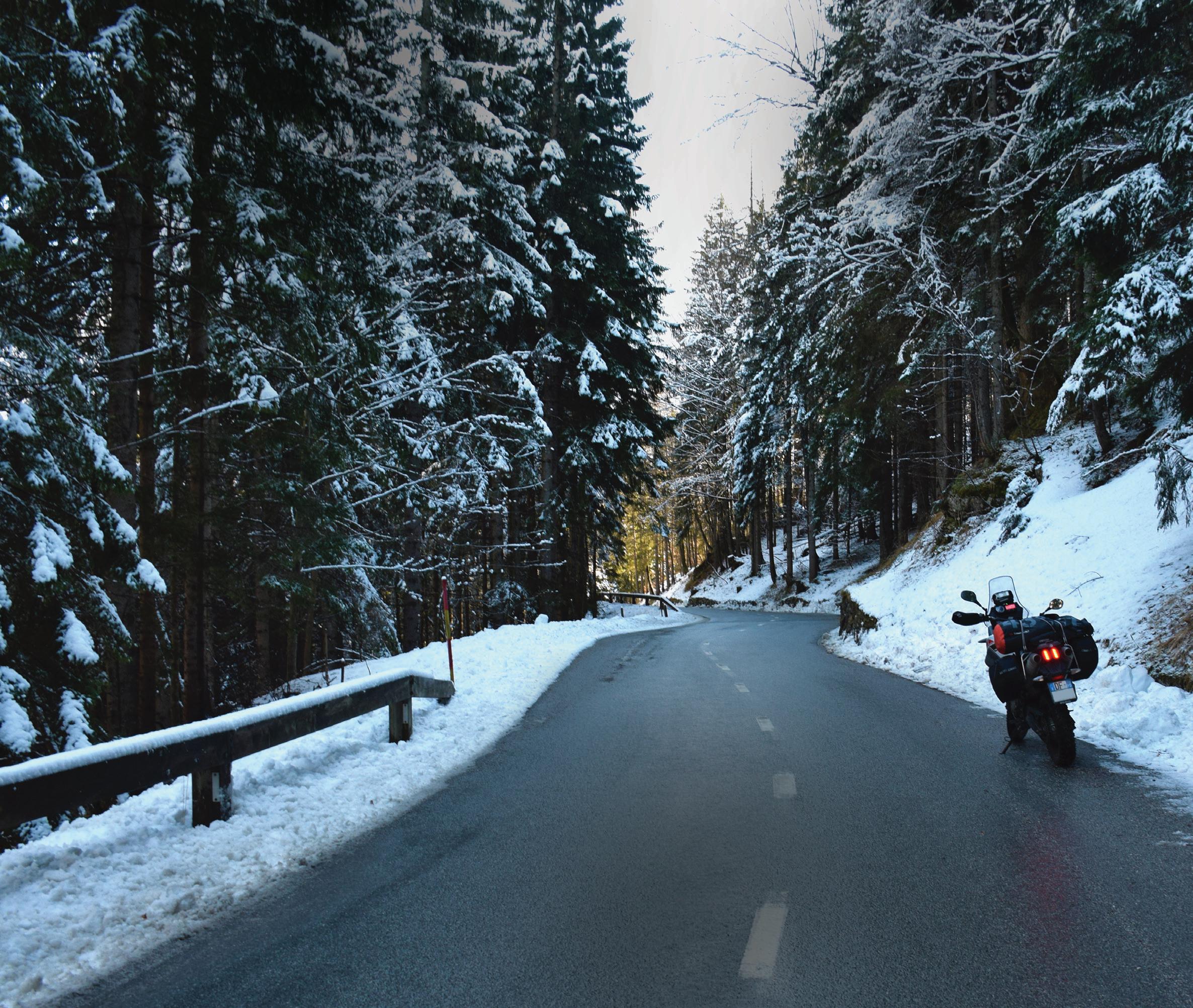
Here are some of the most helpful — and humorous! — responses:
—Joy BurgessCold pavement is perfectly fine for riding, even at a semi-spirited pace if you’re smooth with the throttle and brakes, and your tires are in good shape — and appropriate for decent cornering. But moisture is your enemy in cold weather, so be as aware of it as humanly possible. Not always easy to do, I realize. I once came around a corner on my old XS650 Yamaha and found the entire lane frozen from ice that had melted the previous day and re-froze overnight; I was ice skating there for a few seconds, but luckily reached the other side without crashing.
Shaun SorensenI live in northern New Jersey and ride on the weekends if there’s no salt and conditions allow. Electric gear makes all the difference, along with heated grips.
Roger VreelandBack in the 1980s my husband rode from Weeksville, N.C., to Norfolk, Va., year-round no matter what the weather was like. You don’t tell the Navy that you’re not coming in because of snow and ice. That was 58 miles each way.
Alexis PohlHeated grips are a must! The headlight and fork are out in front
taking all the cold air and channeling it right into your hands.
Brett HatfieldDress warm when you’re riding in the winter and be smooth. I’ve found my way into more than one snowstorm along the way.
Mikki HagemanJust because it’s nice where you’re starting the ride doesn’t mean it’s nice where you’re going. You never know when you will hit some weather along the way. For winter riding, and much like rain riding, avoid excessive leans, keep the bike as upright as possible through the corners, and remember
“What’s your point?”
that smooth acceleration and braking are essential. Most importantly, don’t be in a hurry.
Ian HadleyBack in 1984 and every year thereafter I used to ride in the AMA District 2 Polar Bear. Back then, there were no electrics…just layers upon layers. At a standstill it was -5 degrees. Those were the good ’ol days!
Pete HefeleKnow the road conditions! For me, with a street bike, if there’s any chance of icy roads, my bike stays home.

 Jerry Buckley
Jerry Buckley
I live in eastern Washington and once went down on black ice, so I don’t ride in the winter anymore. Luckily, I was going slow around a curve and had a fairing that protected my leg once the bike was down. No fun!
Scot BockstruckYes, I ride in the winter, but it never gets below 40 degrees here in Phoenix. This is prime riding weather around here. My question is, during the summer, do you ride in 120+-degree temps? I know people
that put their bike up for the summer!
Justin LeonardAbout 26 years ago I was riding in -8-degree weather. If you’re going to ride in the winter, warm the bike up, know the road well, and be aware of where snow melt will thaw and refreeze. While out on that ride a van pulled out in front of me. When it got to the stop sign it didn’t move, so I thought the driver was having trouble. But when I pulled up next to him, he got out, began bowing down to me and muttering, “I’m not worthy, I’m not worthy.”
Steve GabbertWe’ve ridden more than 116,000 miles through every type of weather. But mostly we like the cold!
 Cody Mosteller
Cody Mosteller
I rode through Canada and the Cascade mountains a few years ago, which was spectacular in the winter. As long as you’re well rigged with warm clothes, layers and waterproofs to stop the wind chill, it’s fine. Your biggest enemy is black ice on the road surface. Ride very cautiously using gears and engine braking to slow down, and be gentle with the brakes so as not to lock up your wheels.
 Joseph Barker
Joseph Barker
LAST PAGE
AMERICAN HONDA’S GROUND ZERO

Pico Blvd. in LA, where it all started for Honda Motor Company in America
Back in March of 2019, before all the COVID craziness, American Honda got extra creative with the media launch of its then-new Super Cub C125 by returning to the exact place Soichiro Honda’s fledgling company first set down roots in America back in 1959 — specifically, 4077 Pico Blvd. in Los Angeles.
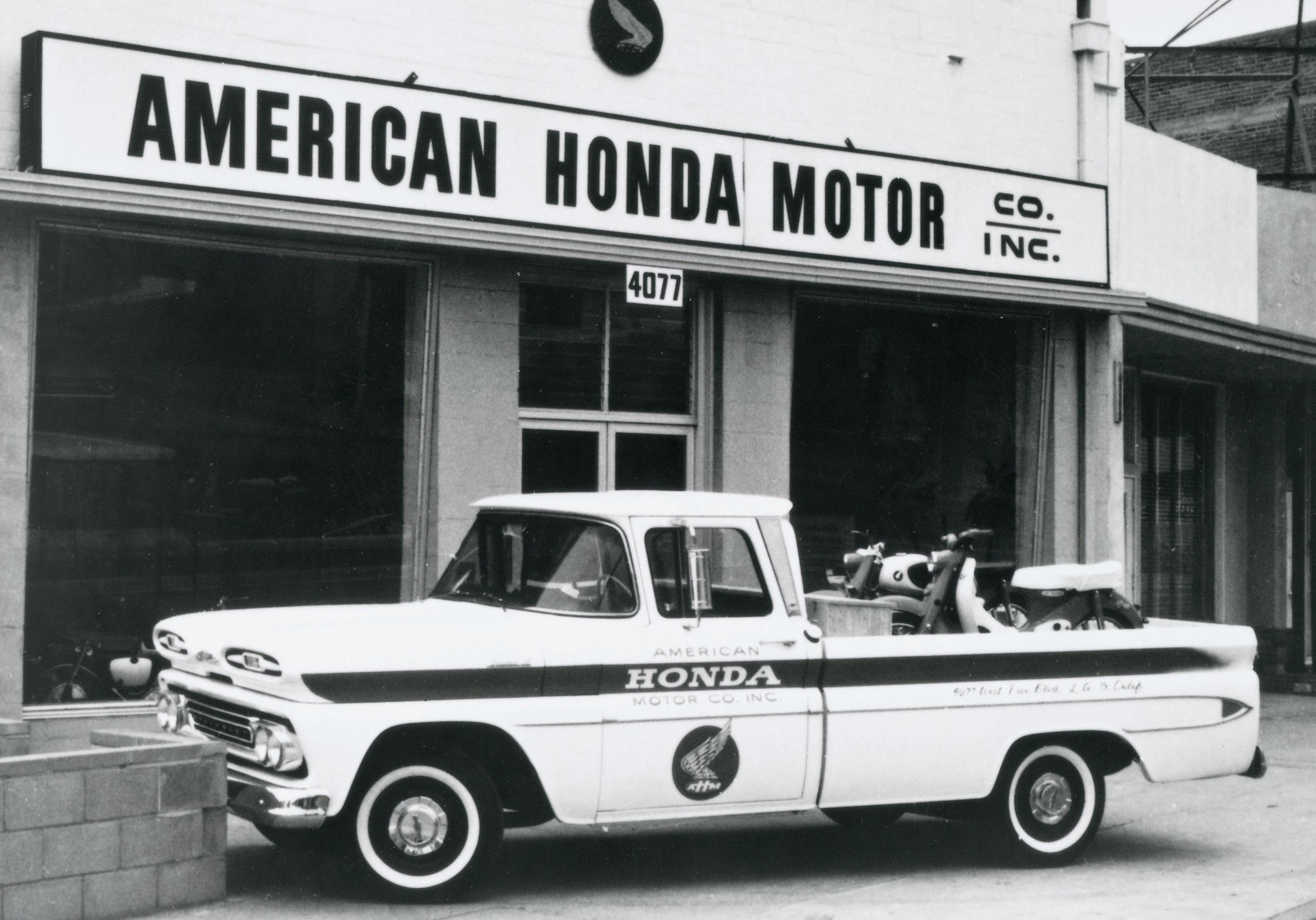
Drive by there today and AH’s original home is the most innocuous little place you can imagine…an acupuncture and herbology shop, actually, and very small. Heck, there were only eight employees in those early days.
But for a couple days in March of 2019 it was transformed — sorta — into the tiny little storefront it was back in ’59, with temporary vintage signage and even a custom Honda Ridgeline pickup — painted just like the Chevy
Ranchero some of those first eight Honda employees used to transport bikes back in the day — parked out front with a new Super Cub in the bed.
I grew up with Hondas (my first two bikes were a ’71 SL70 and ’73 XR75), so standing in the shadow of the reworked façade that recalled a time when Honda was basically an unknown Asian quantity straining to hawk a handful of unique-looking and -named motorcycles at established motorcycle shops, sporting goods outlets and hardware stores, was powerfully eerie.
It’s true that Soichiro Honda was a bit of a tyrant, a hard-working, hard-drinking, self-made engineer that pushed his employees to the limits and someone who’d never fit with today’s snowflake-’n’-cancel cul-

ture. But he was a true legend, with motorcycles and with autos, and the mark he made on the motoring world will never fade.
I met the man only once, back in 1990, but standing there on that day, I almost felt like I had gotten to say hello again.
Mitch BoehmEXCEEDS ALL OEM SPECIFICATIONS
RACE PROVEN FOR USE IN ALL MOTORCYCLE BRANDS

Maxima 4-stroke engine oils meet or exceed the requirements set forth in your motorcycle owners manual For use in all motorcycle brands: Kawasaki, Yamaha, Honda, Suzuki, KTM, Husqvarna, GasGas and more.
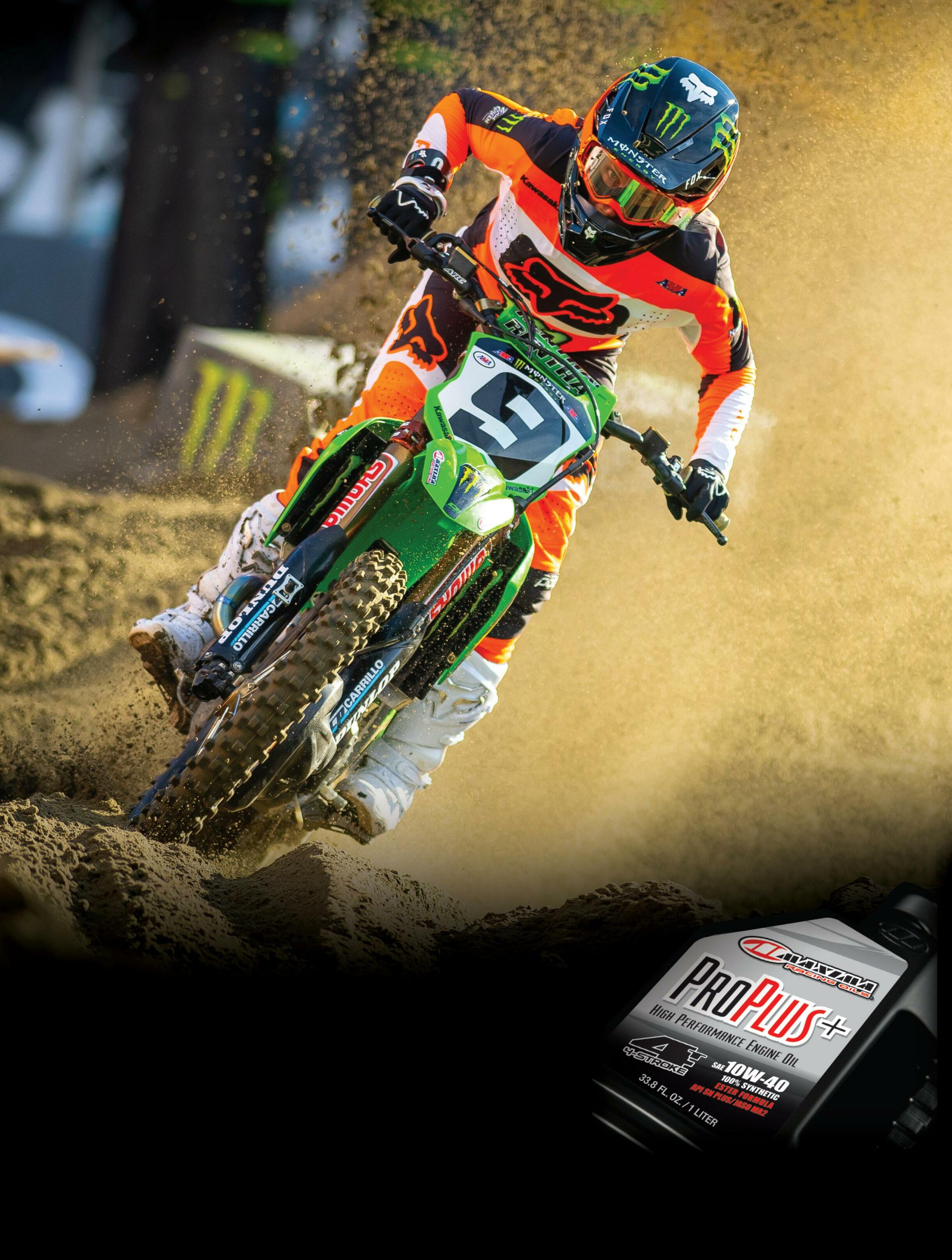 PEAC additive system was developed by Maxima and tested with factory teams like Monster Energy Kawasaki & Monster Energy Pro Circuit Kawasaki
GUARANTEED BY MAXIMA RACING OILS / MADE IN THE USA
ADAM CIANCIARULO MONSTER ENERGY KAWASAKI
PEAC additive system was developed by Maxima and tested with factory teams like Monster Energy Kawasaki & Monster Energy Pro Circuit Kawasaki
GUARANTEED BY MAXIMA RACING OILS / MADE IN THE USA
ADAM CIANCIARULO MONSTER ENERGY KAWASAKI

